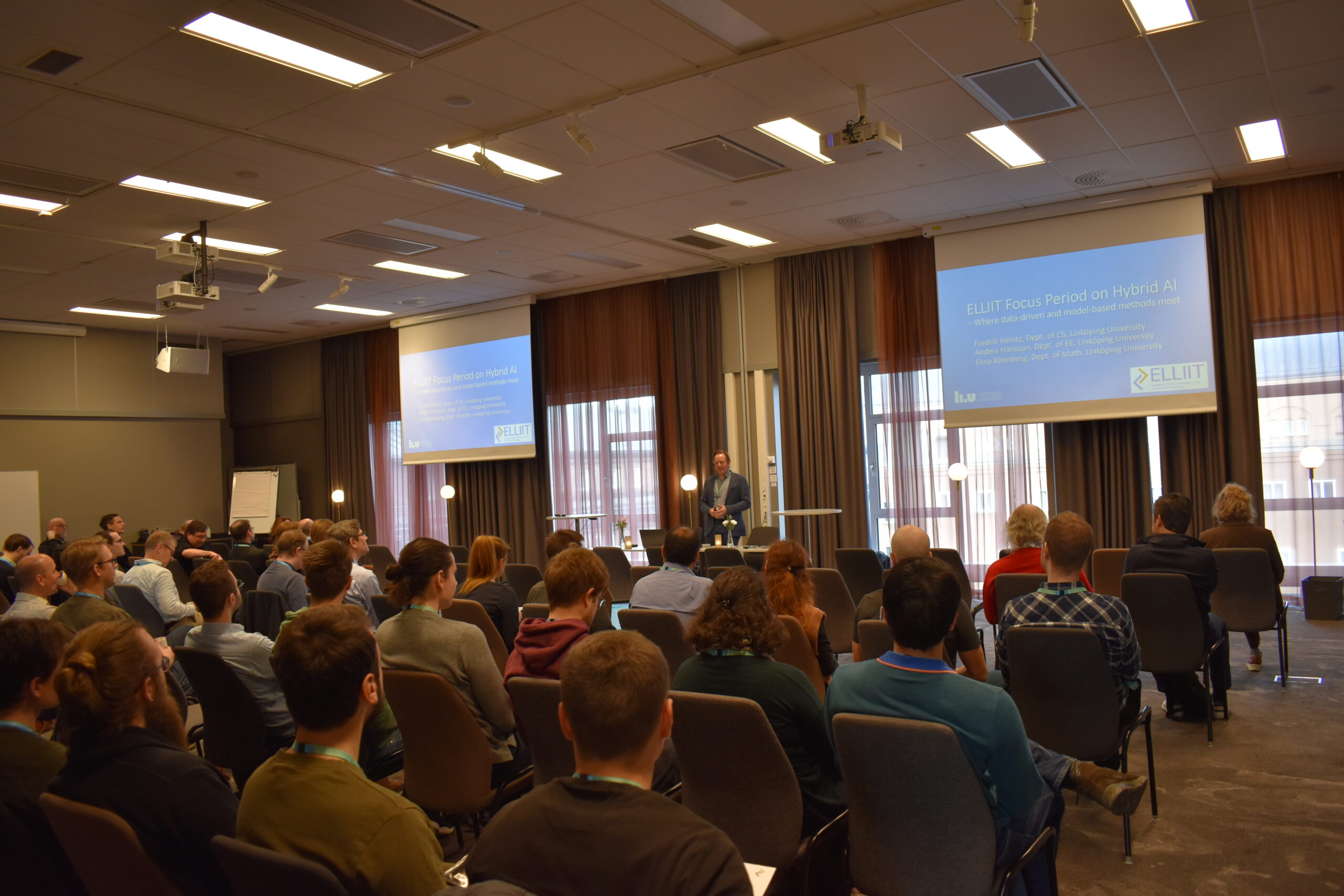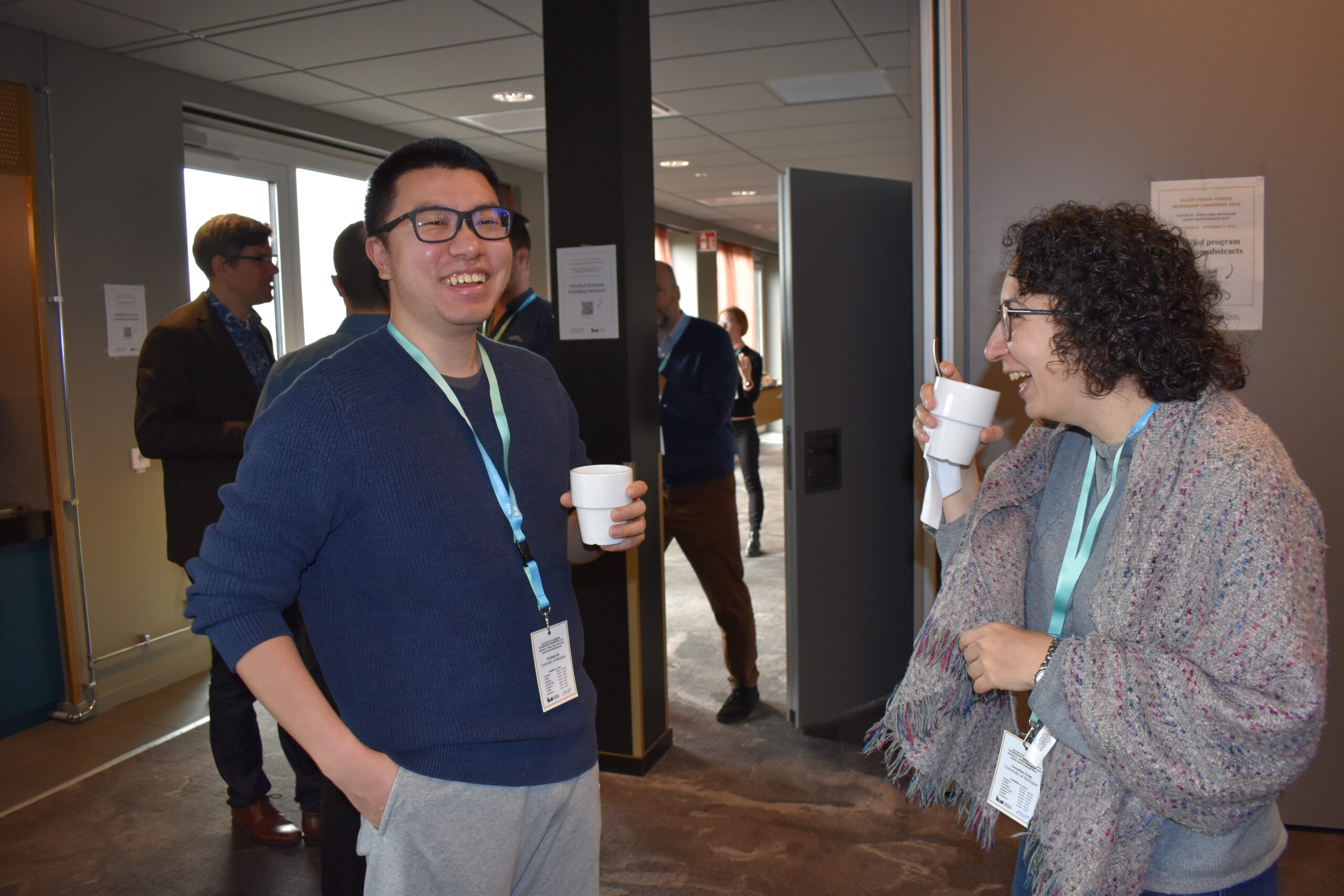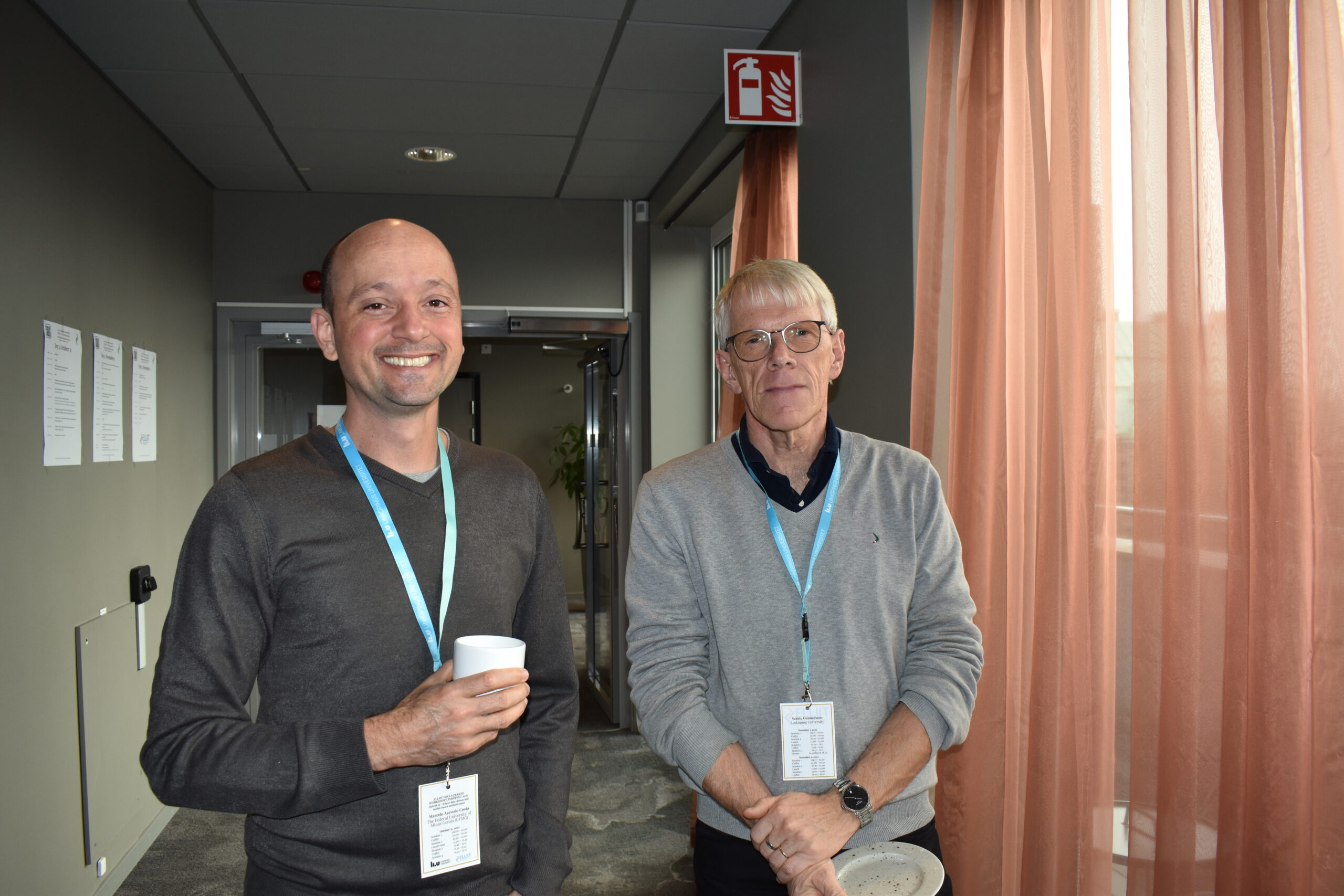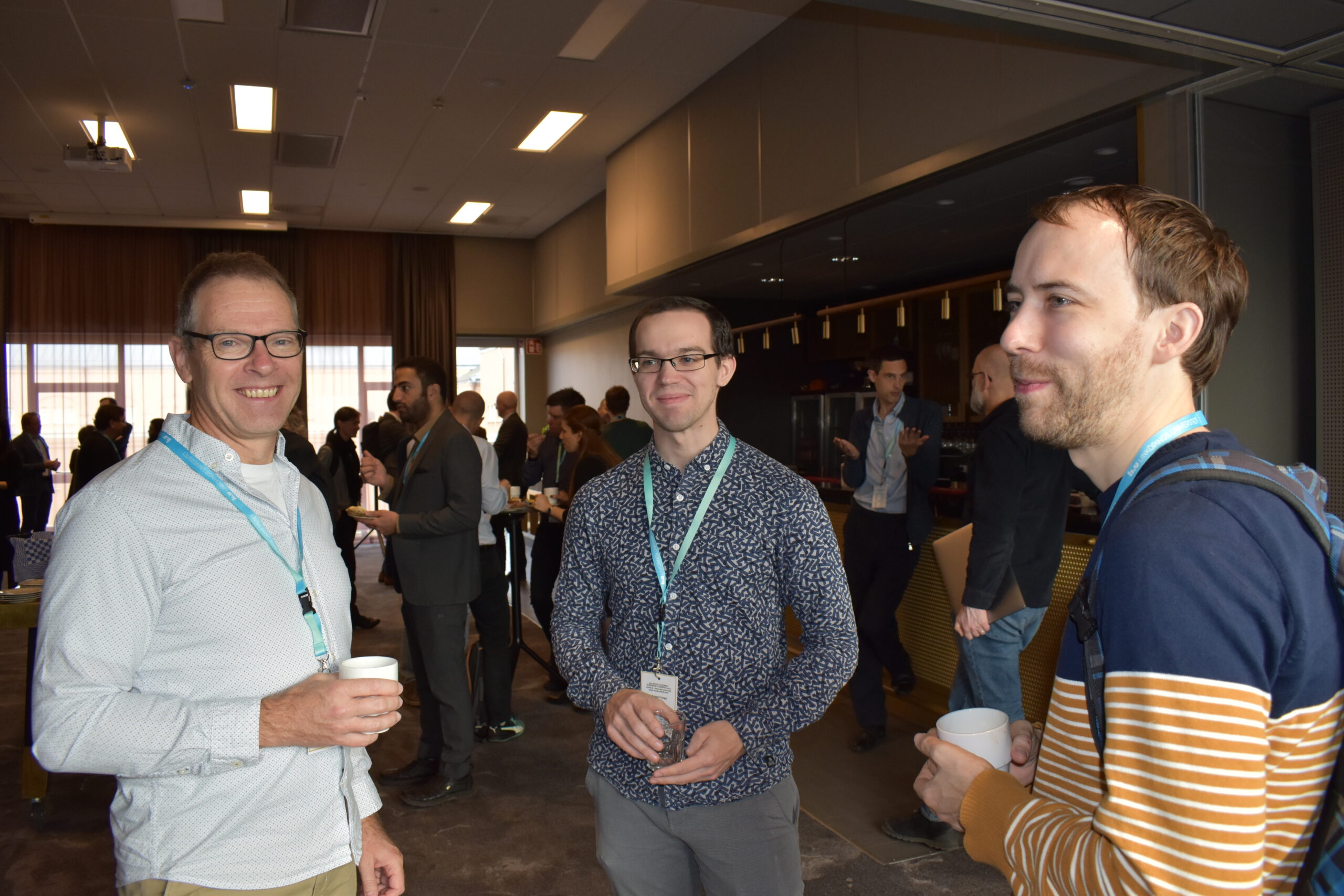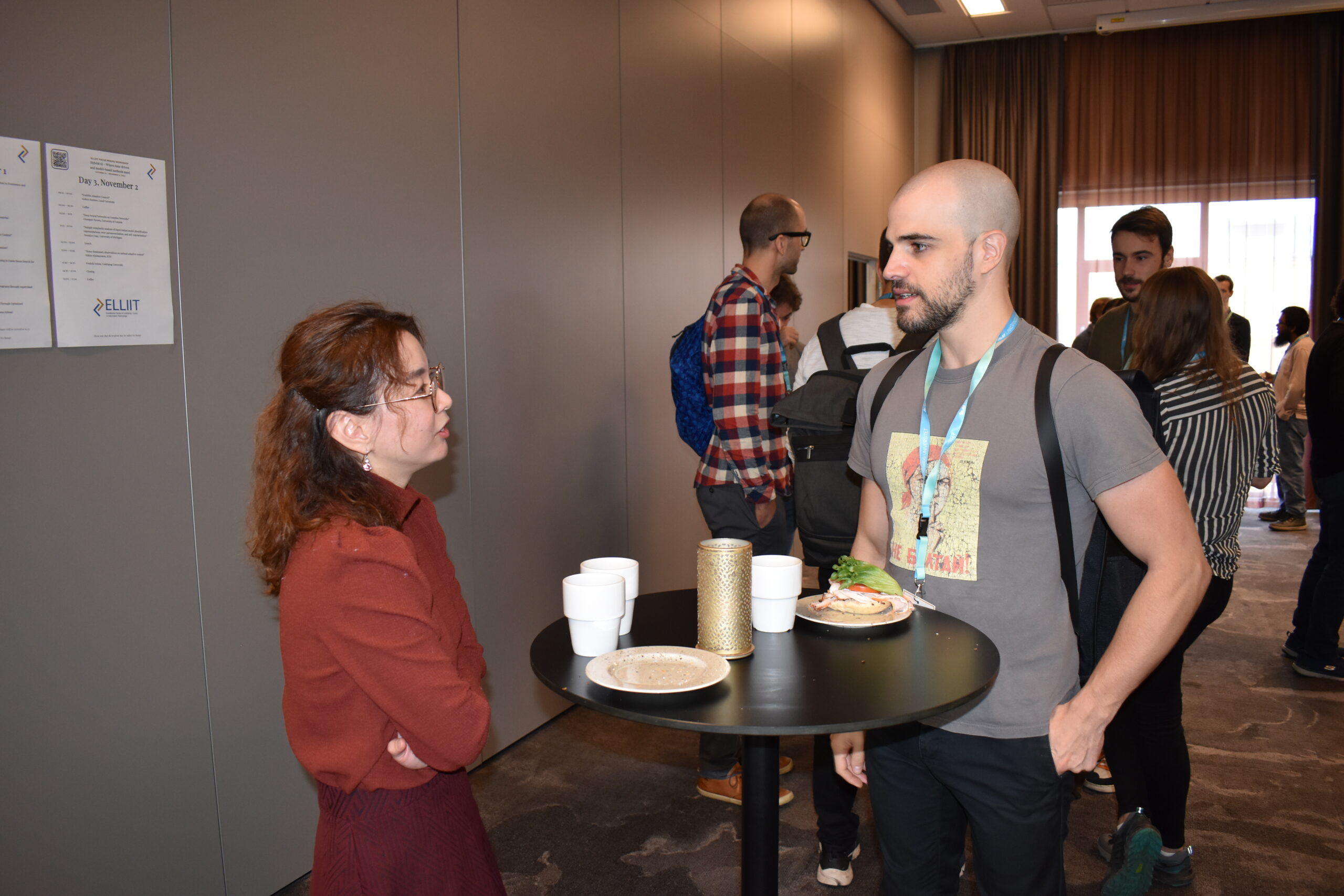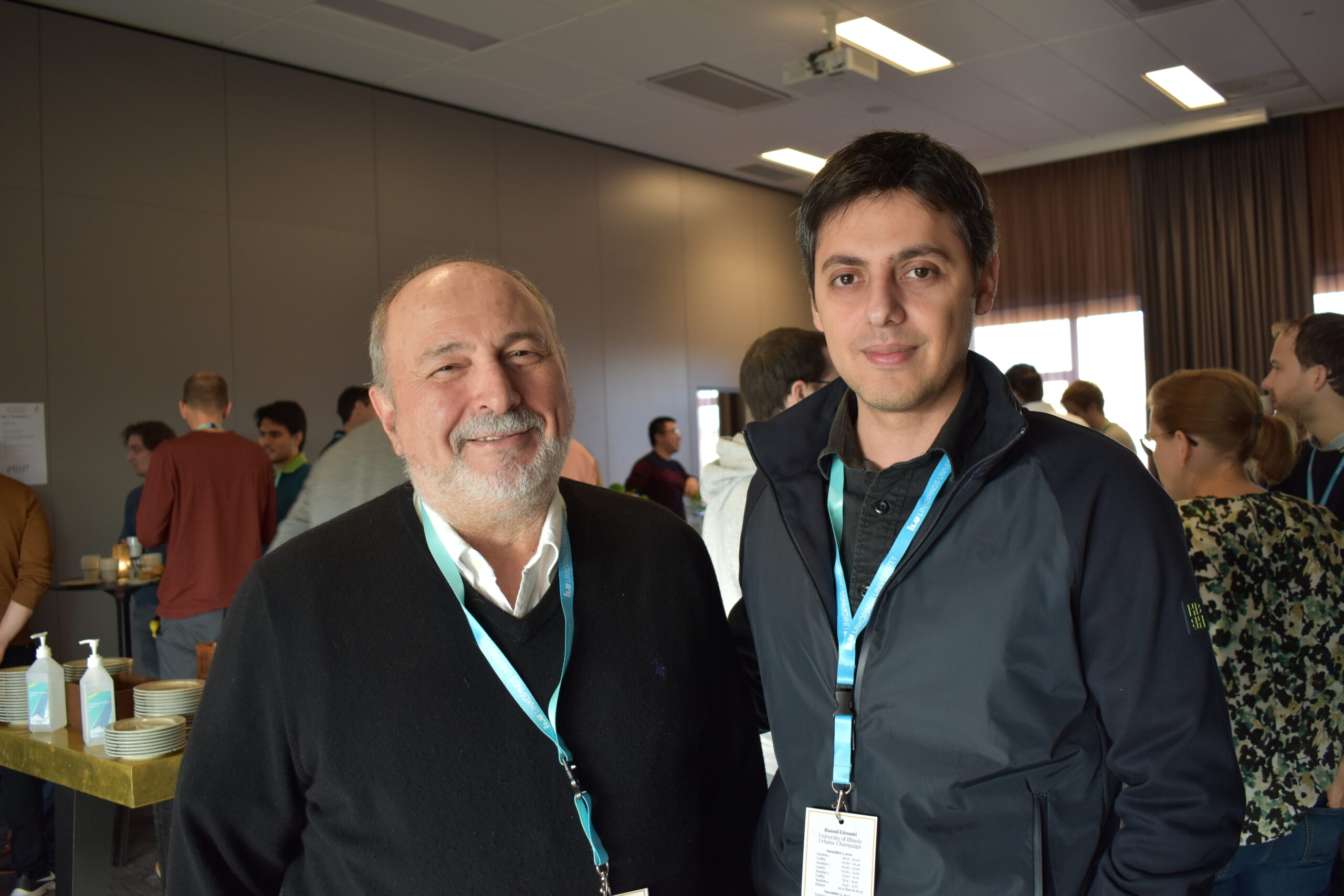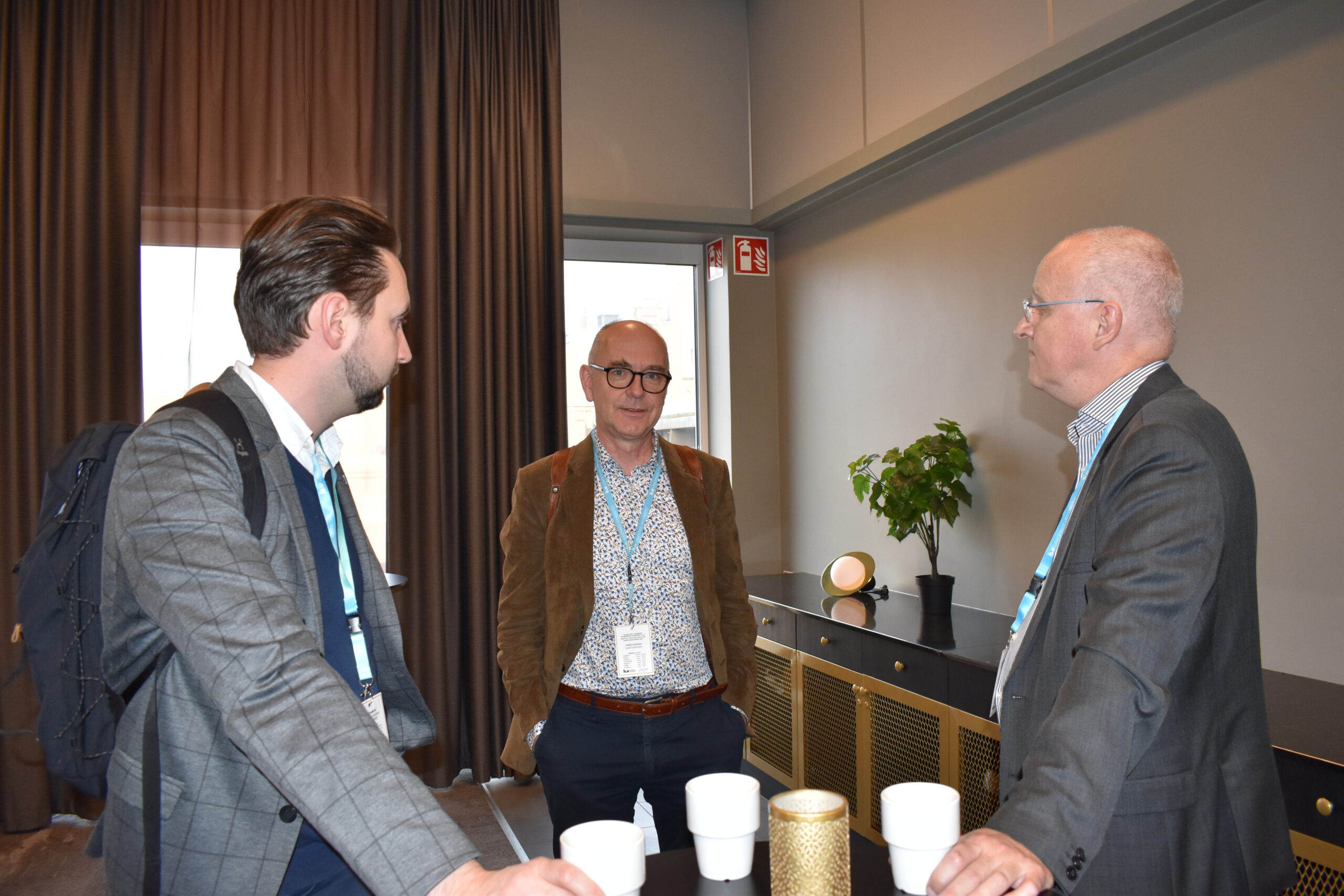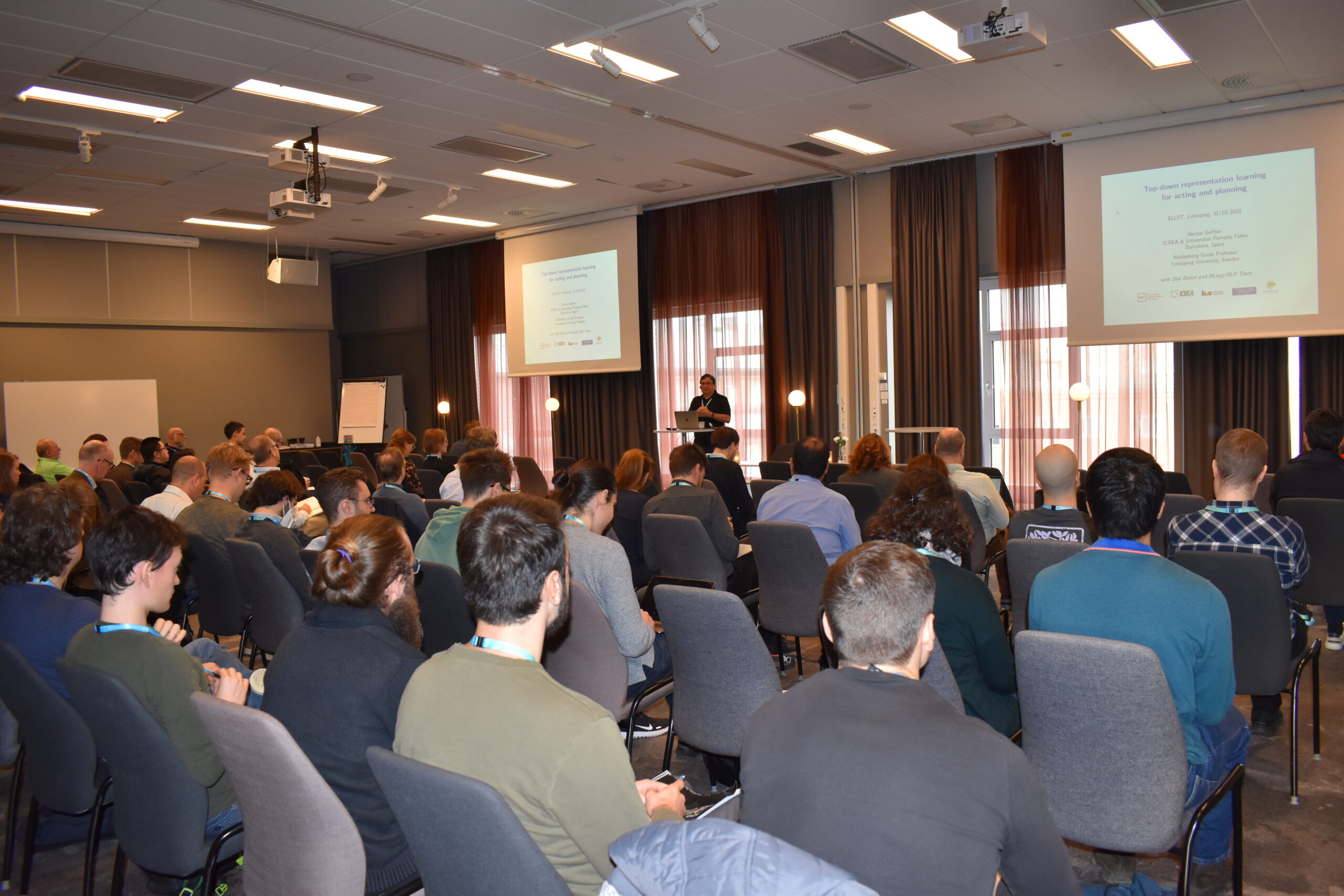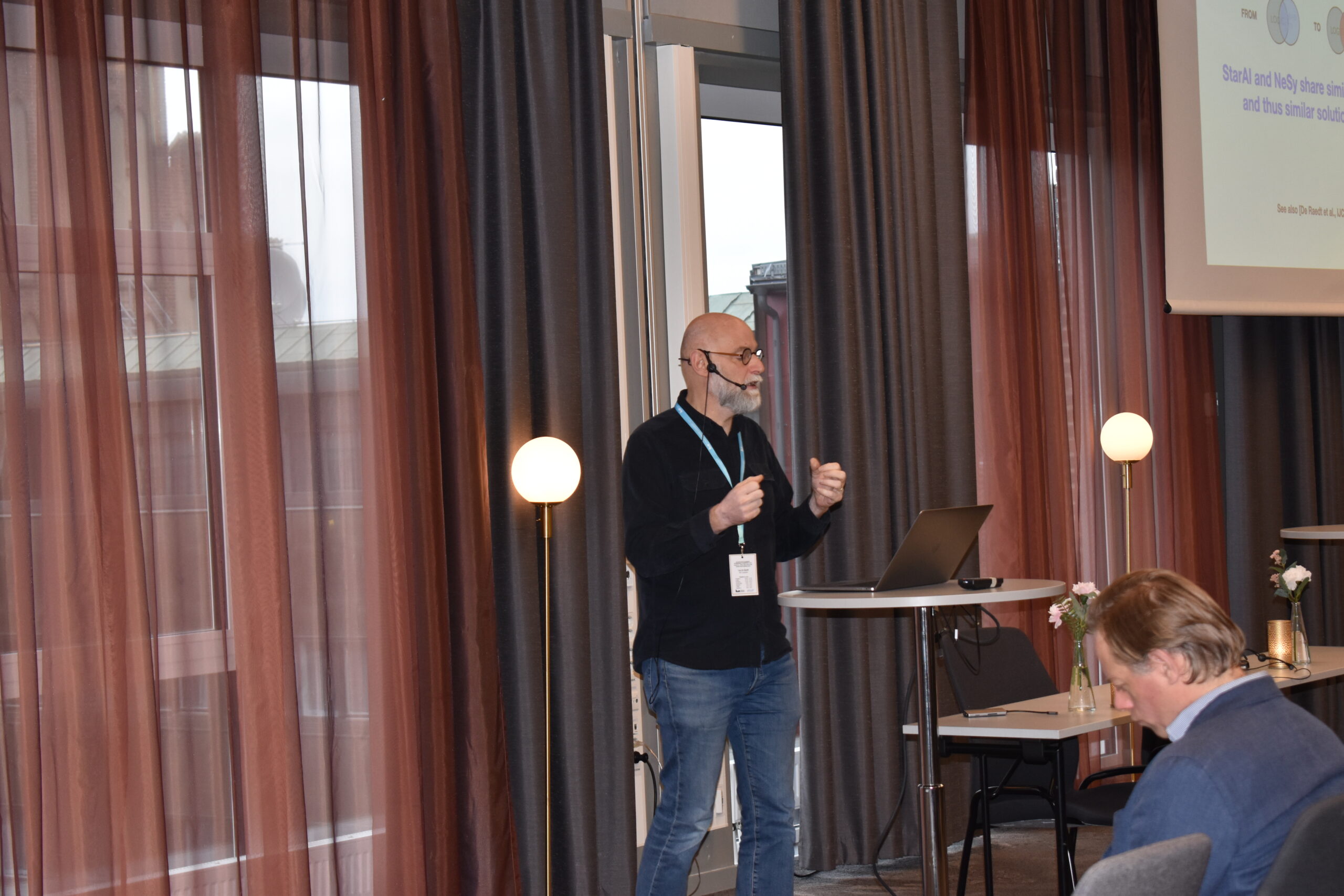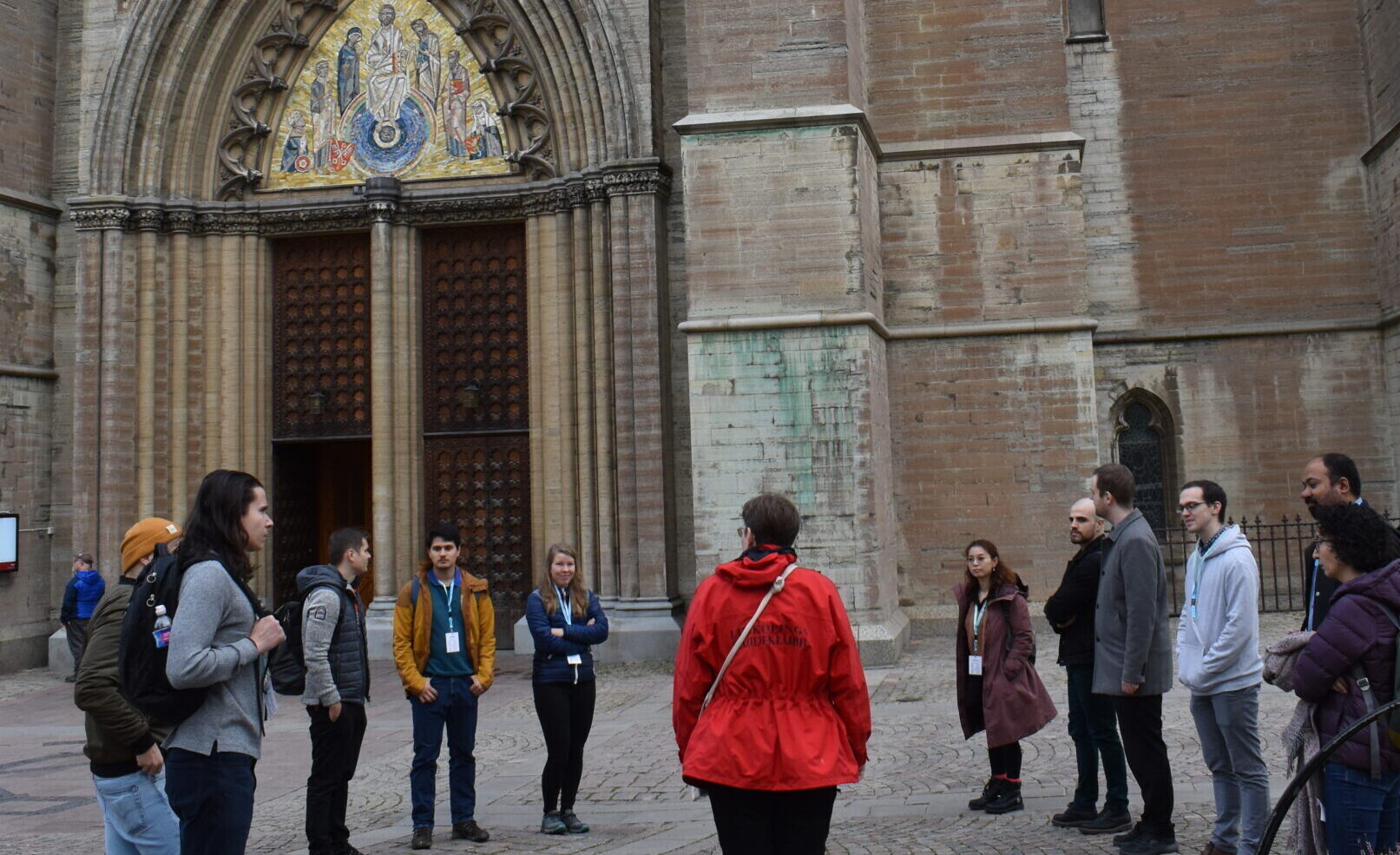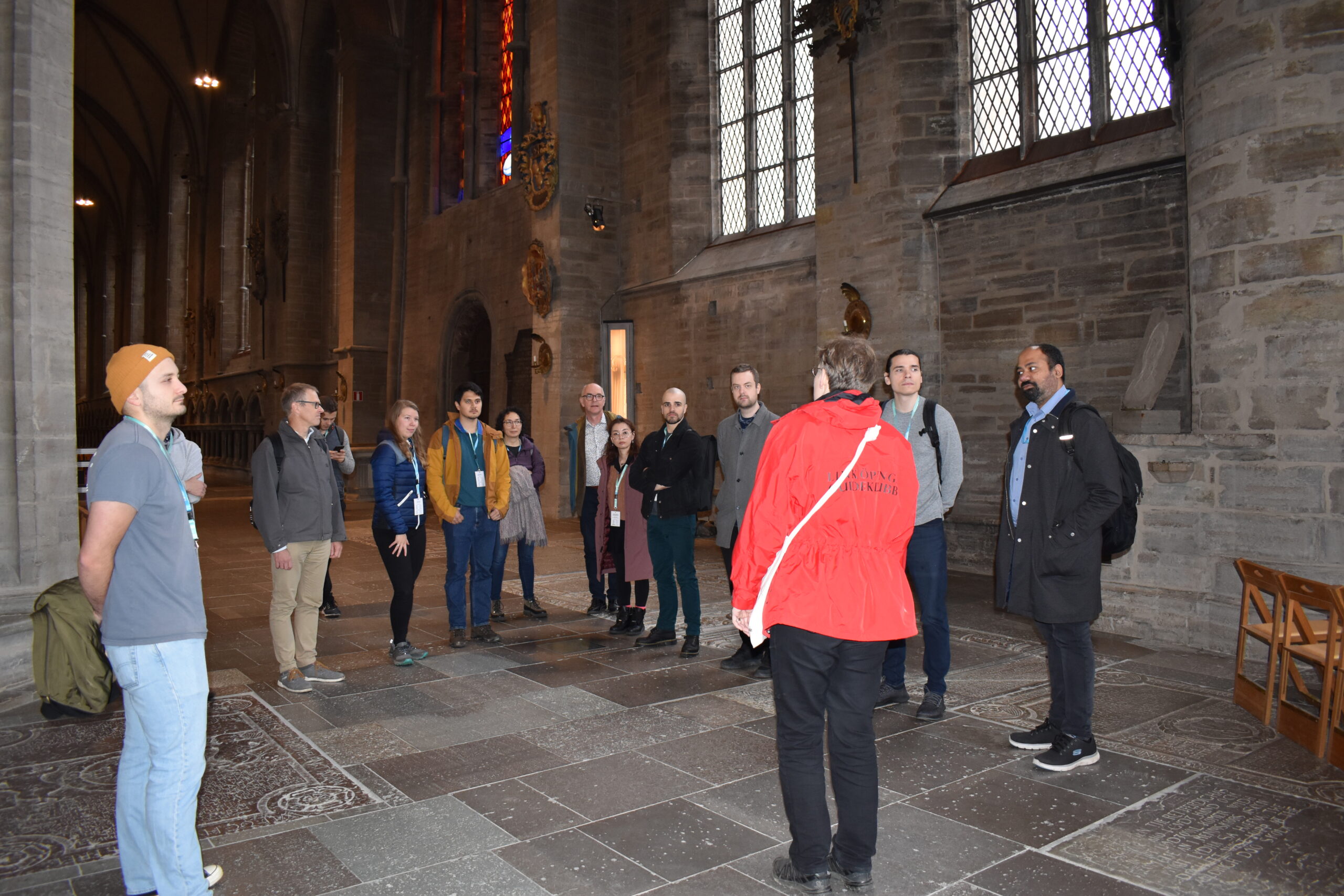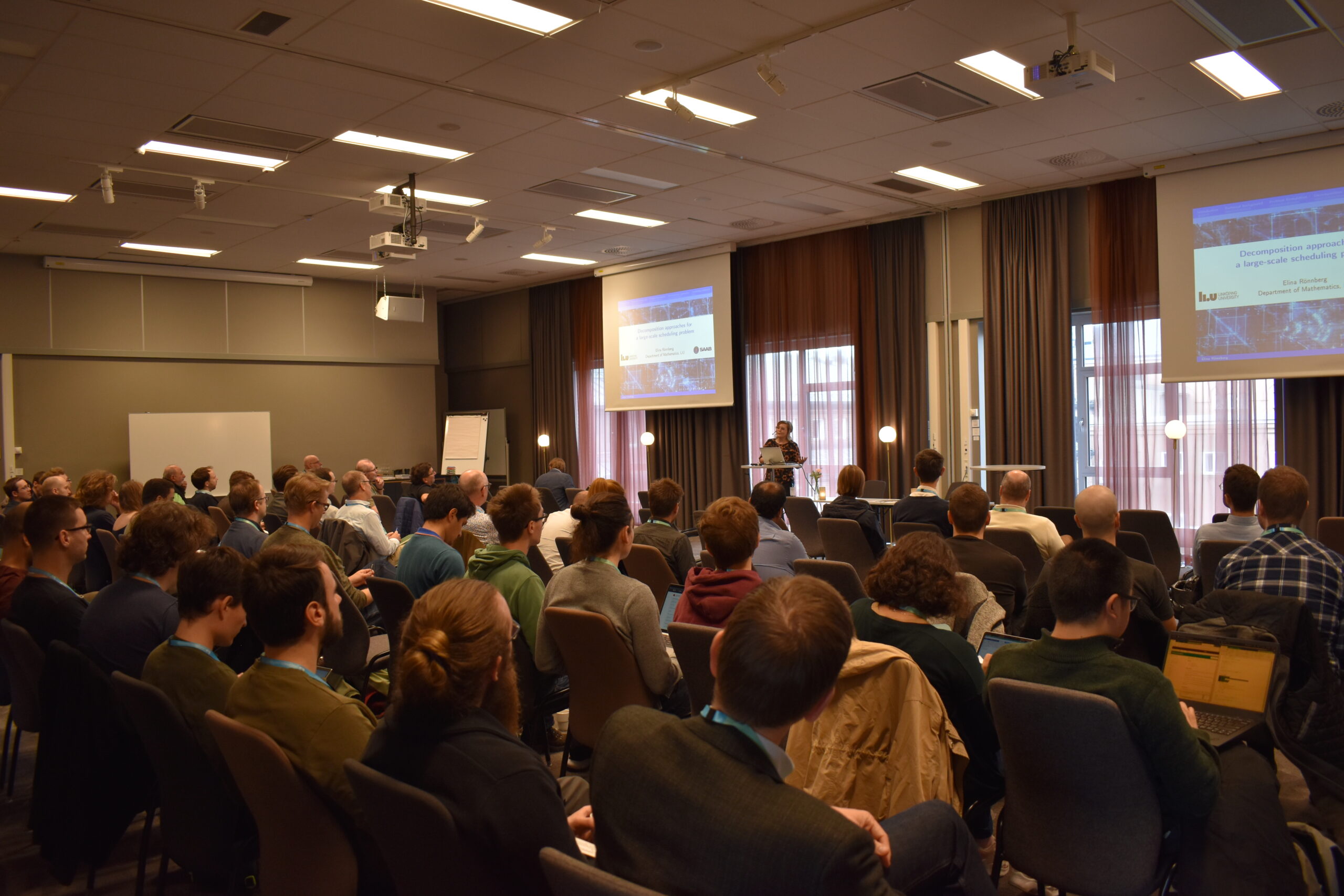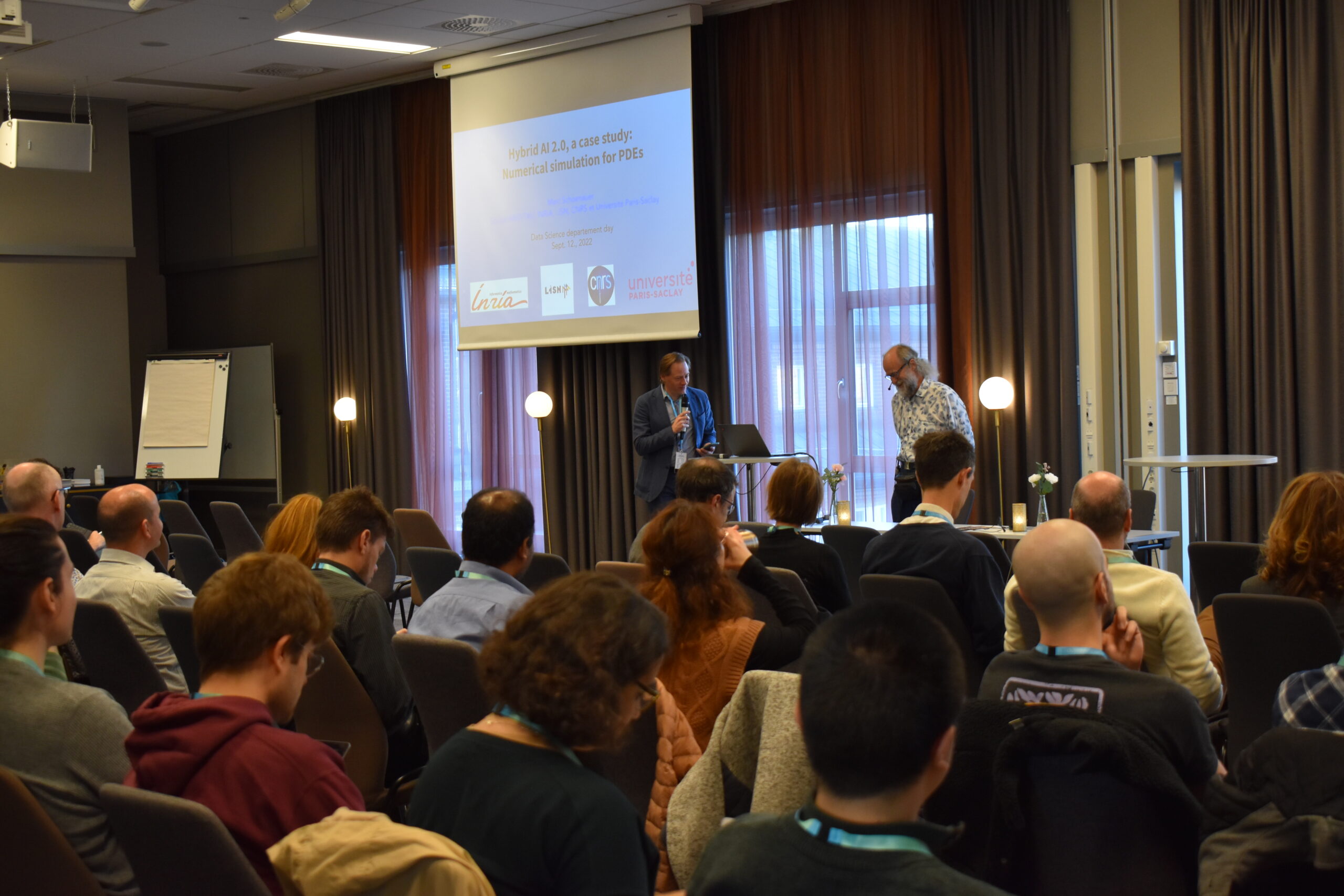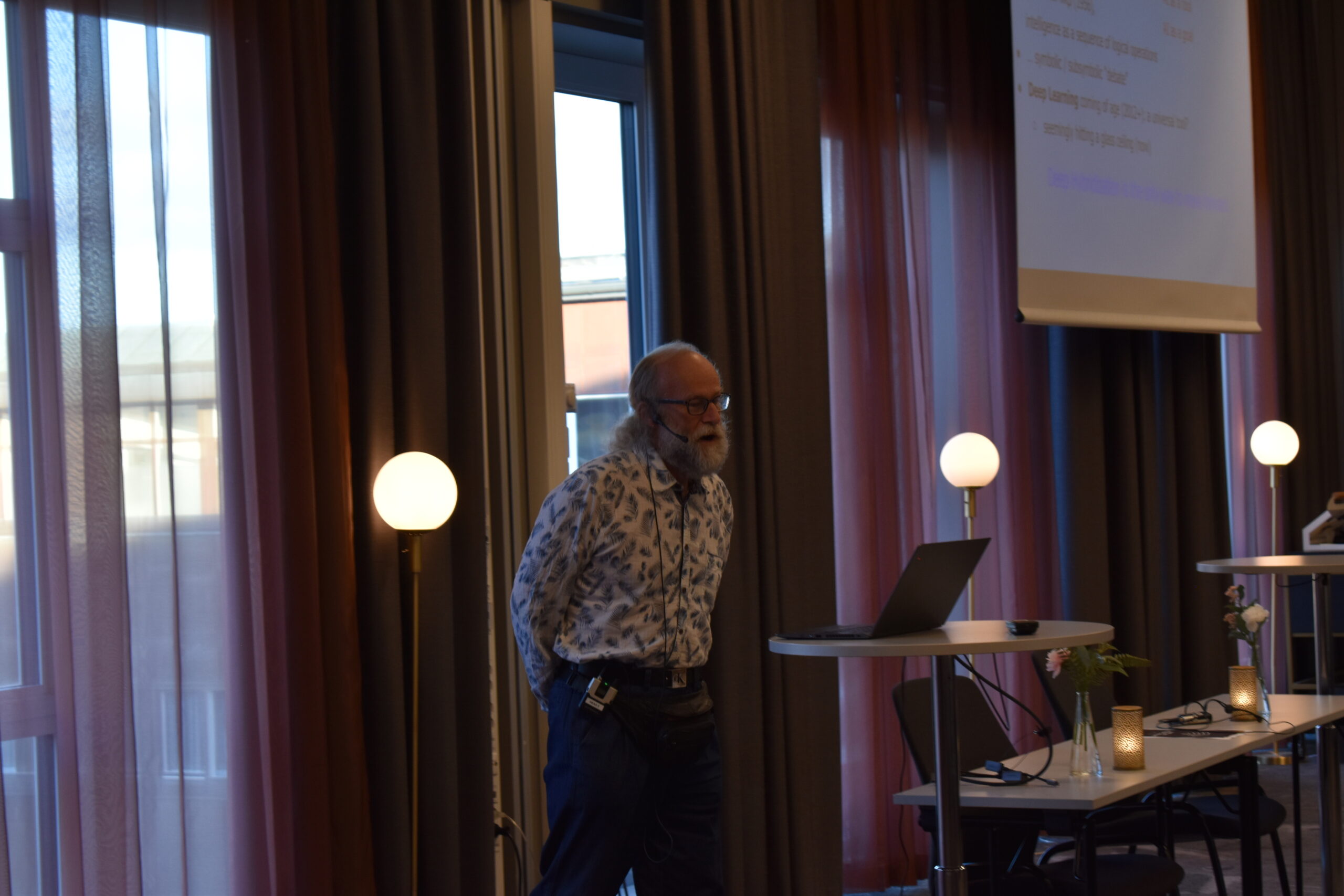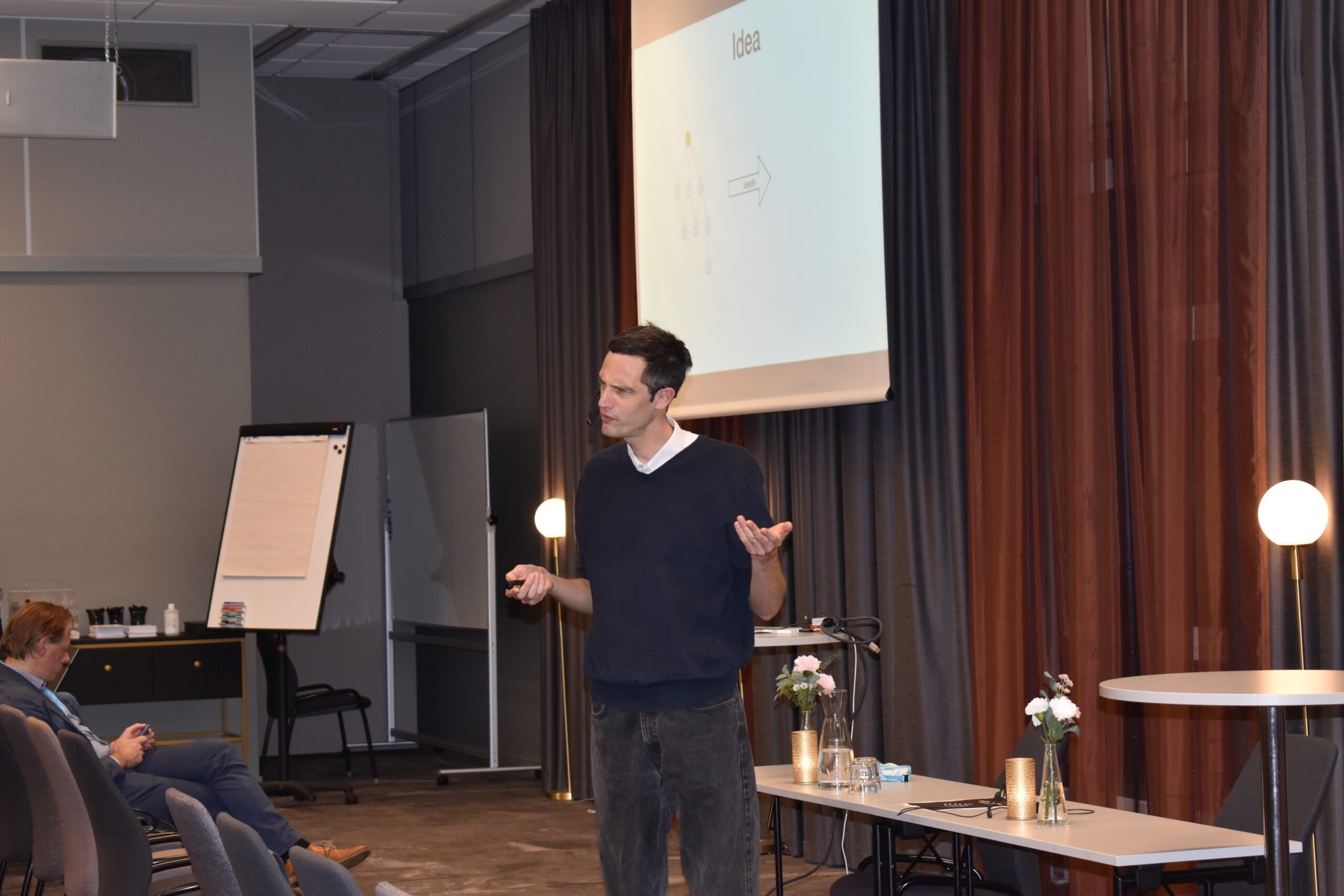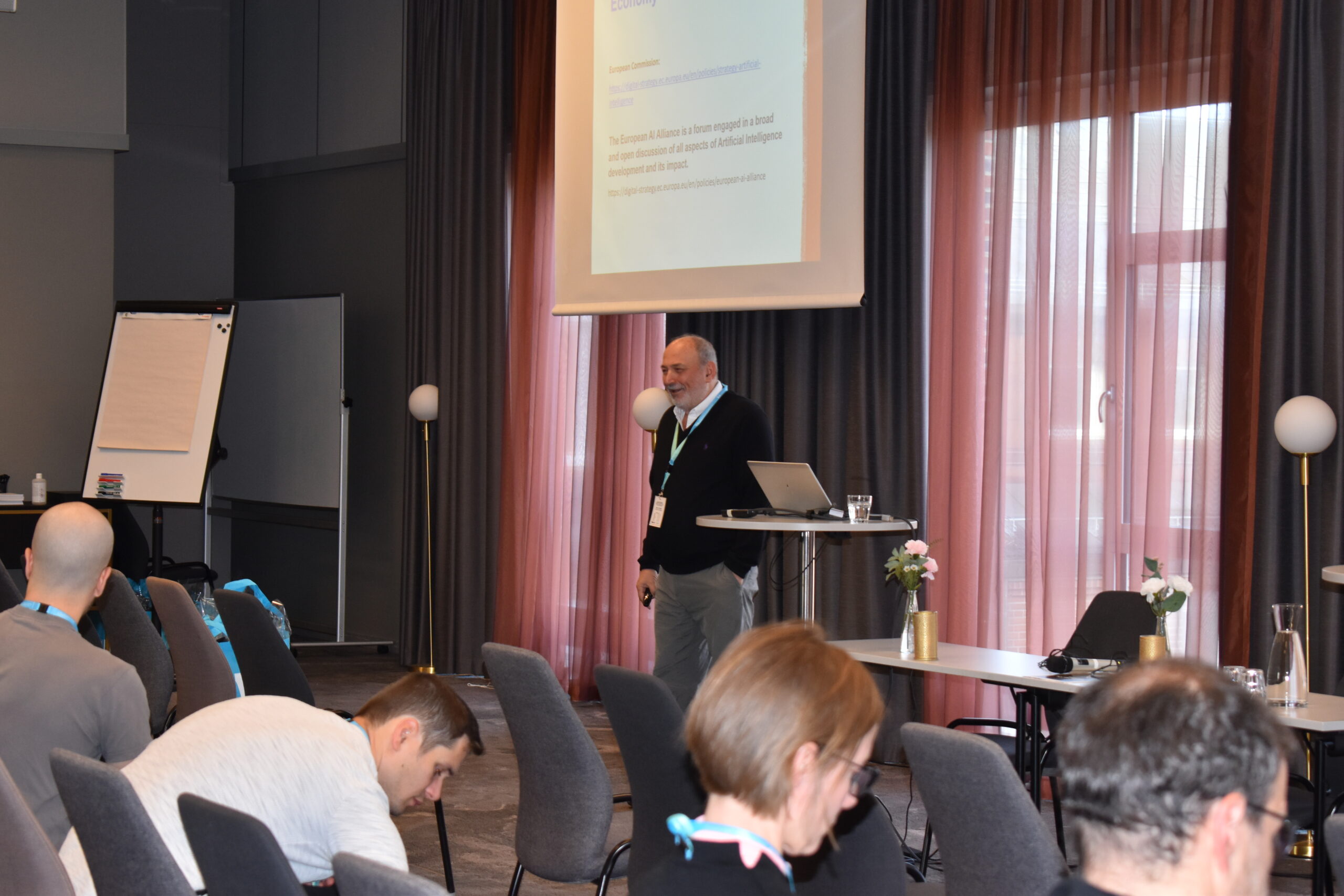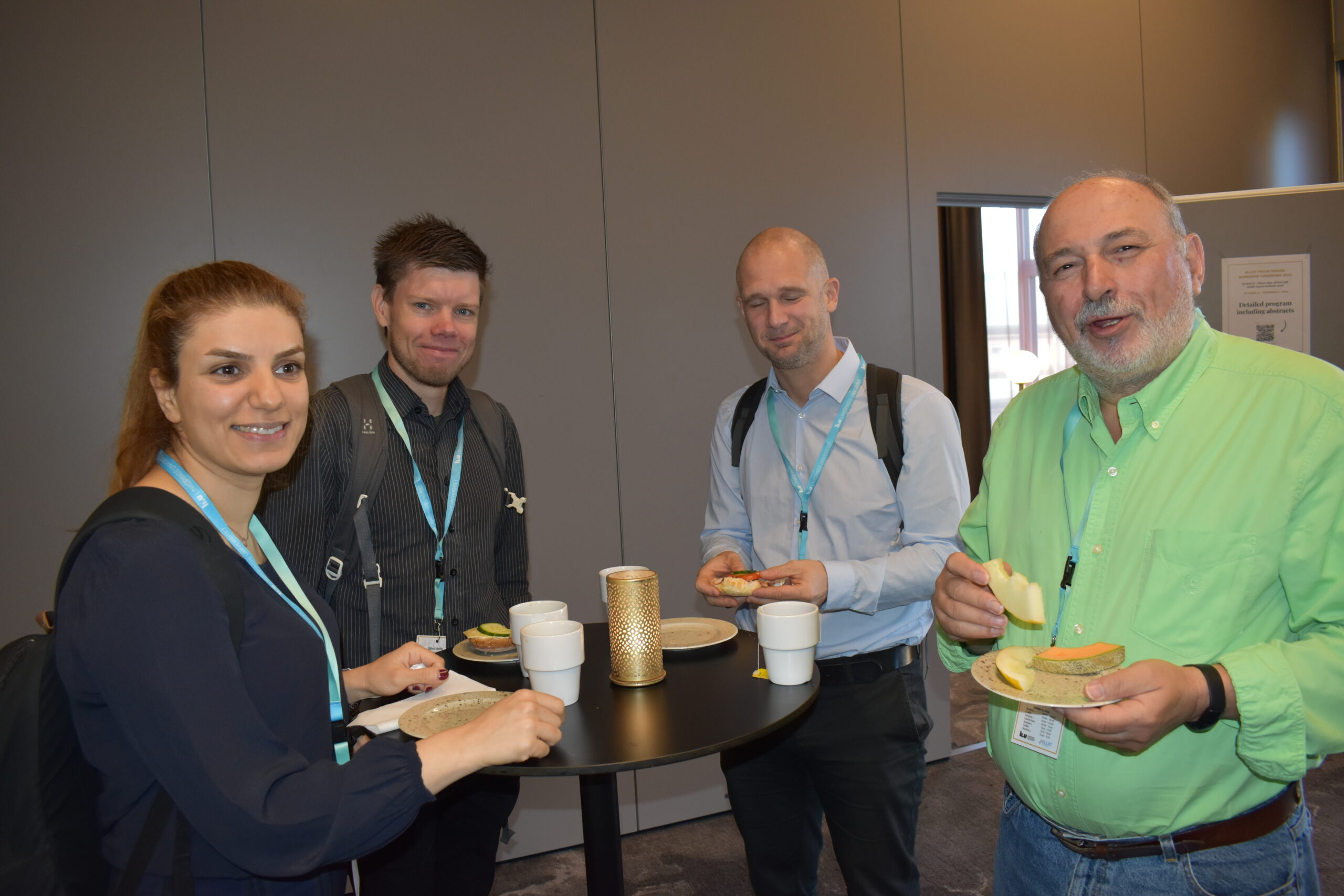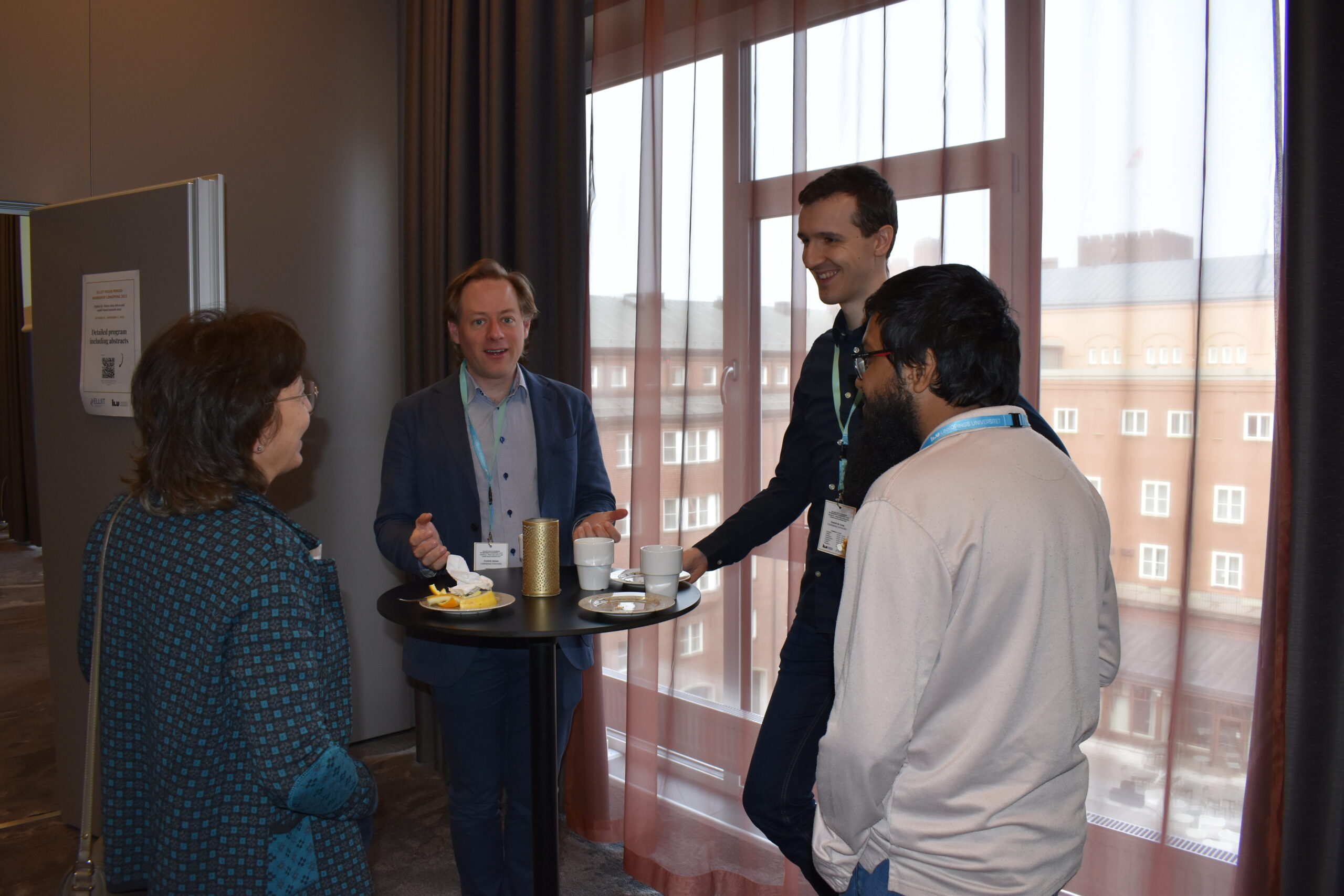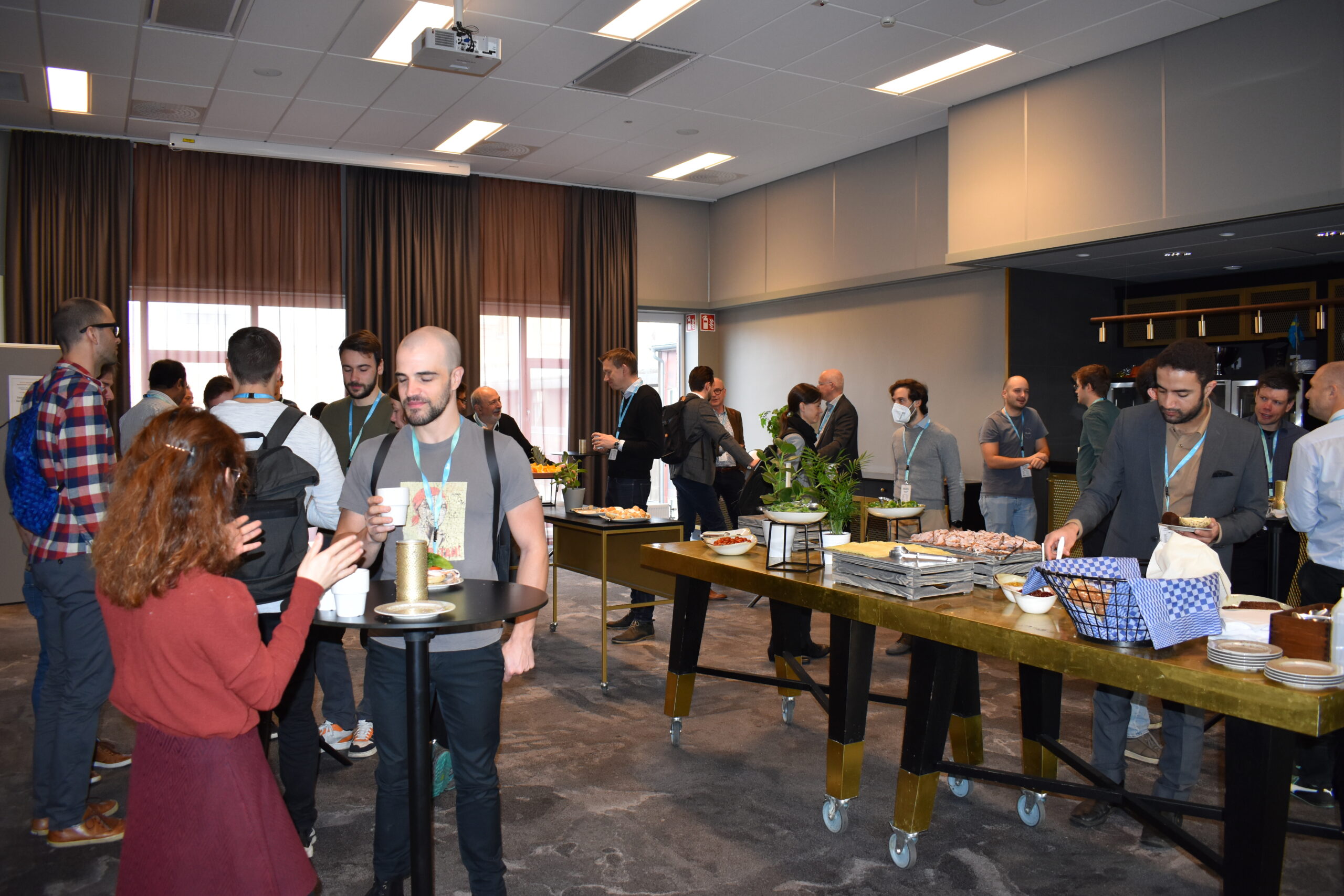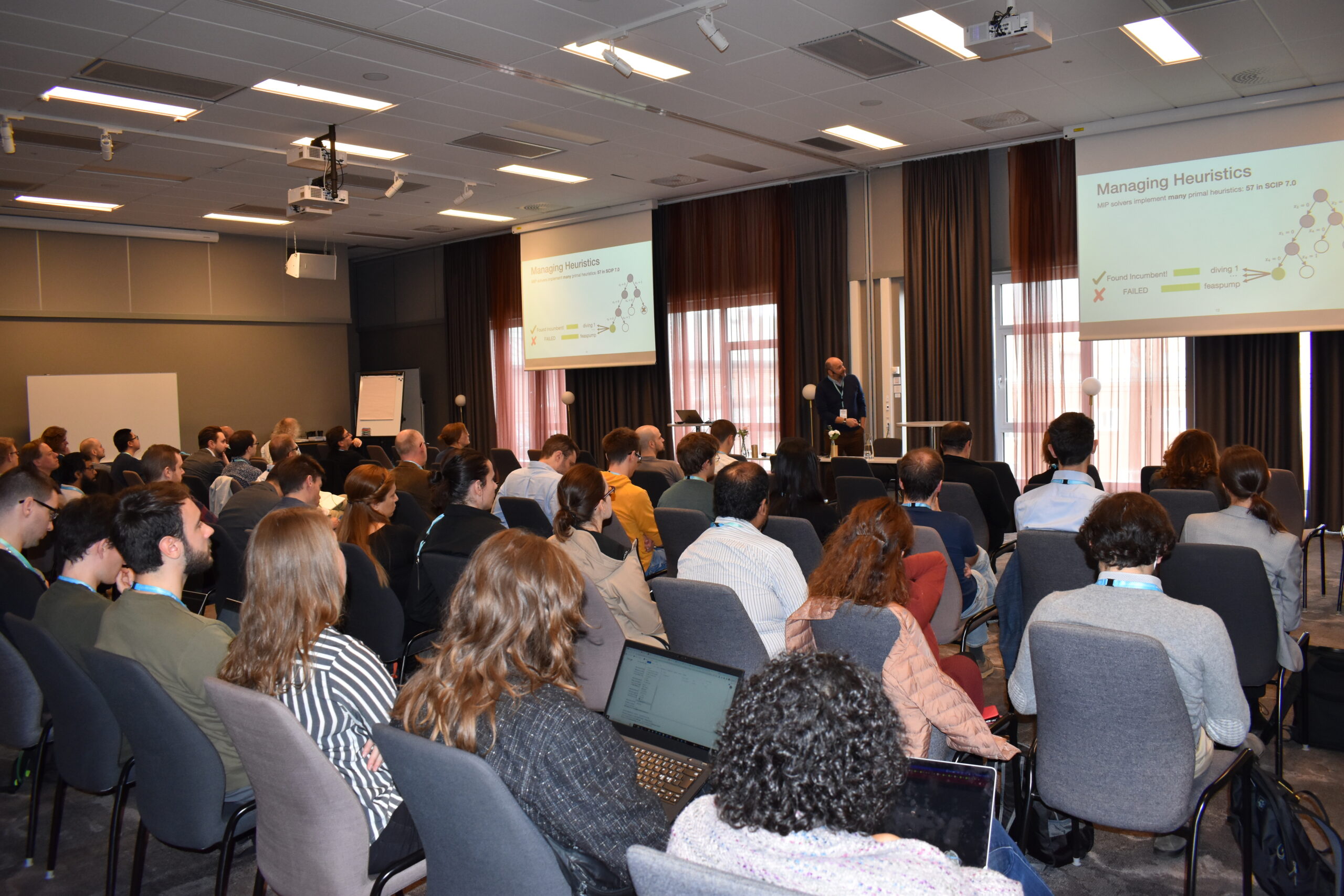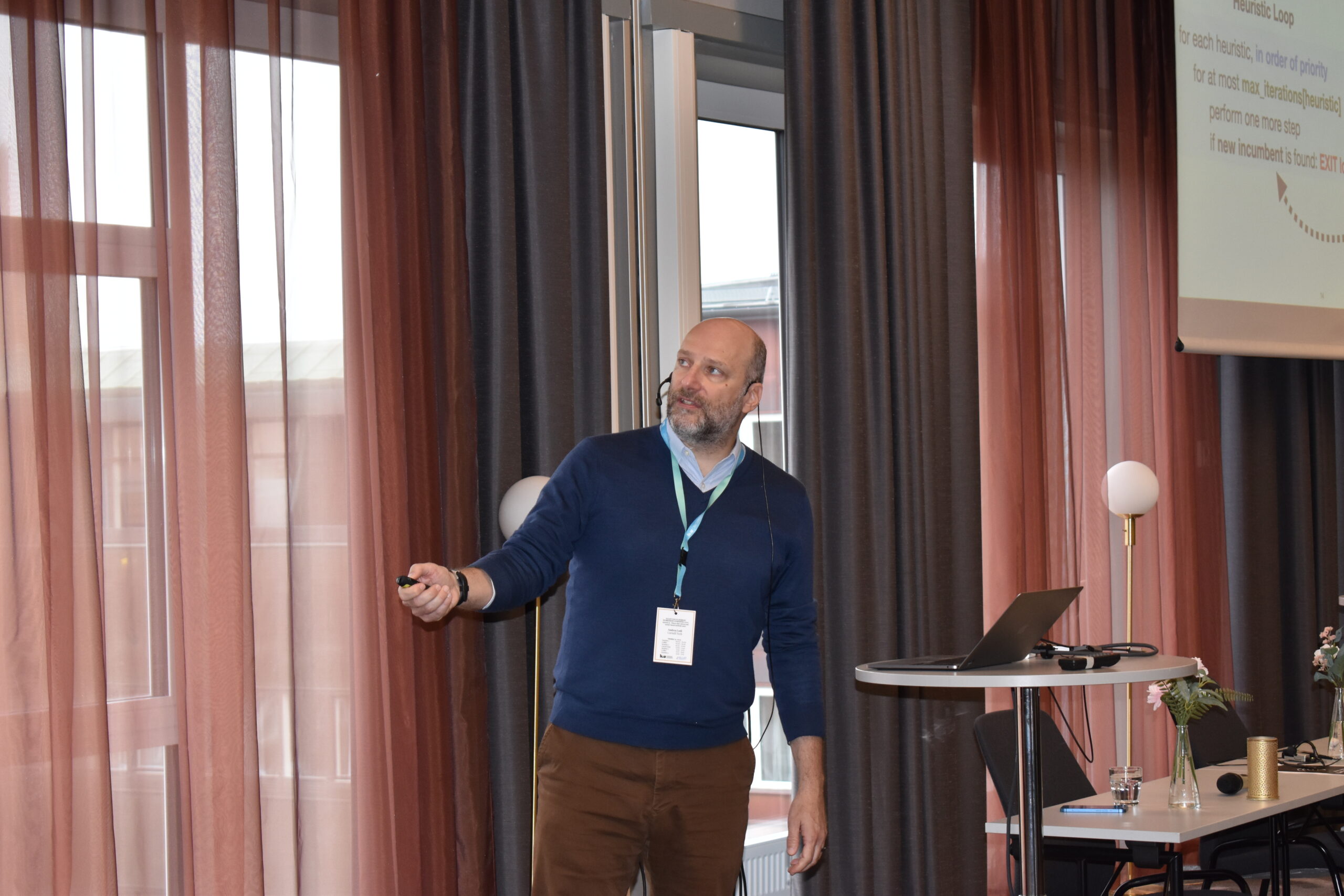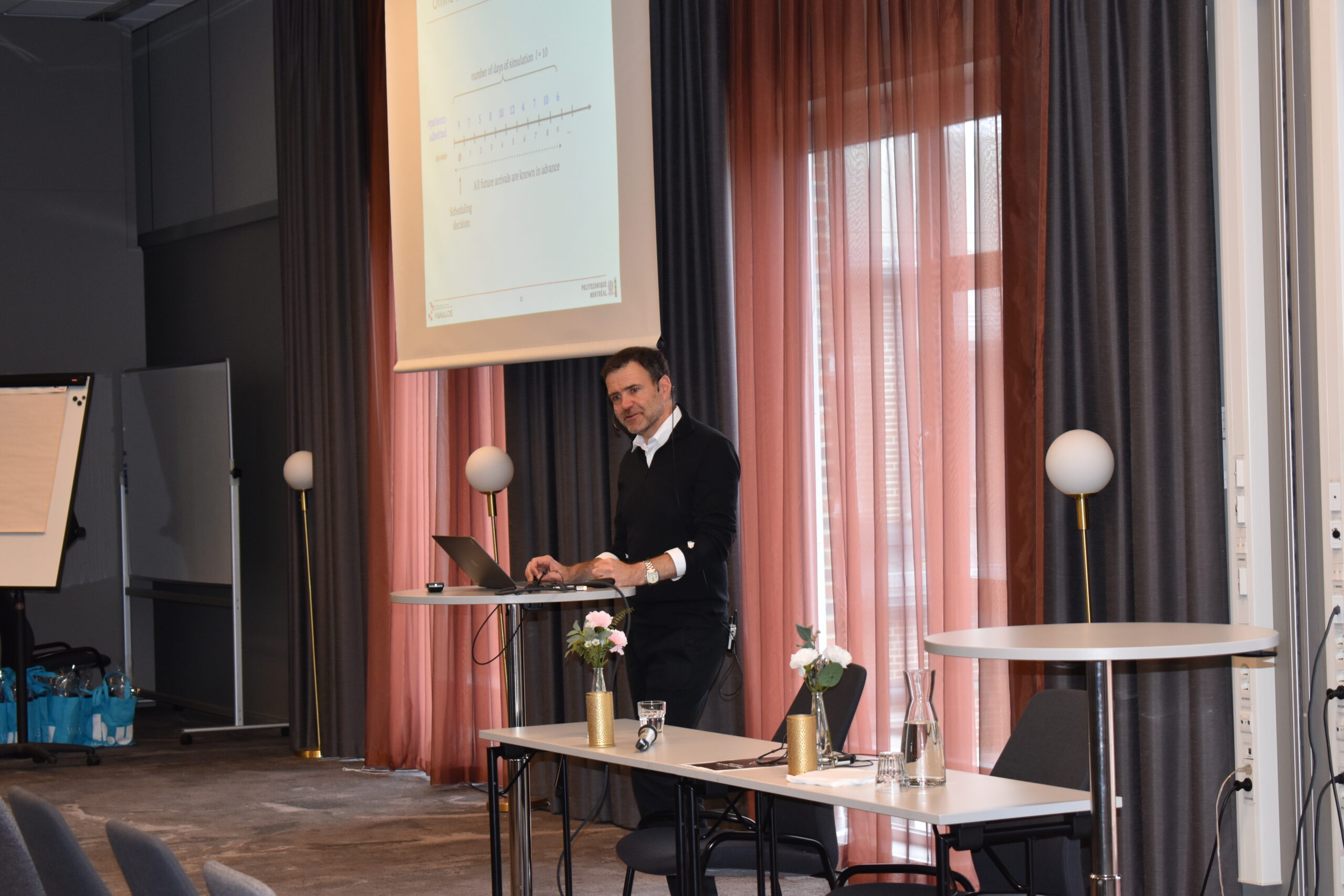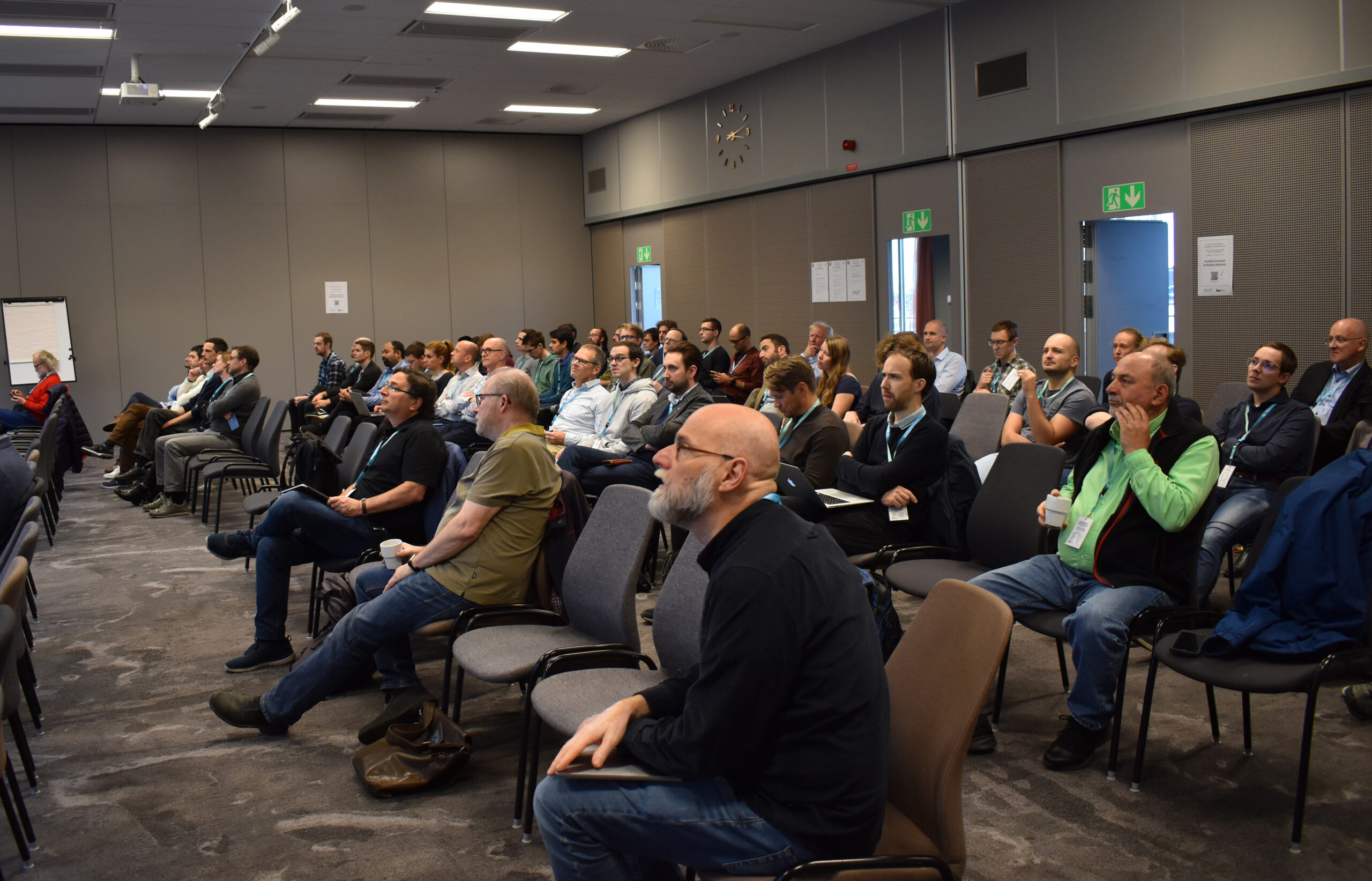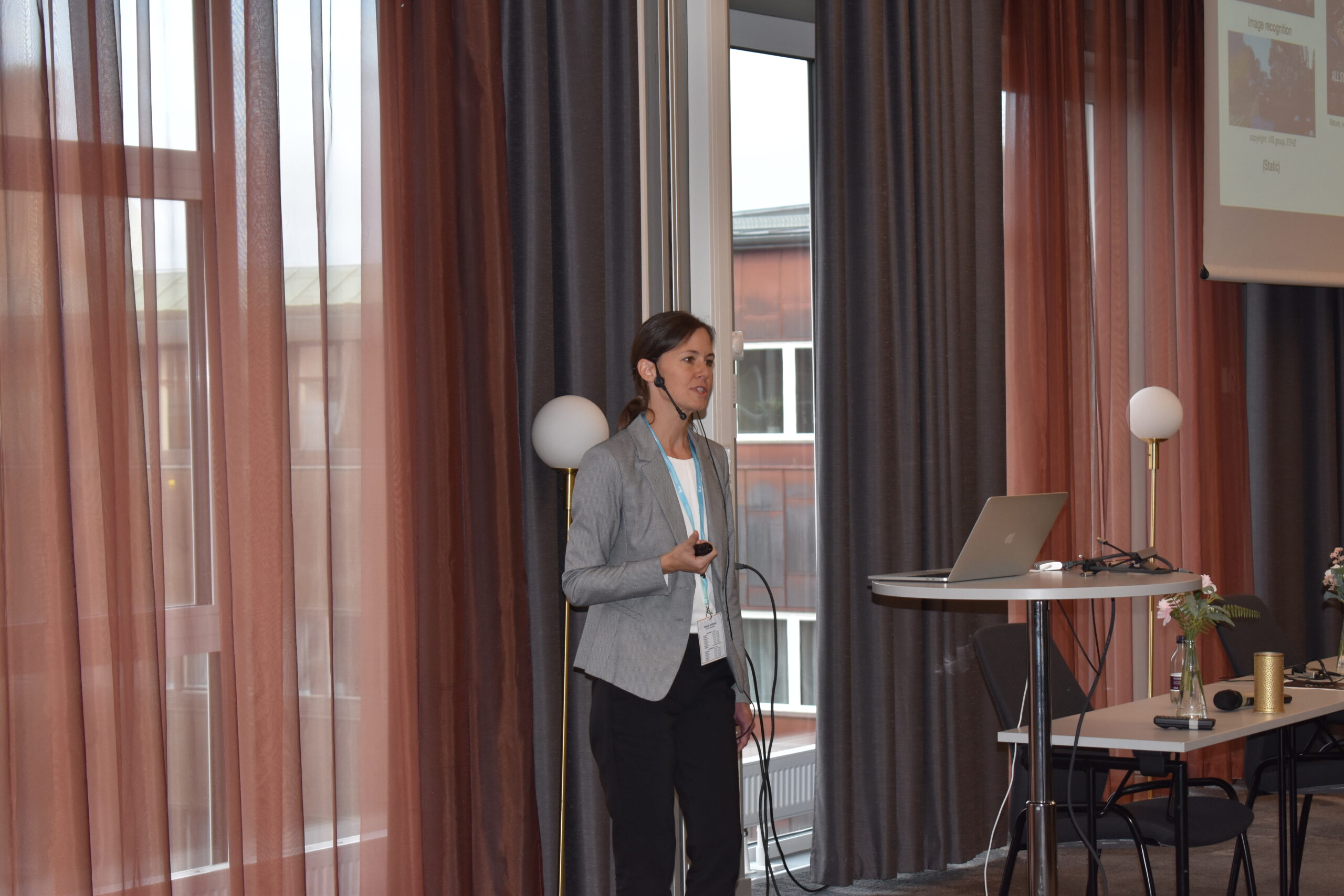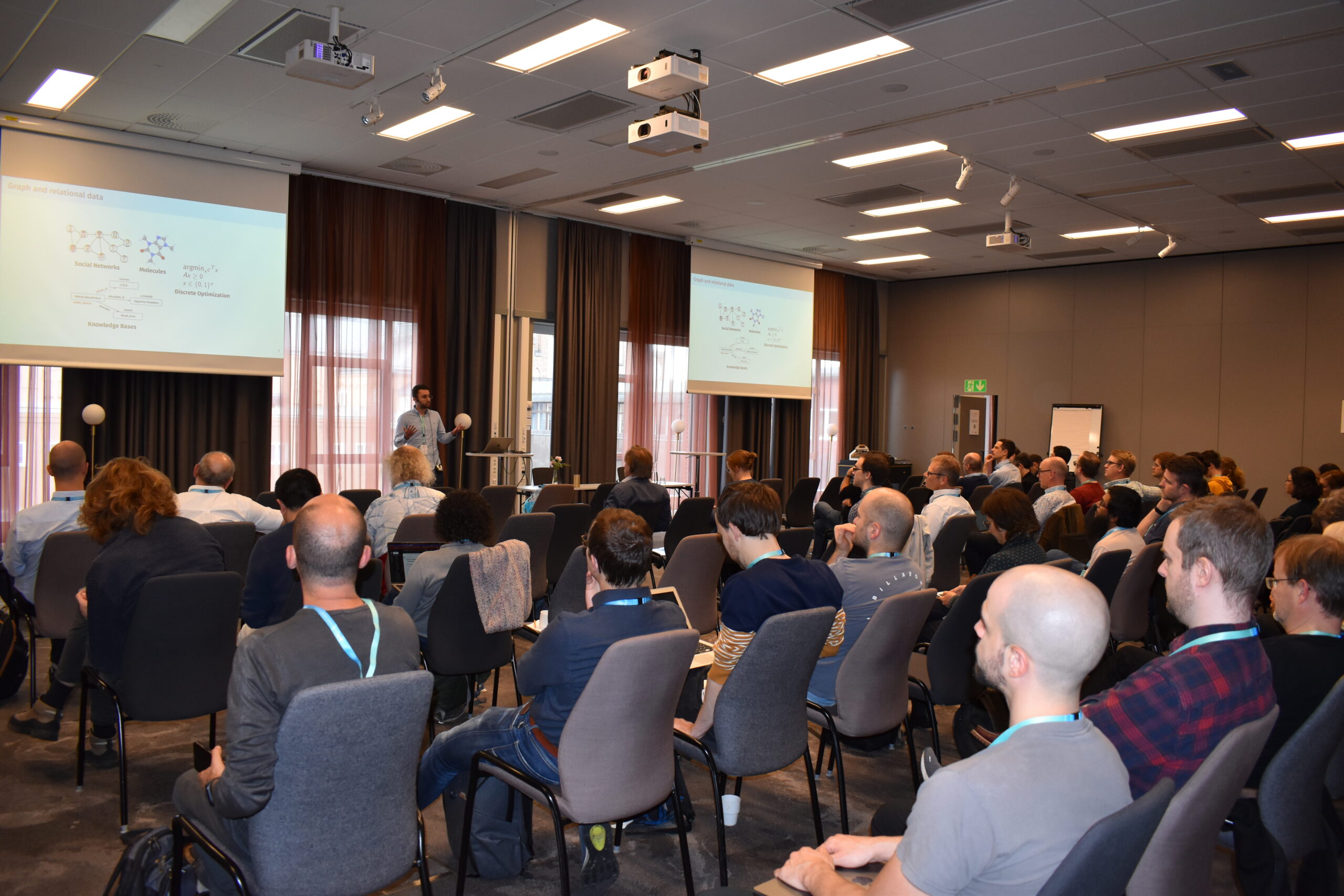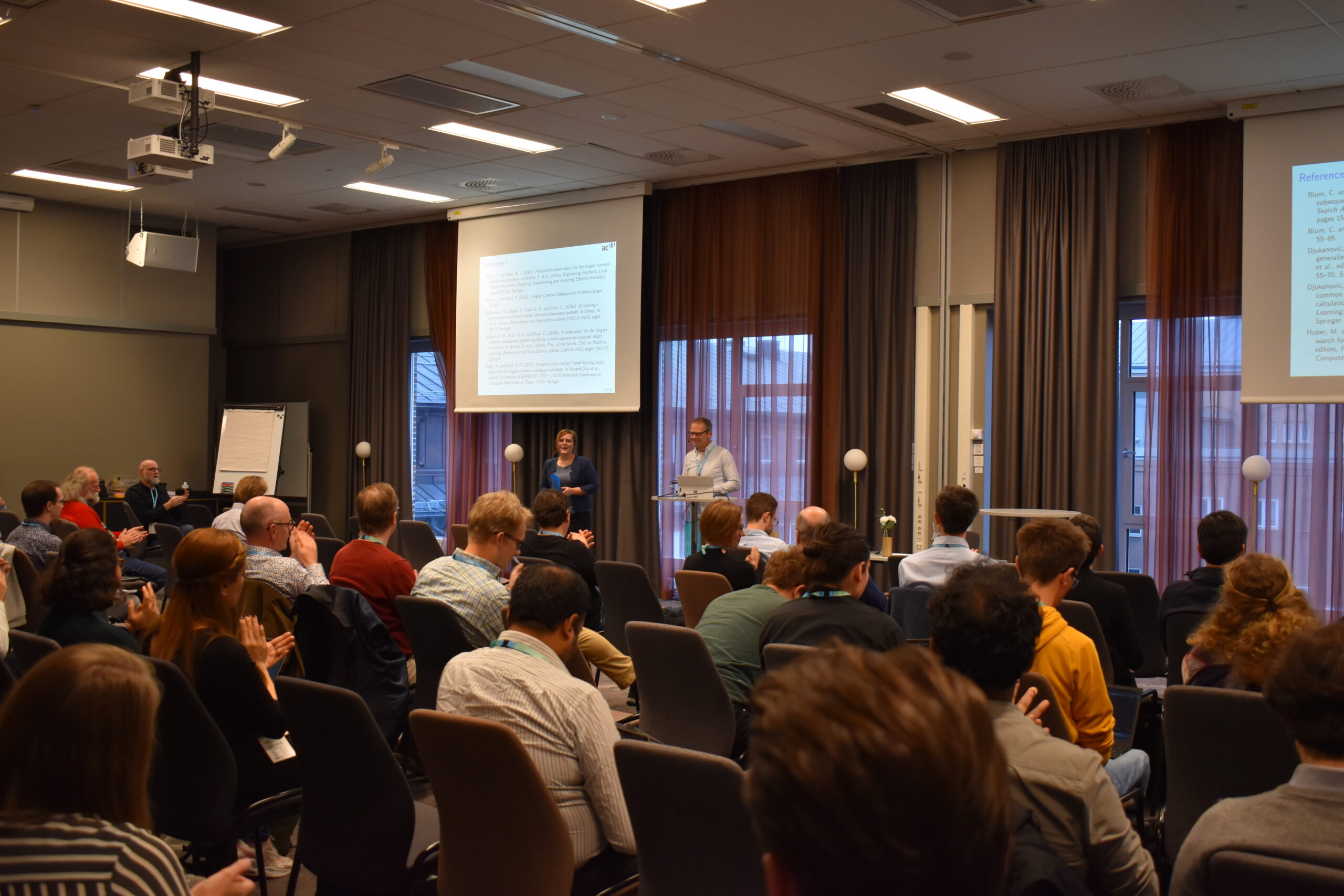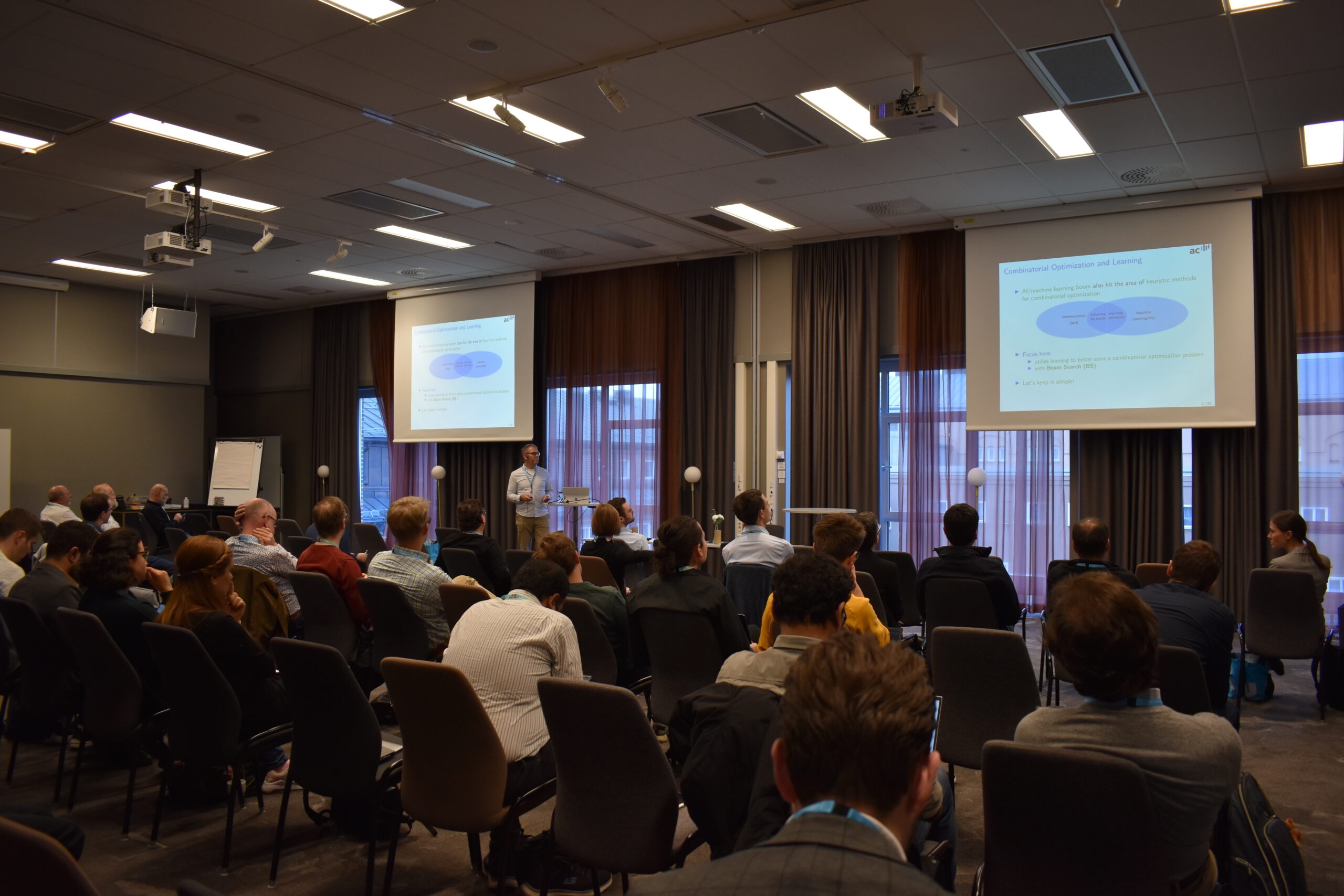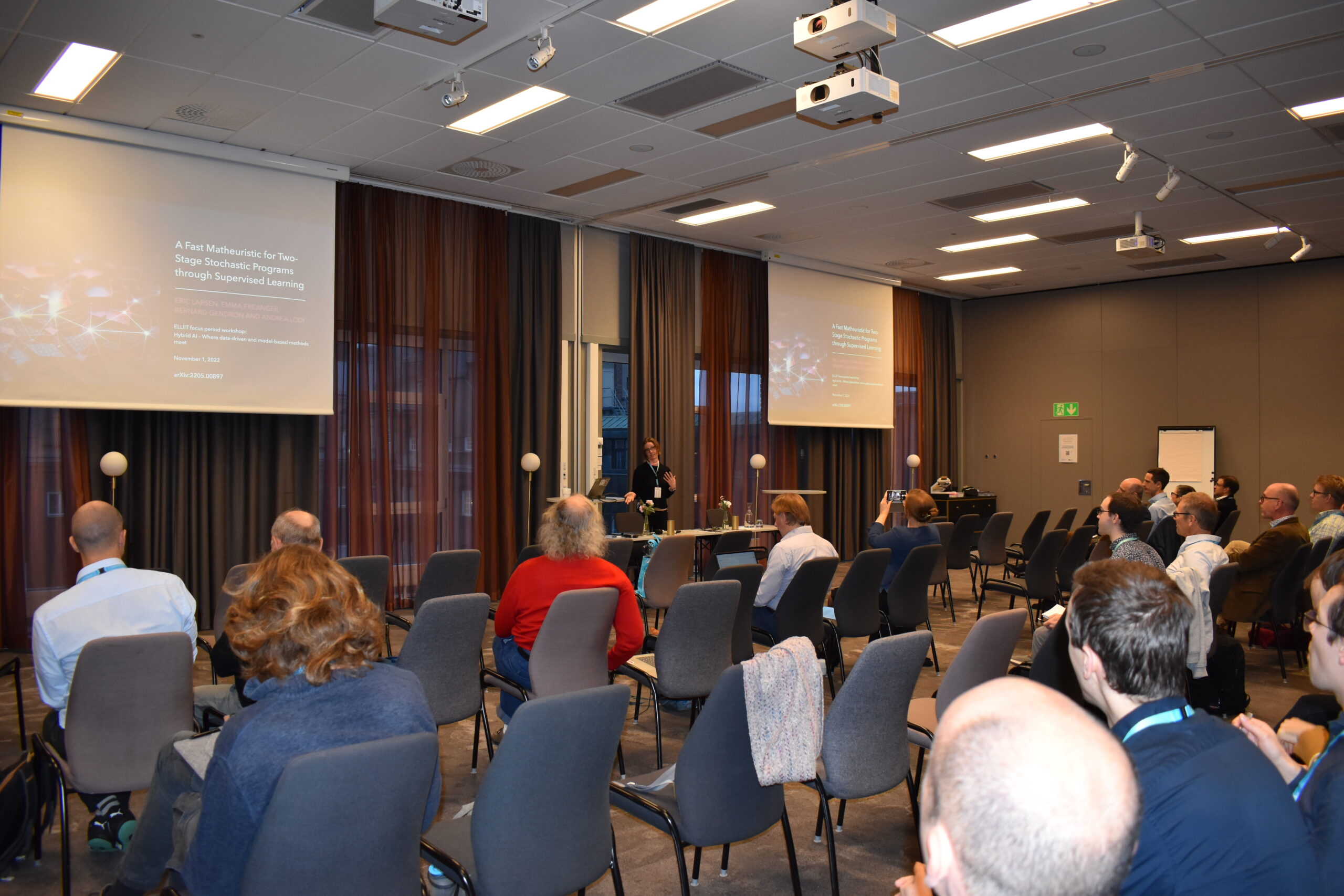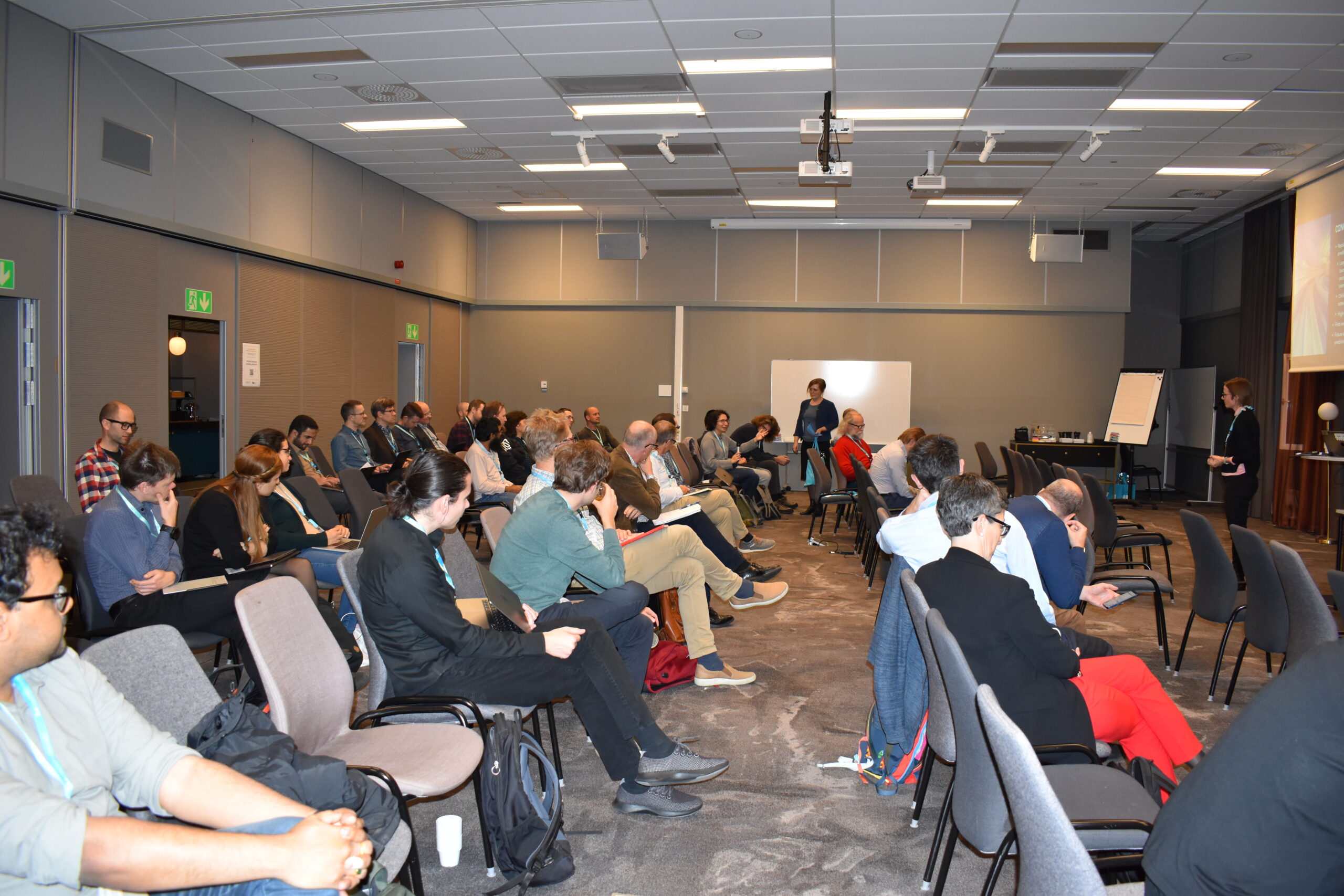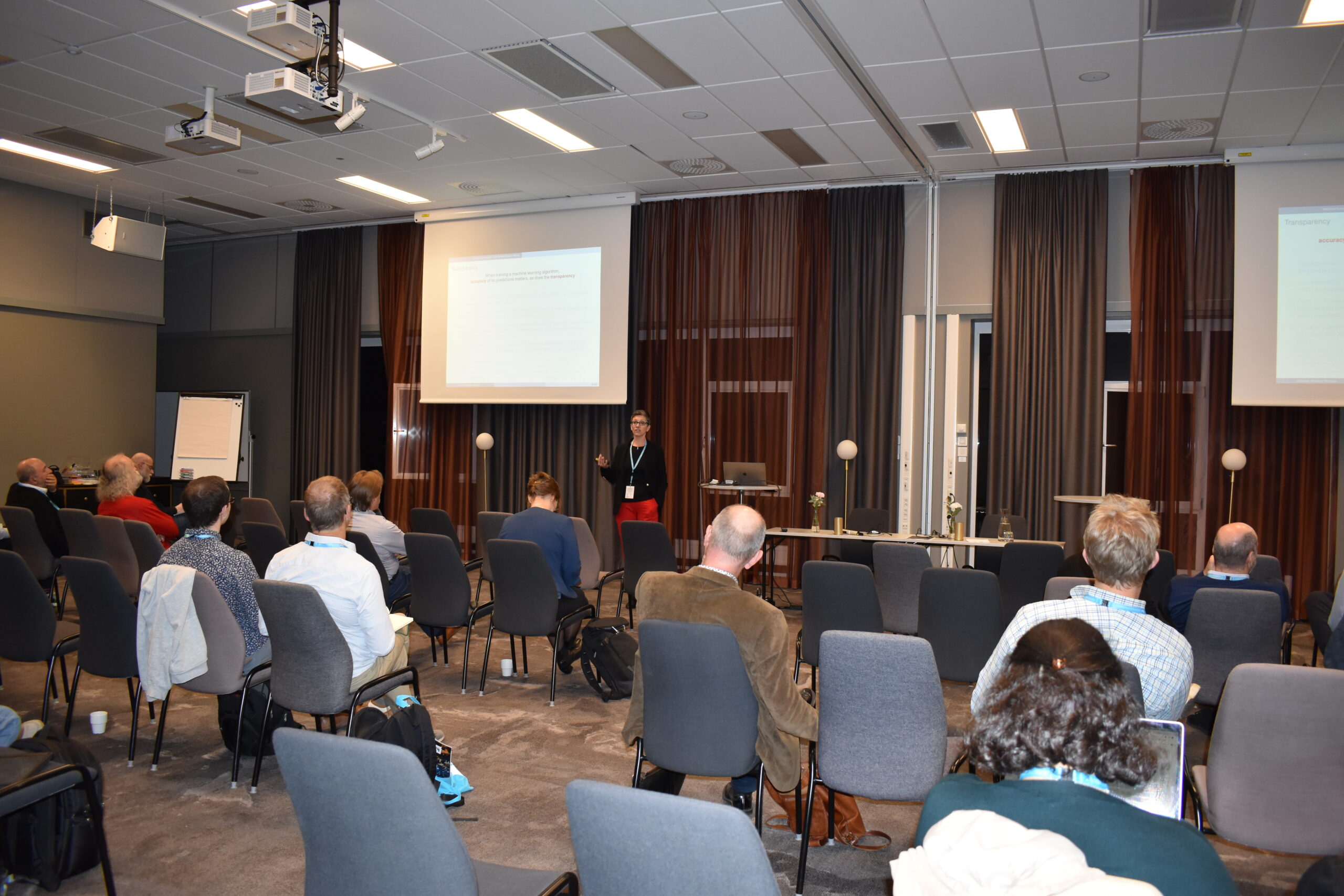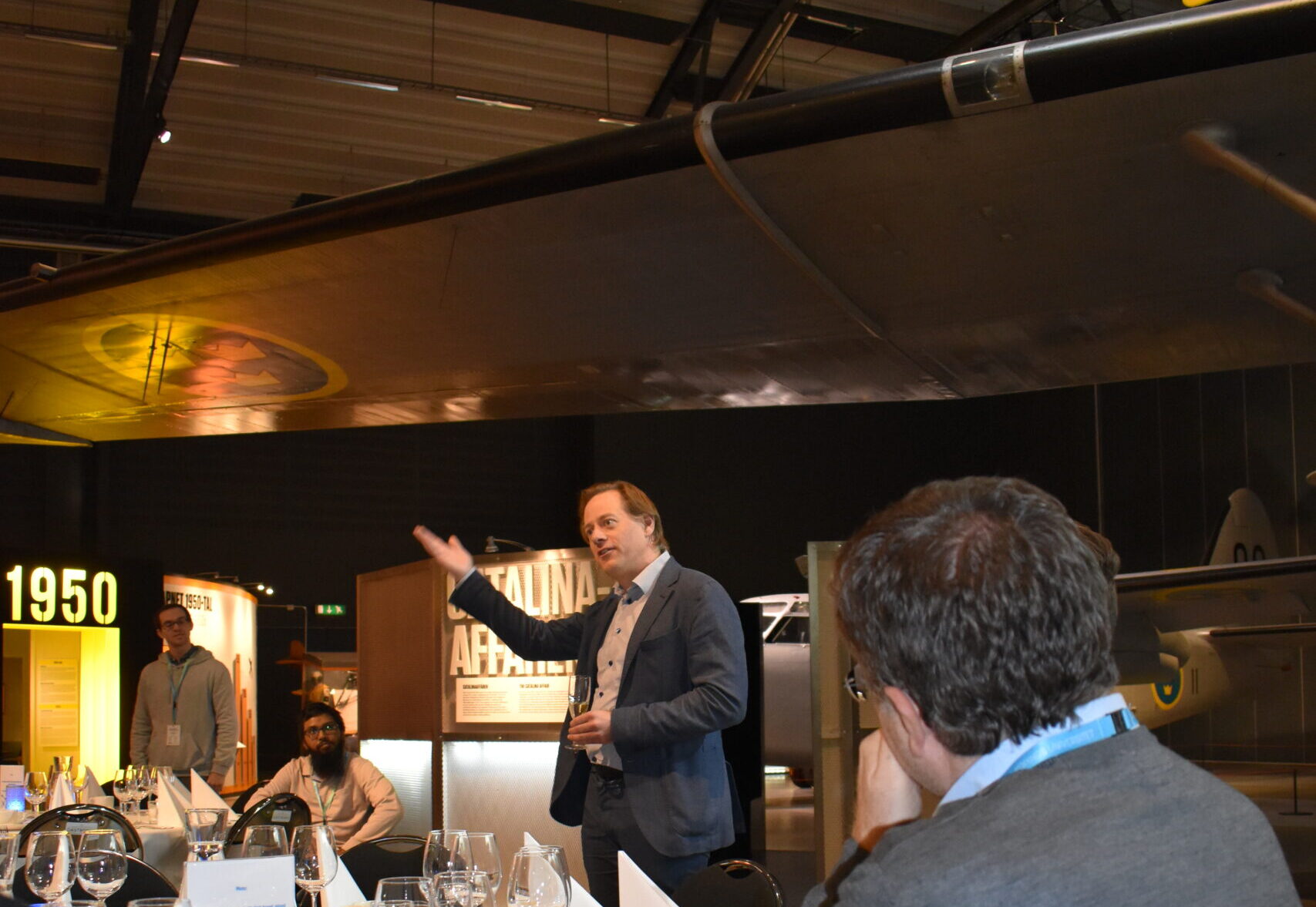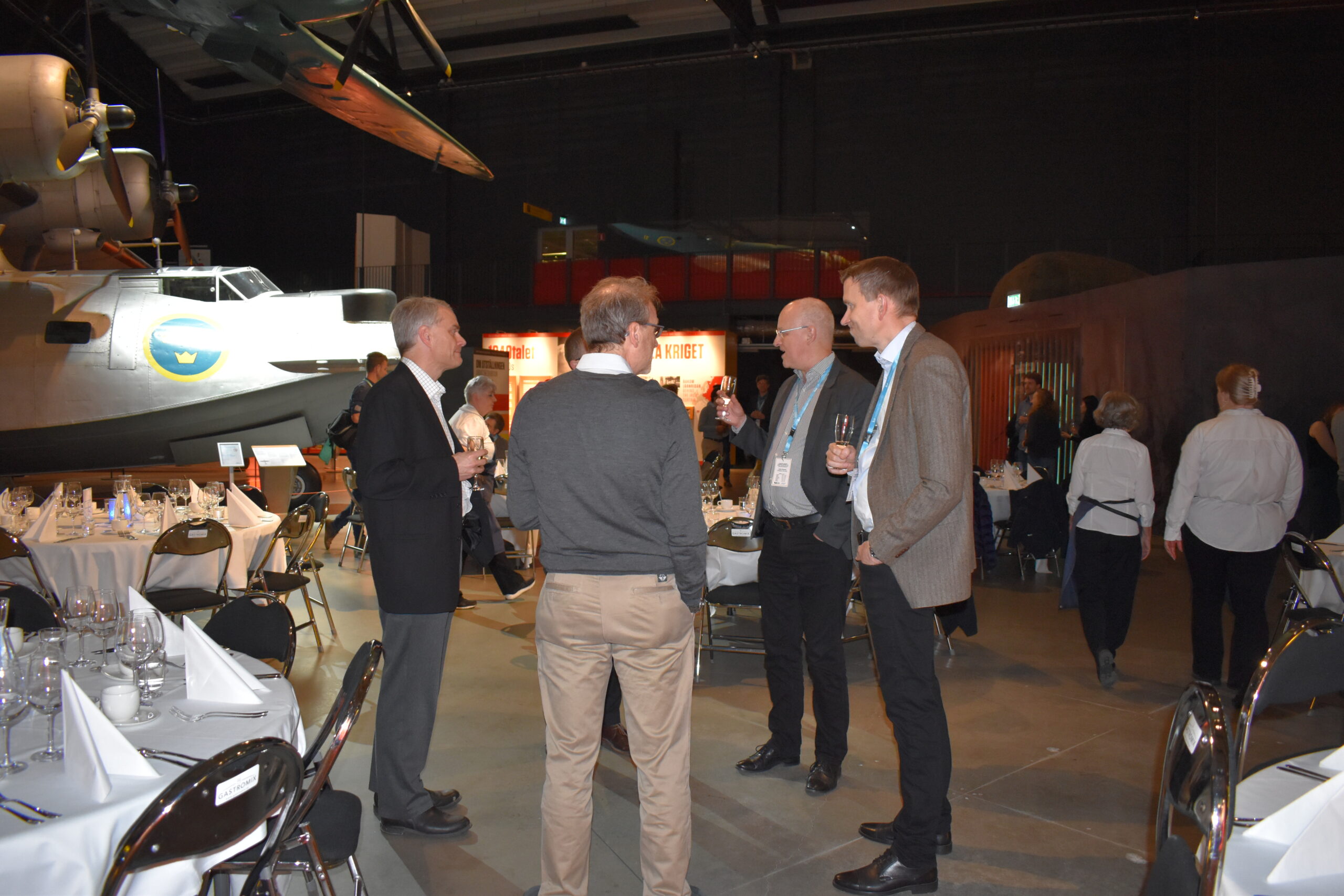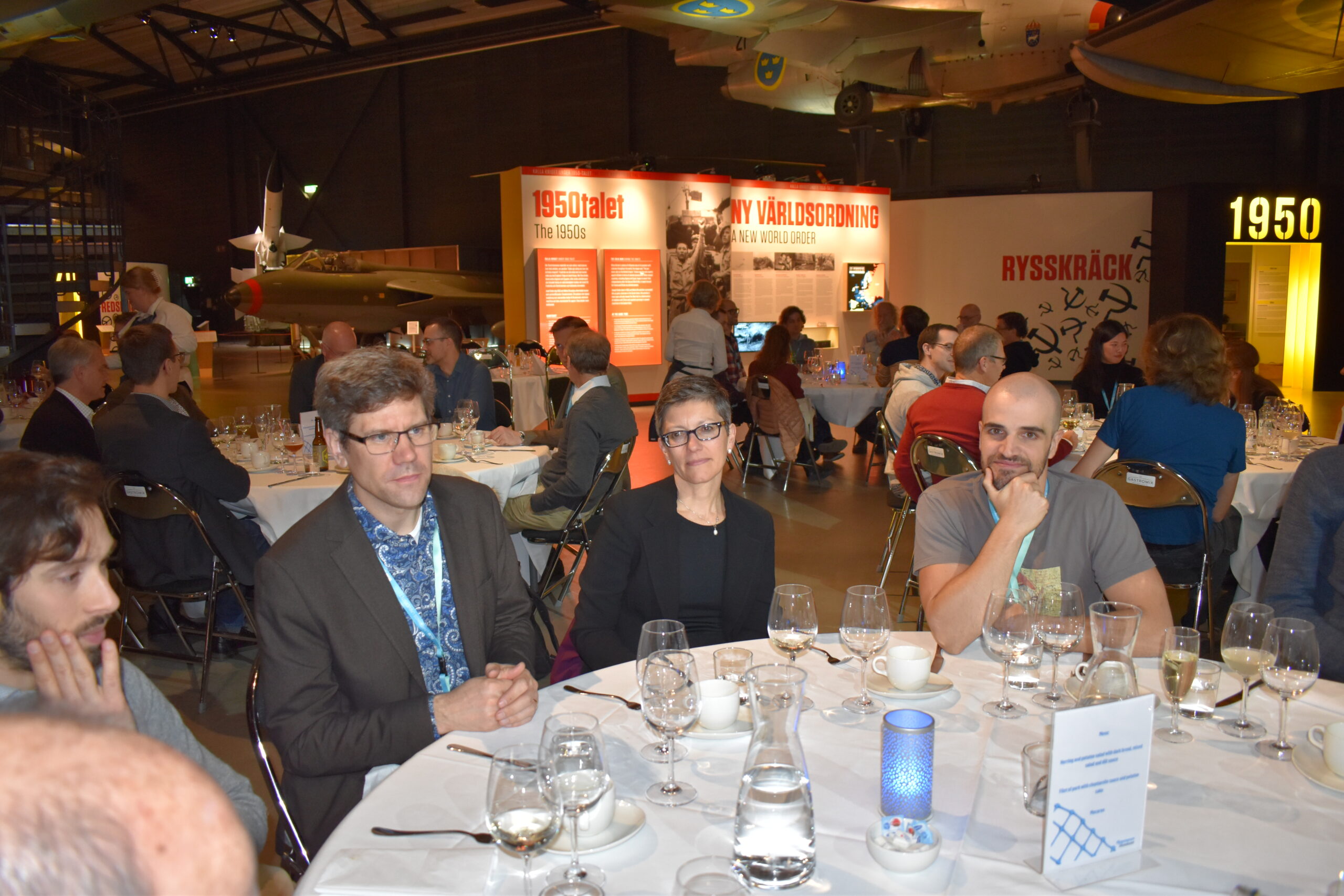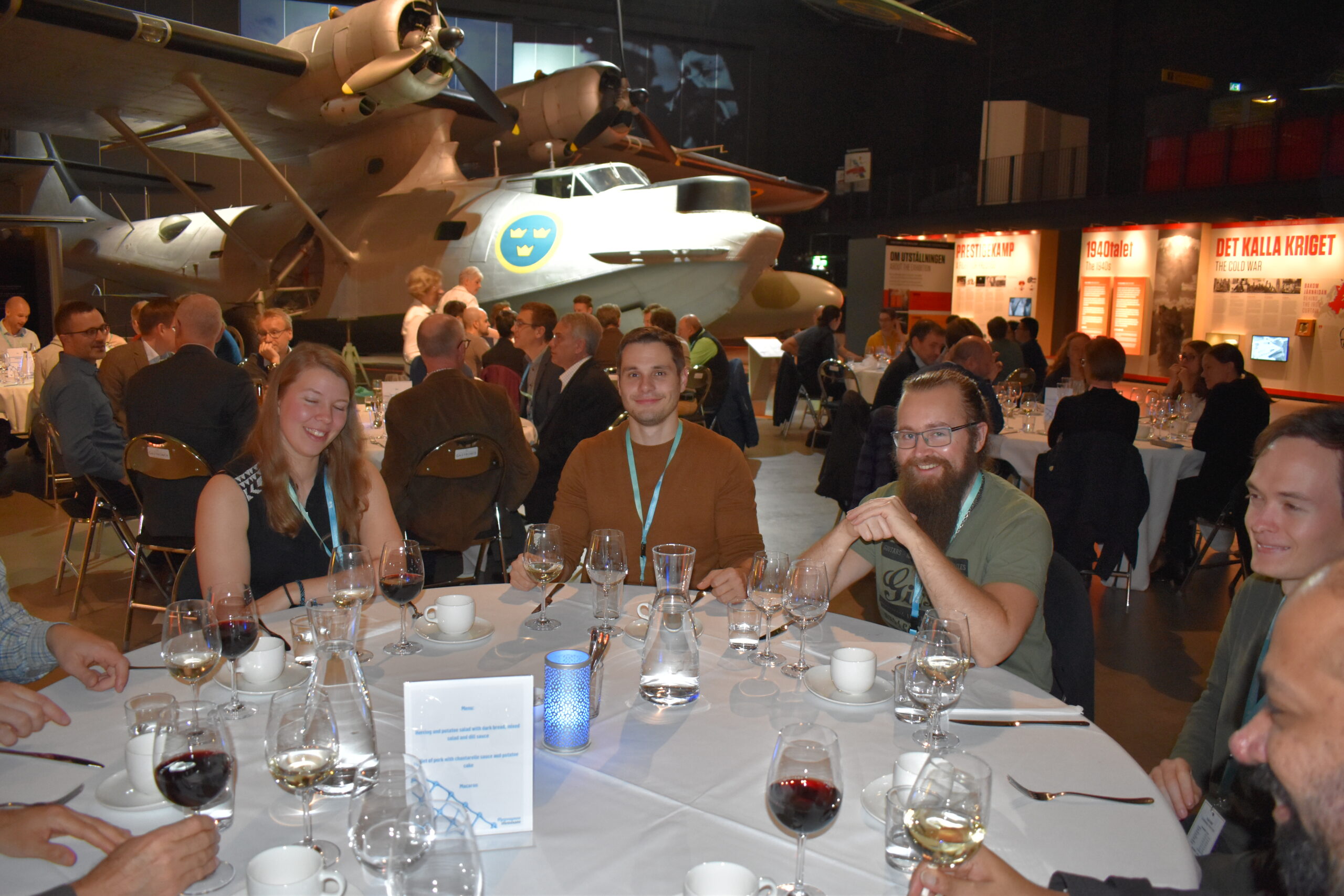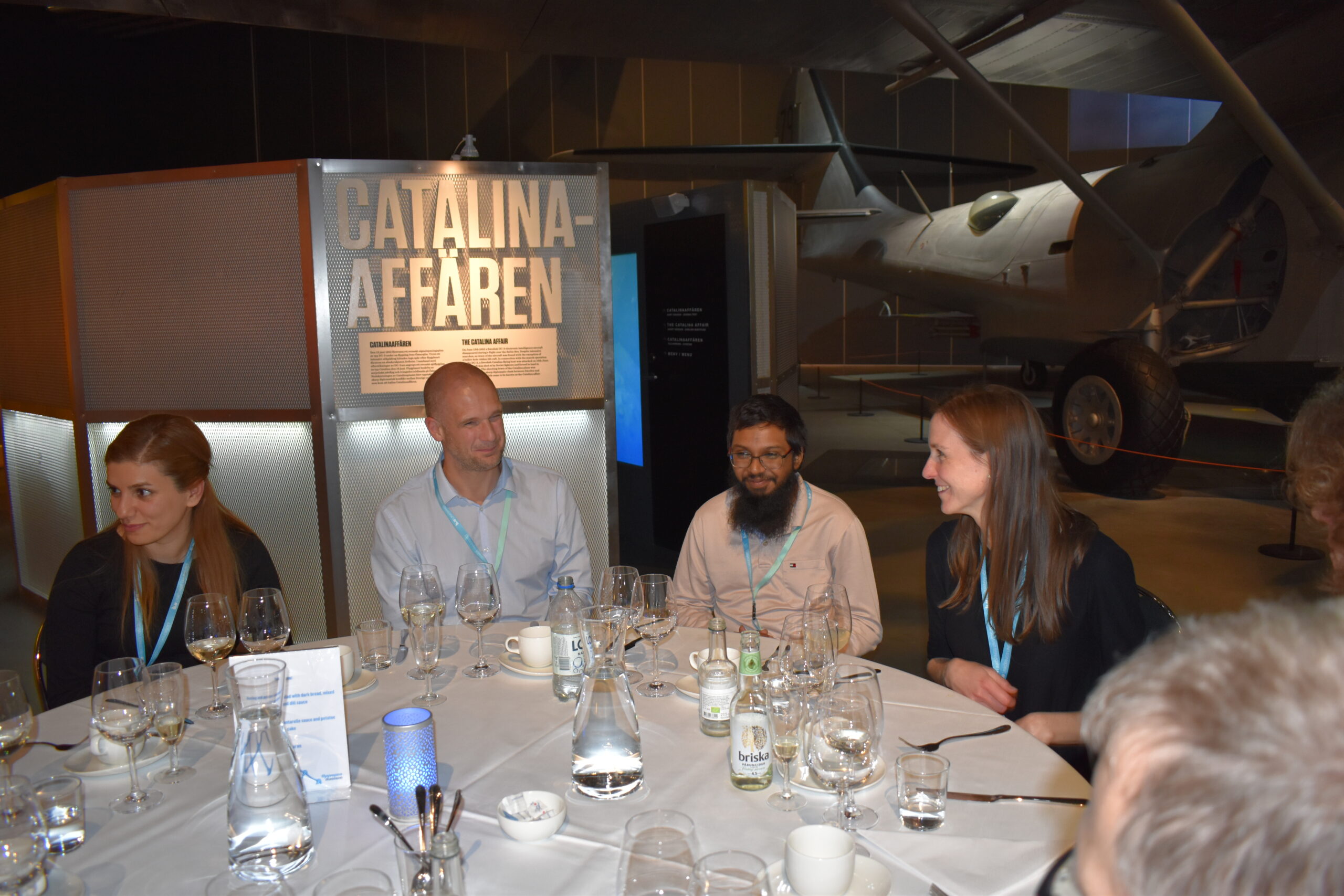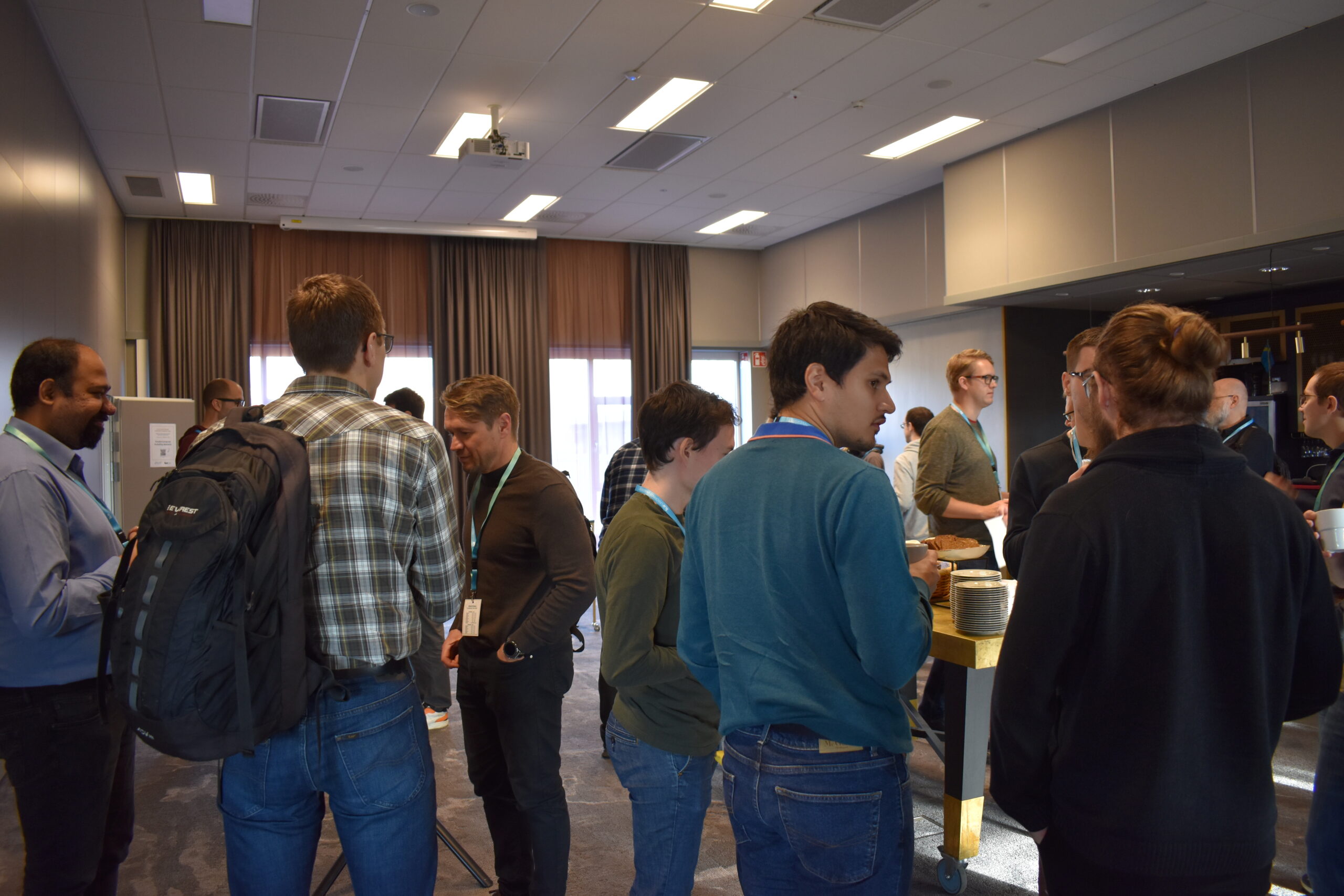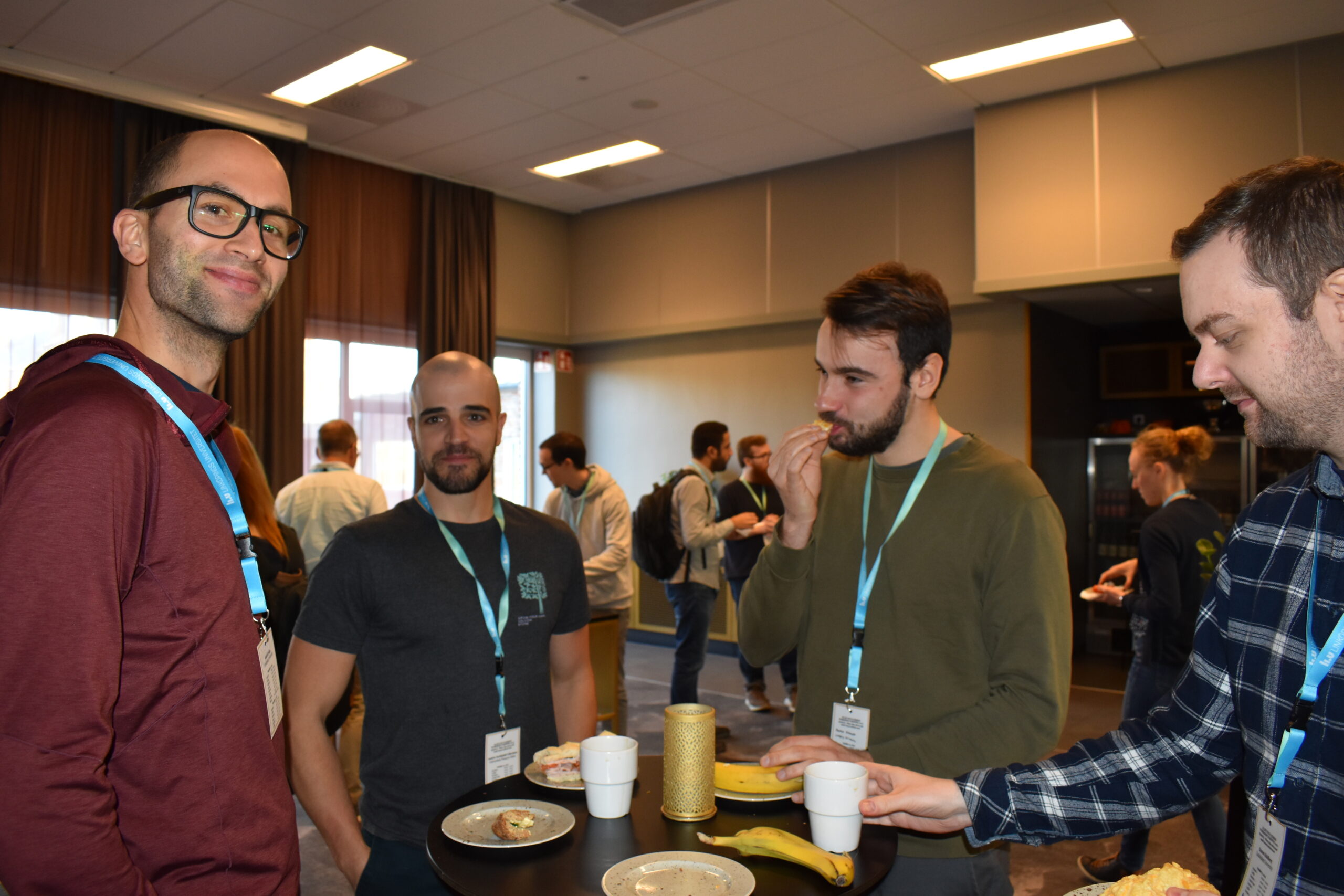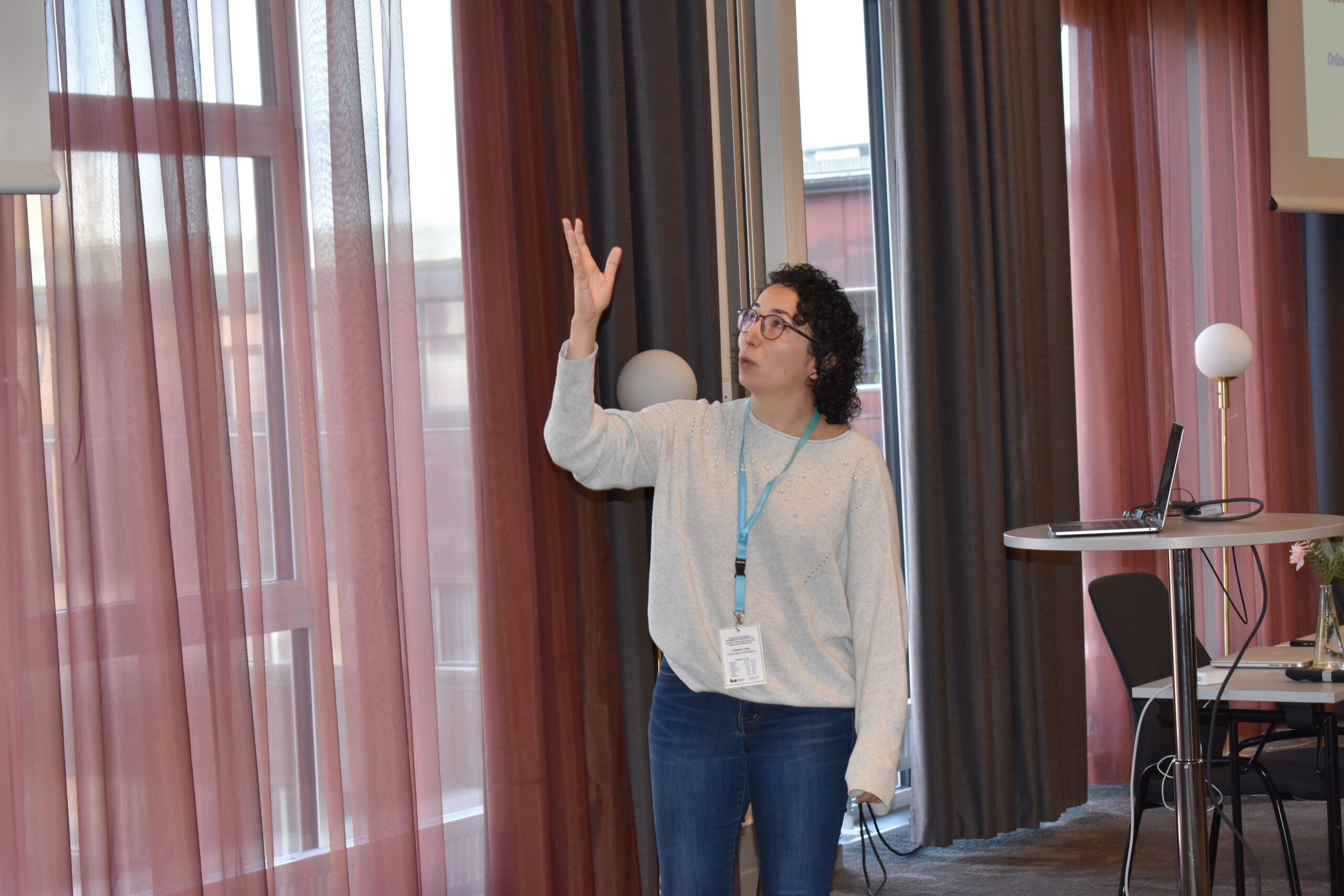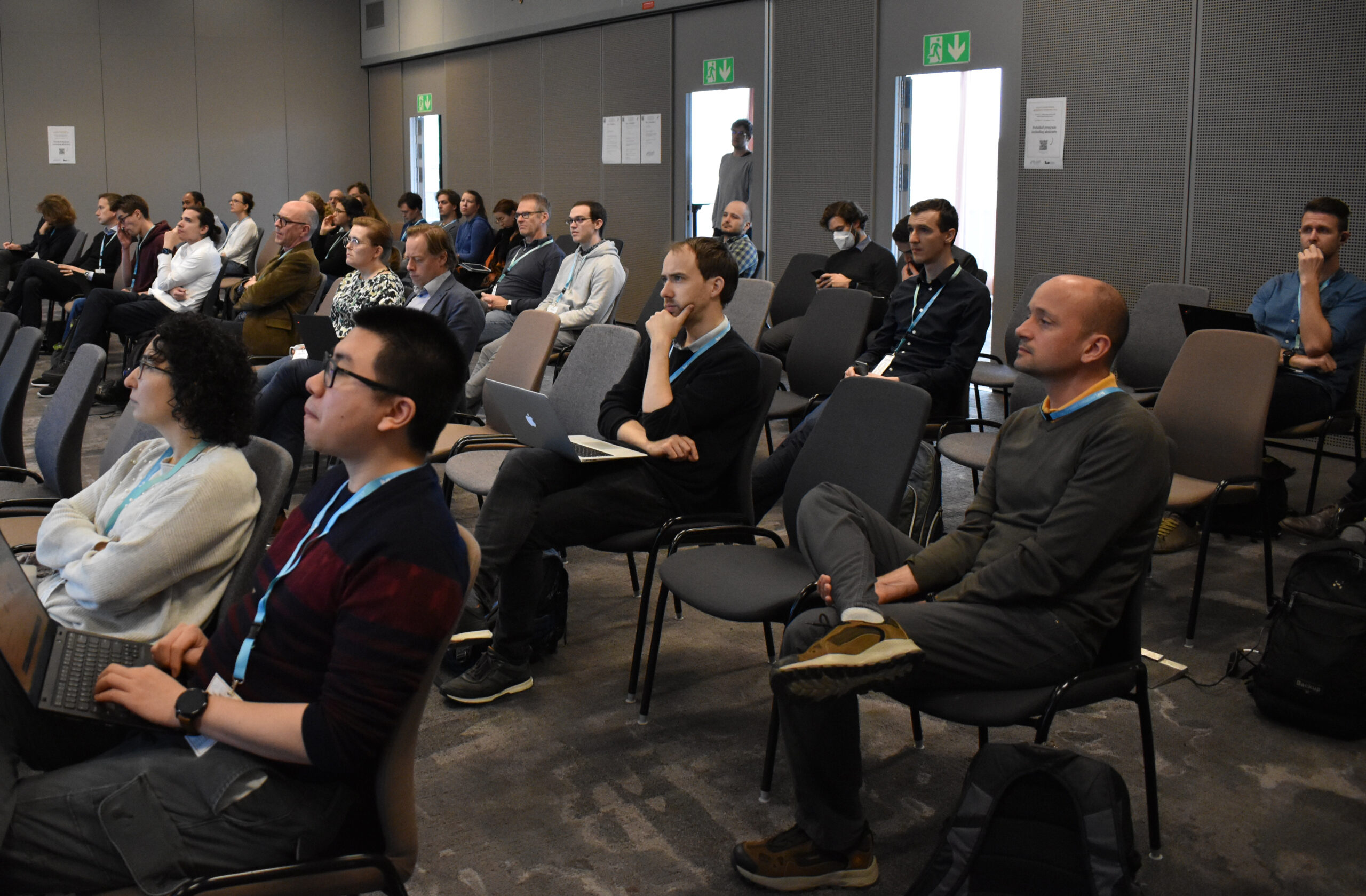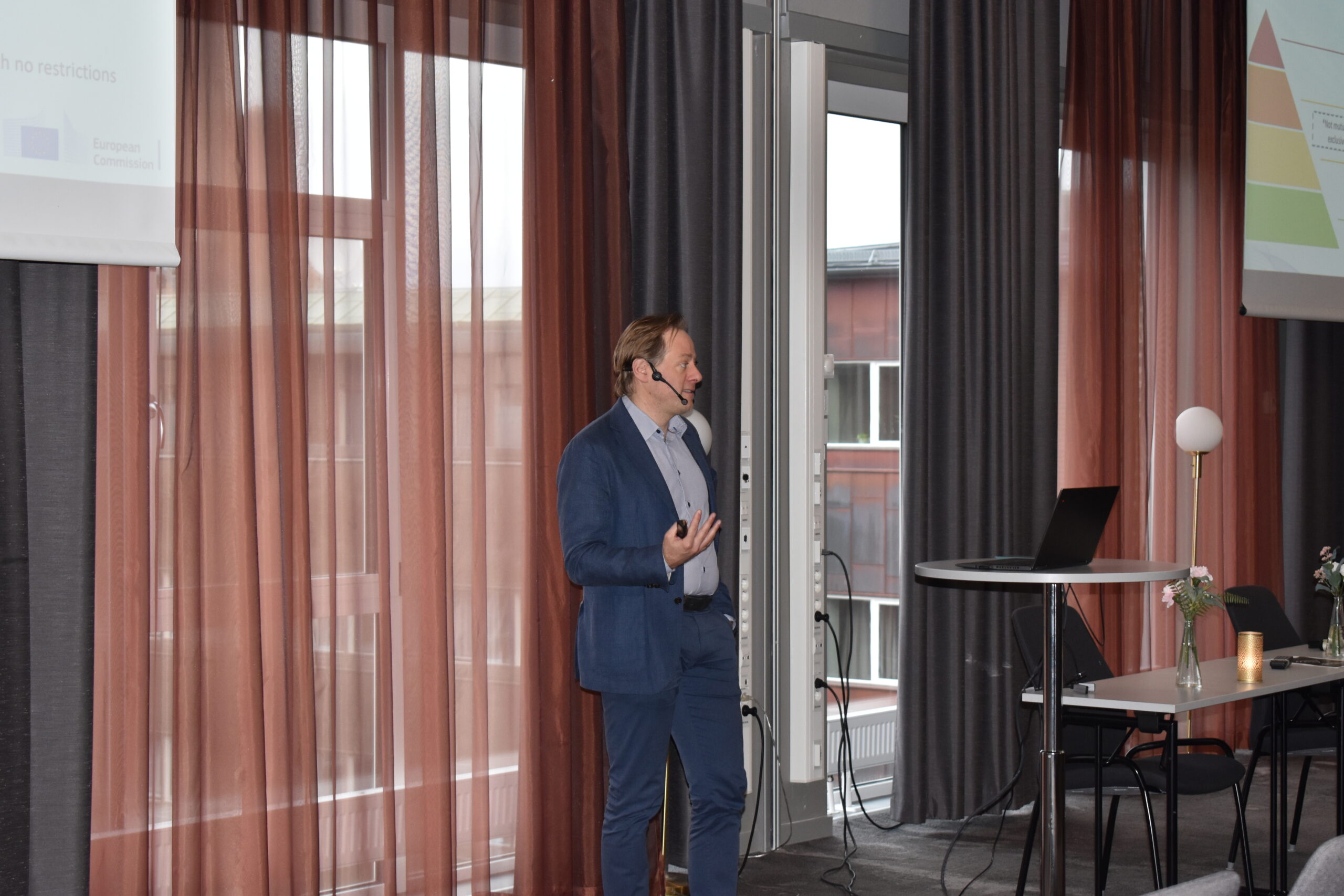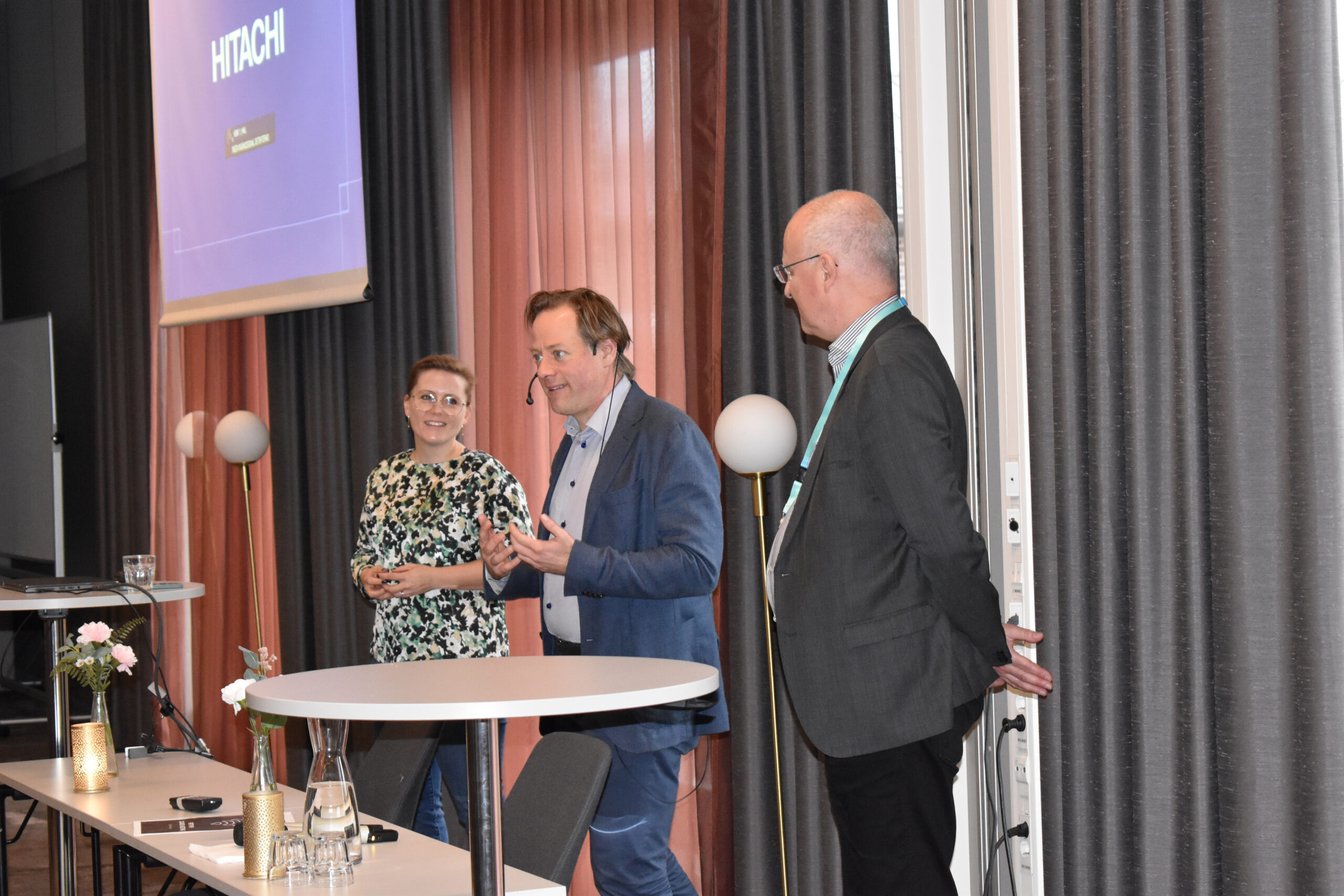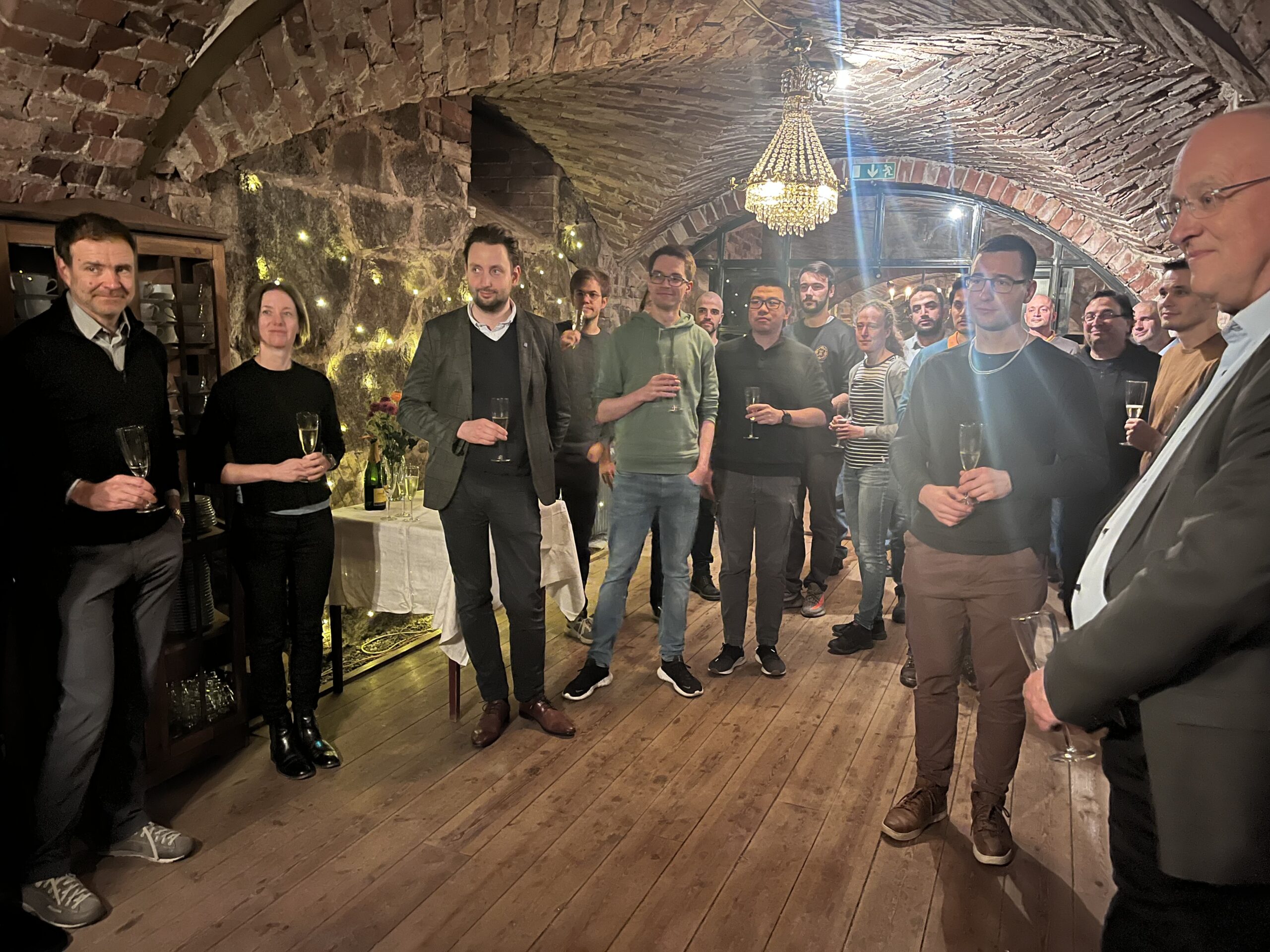Photos from the workshop
Detailed program
The presentations can be found below.
October 30, 2022
17:00 - 19:00
Munkkällaren
Läroverksgatan 7
Welcome reception at Munkkällaren
A welcome drink and some hors d’oeuvres will be served.
Day 1 – October 31, 2022
08:30 - 09:00
Scandic Frimurarehotellet
Registration
09:00 - 09:15
Opening
Fredrik Heintz, Linköping University
09:15 - 10:00
Merging optimization and machine learning
Michela Milano, University of Bologna
Abstract
Designing good models is one of the main challenges for obtaining realistic and useful decision support and optimization systems. Traditionally combinatorial models are crafted by interacting with domain experts with limited accuracy guarantees. Nowadays we have access to data sets of unprecedented scale and accuracy about the systems we are deciding on.
In this talk we propose a methodology called Empirical Model Learning that uses machine learning to extract data-driven decision model components and integrates them into an expert-designed decision model. We outline the main domains where EML could be useful and we show how to ground Empirical Model Learning on a problem of thermal-aware workload allocation and scheduling on a multi-core platform.
In addition, we discuss how to use EML with different optimization and machine learning techniques, and we provide some hints about recent work on EML for hierarchical optimization and on-line/off-line optimization.
Biography
Michela Milano is full professor of Artificial Intelligence at DISI – University of Bologna and she chairs the interdepartmental Institute of Human-Centered Artificial Intelligence counting 27 Departments and 400+ researchers. She is past Deputy President of the European Association of Artificial Intelligence (EurAI) and past Executive Councilor of the Association for the Advancements of Artificial Intelligence (AAAI), past member of the Executive Committee of the Association for Constraint Programming and of the Italian Association of Artificial Intelligence. She is authorized of more than 170 papers on International conferences and Journals. Her research activity concerns Artificial Intelligence with particular focus on decision support and optimization systems. In this field Michela Milano has written more than 170 papers on peer reviewed international conferences and journals. She coordinated many European scientific and industrial projects.
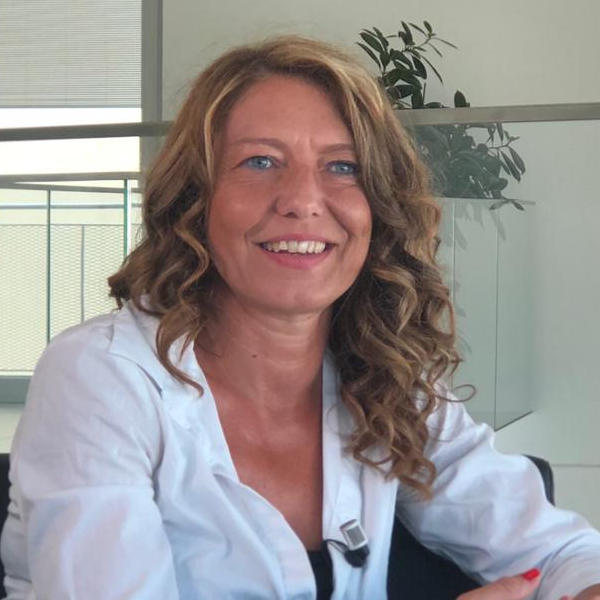
10:00 - 10:30
Coffee
10:30 - 11:15
Language-based representation learning for acting and planning
Hector Geffner, Universitat Pompeu Fabra and Linköping University
Abstract
Recent breakthroughs in AI have shown the remarkable power of deep learning and deep reinforcement learning. These developments, however, have been tied to specific tasks, and progress in out-of-distribution generalization has been limited. While it is assumed that these limitations can be overcome by incorporating suitable inductive biases in neural nets, this is left vague and informal, and does not provide meaningful guidance. In this talk, I articulate a different learning approach where representations are learned over domain-independent target languages whose structure and semantics yield a meaningful and strongly biased hypothesis space. The learned representations do not emerge then from biases in a low level architecture but from a general preference for the simplest hypothesis that explain the data. I illustrate this general idea by considering three learning problems in AI planning: learning general actions models, learning general policies, and learning general subgoal structures (“intrinsic rewards”). In all these cases, learning is formulated and solved as a combinatorial optimization problem although nothing prevents the use of deep learning techniques instead. Indeed, learning representations over domain-independent languages with a known structure and semantics provides an account of what is to be learned, while learning representations with neural nets provides a complementary account of how representations can be learned. The challenge and the opportunity is to bring the two approaches together.
Biography
Hector Geffner is an ICREA Research Professor at the Universitat Pompeu Fabra (UPF) in Barcelona, Spain, and a Wallenberg Guest Professor at Linköping University. He obtained a PhD in Computer Science at UCLA in 1989, and then worked at the IBM T.J. Watson Research Center in NY, USA and at the Universidad Simon Bolivar in Caracas. Hector is a Fellow of AAAI and EurAI, and his research has received a number of awards, including three ICAPS Influential Paper Awards, and well before that, the ACM Dissertation Award. Hector teaches courses on logic, AI, and social and technological change, and is currently doing research on representations learning for acting and planning as part of the ERC project RLeap 2020-2025.
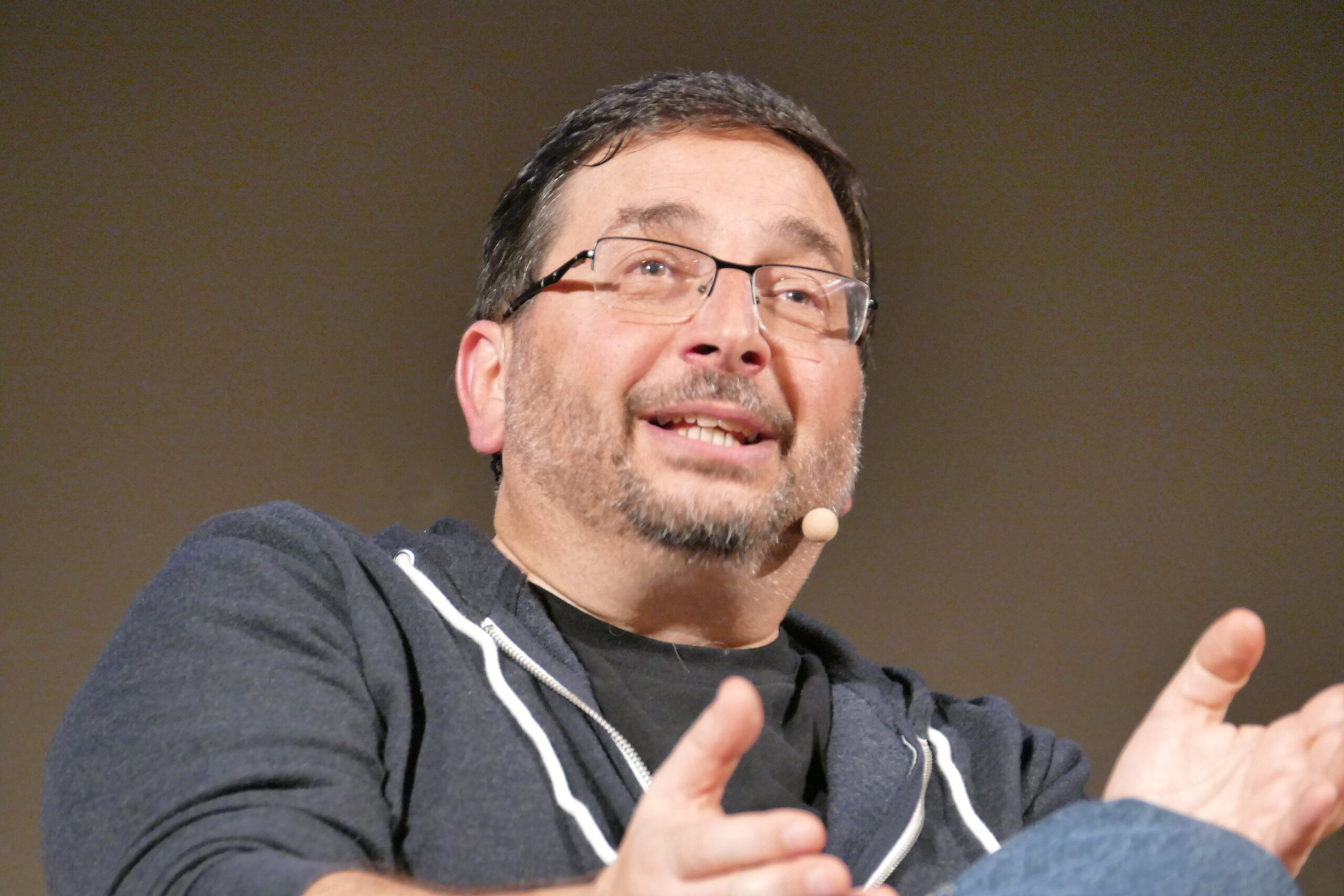
11:15 - 12:00
From Statistical Relational to Neuro-Symbolic Artificial Intelligence
Luc De Raedt, KU Leuven
Abstract
A central challenge to contemporary AI is to integrate learning and reasoning. The integration of learning and reasoning has been studied for decades already in the fields of statistical relational artificial intelligence and probabilistic programming. StarAI has focussed on unifying logic and probability, the two key frameworks for reasoning, and has extended this probabilistic logics machine learning principles. I will argue that StarAI and Probabilistic Logics form an ideal basis for developing neuro-symbolic artificial intelligence techniques. Thus neuro-symbolic computation = StarAI + Neural Networks.
Many parallels will be drawn between these two fields and will be illustrated using the Deep Probabilistic Logic Programming languages DeepProbLog and DeepStochLog. The former can be considered an extension of graphical models, the later an extension of unification based grammars.
Biography
Luc De Raedt is full professor at the Department of Computer Science, KU Leuven, and director of Leuven.AI, the newly founded KU Leuven Institute for AI. He is a guestprofessor at Örebro University in the Wallenberg AI, Autonomous Systems and Software Program. He received his PhD in Computer Science from KU Leuven (1991), and was full professor (C4) and Chair of Machine Learning at the Albert-Ludwigs-University Freiburg, Germany (1999-2006). His research interests are in Artificial Intelligence, Machine Learning and Data Mining, as well as their applications. He is well known for his contributions in the areas of learning and reasoning, in particular, for his work on probabilistic and inductive programming. He co-chaired important conferences such as ECMLPKDD 2001 and ICML 2005 (the European and International Conferences on Machine Learning), ECAI 2012 and will chair IJCAI in 2022 (the European and international AI conferences). He is on the editorial board of Artificial Intelligence, Machine Learning and the Journal of Machine Learning Research. He is a EurAI and AAAI fellow, an IJCAI Trustee and received and ERC Advanced Grant in 2015.
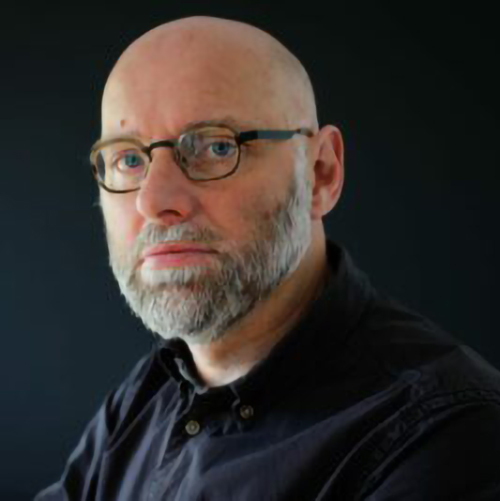
12:00 - 13:45
Lunch and guided tour of Linköping Cathedral
Group 1: Guided tour of Linköping Cathedral 12:00 and Lunch 13:00
Group 2: Lunch 12:00 and Guided tour of Linköping Cathedral 12:45
13:45 - 14:30
Decomposition approaches for a large-scale scheduling problem
Elina Rönnberg, Linköping University (replaces Adnan Darwiche, UCLA)
Abstract
Generic state-of-the-art solvers for discrete optimisation are exceptionally powerful tools that efficiently solve a variety of problems. However, the scale and complexity of practically relevant problems can sometimes render these solvers incapable of even finding feasible solutions. In such cases, one possibility is to develop solution approaches that exploit problem structure to decompose the problem and then use the generic solvers for addressing the resulting subproblems. The success of such approaches relies on that the subproblems can be efficiently solved and that the information gained from that is sufficient to solve the original problem.
In an industry-academia collaboration between Linköping University and Saab Aeronautics, we address the scheduling of a kind of electronic systems in future aircraft. Briefly, this problem can be described as a rich multiprocessor scheduling problem that also includes the scheduling of a communication network. Finding feasible solutions to practically relevant instances of this problem is challenging. Our work includes a careful design of decomposition methods as well as an in-depth analysis and understanding of instance data.
In this talk, two different ways of decomposing the problem will be presented. The first relies on making a strong relaxation of the problem and then applying a constraint generation procedure. In this approach, both the relaxed problem and the subproblem are solved by a mixed-integer programming solver. The computational performance of the method is enhanced through an integration with adaptive large neighbourhood search. The second decomposition strategy is based on logic-based Benders decomposition. In this case, the master problem is solved as a mixed-integer program and the subproblem is formulated as a constraint program. A new acceleration technique for logic-based Benders decomposition is used to further improve the computational performance of the scheme.
The computational results from the two decomposition approaches are compared. To conclude the talk, the different ways of exploiting the problem structure and the corresponding use of solvers based on mixed-integer programming and constraint programming, respectively, are discussed.
Biography
Elina Rönnberg is a Senior Associate Professor in Optimisation in the Department of Mathematics at Linköping University and she has experience from working in both industry and academia. Her research is in discrete optimisation, with a special interest in decomposition methods and applications within scheduling and resource allocation. The applied projects are often carried out in collaboration with industry or other stakeholders. Examples of applications are the design of electronic systems in aircraft and staff scheduling in healthcare. Contributions within decomposition methods include Dantzig-Wolfe decomposition, Lagrangian relaxation, column generation for integer programs, and logic-based Benders decomposition.
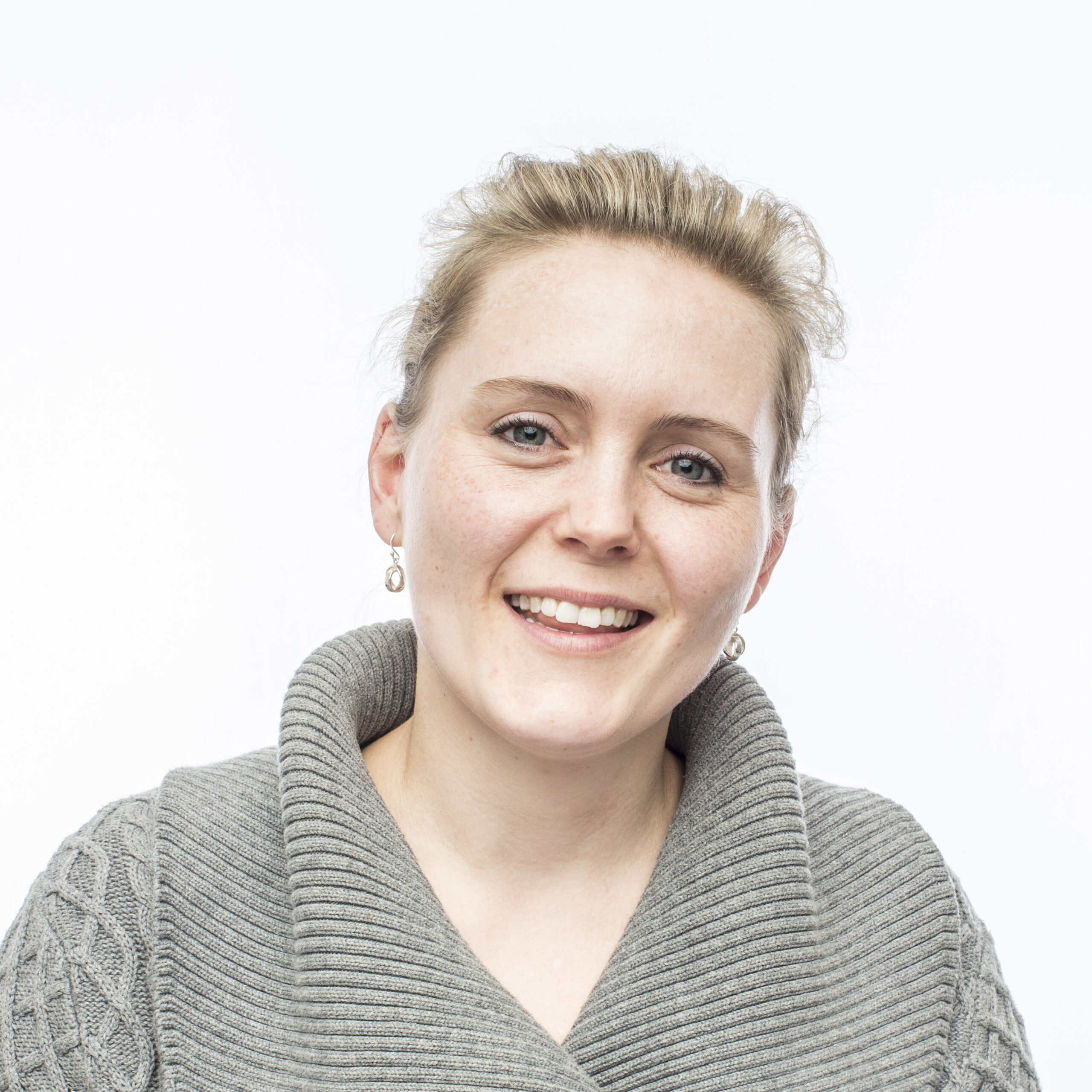
14:30 - 15:15
Another Hybrid AI – Where data-driven and PDE-based methods meet
Marc Schoenauer, Inria
Biography
Marc Schoenauer is Principal Senior Researcher (Directeur de Recherche de Classe Exceptionnelle) with INRIA. He graduated at Ecole Normale Supérieure (1975), then got a PhD in Applied Maths at Paris 6 U. (1980). He has been Junior Researcher (Chargé de Recherche) with CNRS (1980-2001), at CMAP (the Applied Maths Lab.) at Ecole Polytechnique. He then joined INRIA, and in 2003 founded the TAO team (Machine Learning and Optimization) at INRIA Saclay together with Michèle Sebag.
Marc Schoenauer has been working since early 90s at the interface between Evolutionary Computation (EC) and Machine Learning (ML). He is author of more than 150 papers in journals and major conferences. He is or has been (co-)advisor of 35 PhD students. He has been Chair of SIGEVO, the ACM Special Interest Group for Evolutionary Computation (2015-2019). He was the founding president (1995-2002) of Evolution Artificielle, the French Society for Evolutionary Computation, and has been president of AFIA, the French Association for Artificial Intelligence (2002-2004).
He has been Editor in Chief of Evolutionary Computation Journal (2002-2009, now on the Advisory Board), is or has been in the Editorial Board of the most prestigious journals in EC: IEEE Trans. on EC (1996-2004), TCS-C (2001-2006), GPEM (1999-2017), ASOC (2000-2014), and the recent (2019) ACM-TELO. He is Action Editor of Journal of Machine Learning Research (JMLR) since 2013.
Last but not least, he seconded Cédric Villani in writing his report on the French Strategy for AI delivered to Pdt Macron in March 2018, and is currently Deputy Research Director in charge of AI at INRIA.
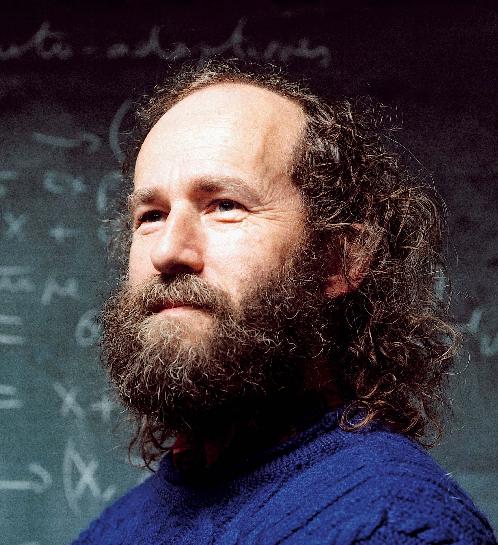
15:15 - 15:45
Coffee
15:45 - 16:30
Machine Learning to Accelerate Solving of Constraint Programs
Neil Yorke-Smith, TU Delft
Abstract
The Constraint Satisfaction Problem (CSP) is a characteristic example of NP-hard combinatorial optimisation. Recent interest in using machine learning (ML) for CSP solving includes injecting forms of ML — typically reinforcement or supervised learning — into the CSP solver.
This talk presents two instances of such ML-for-CP where we leverage complementary strengths of offline and online learning and search.
First, we present an approach using graph neural networks to learn variable activity initialisation for clause learning CSP solvers.
Second, we present an approach for one-shot learning of variable ordering (branching) heuristics for optimisation CSPs. Both approaches exhibit promising results on the MiniZinc benchmark library.
Joint work with E. Demirović, F. Doolaard, R. van Driel.
Biography
Neil Yorke-Smith is an Associate Professor of Socio-Technical Algorithmics in the Faculty of Electrical Engineering, Mathematics and Computer Science at the Delft University of Technology (TU Delft). His research focuses on intelligent decision making in complex socio-technical situations, with a particular interest in agent-based methodologies and behavioural factors in automated planning and scheduling. He has been a Visiting Scholar at the Center for the Study of Language and Information, Stanford University, and a Visiting Research Fellow at the Cambridge Judge Business School and at RMIT University. Previously, Dr Yorke-Smith held positions at the American University of Beirut, Lebanon and at SRI International, USA; he gained a doctorate degree from Imperial College London. He is a senior member of the Association for the Advancement of Artificial Intelligence (AAAI) and of the Association for Computing Machinery (ACM).
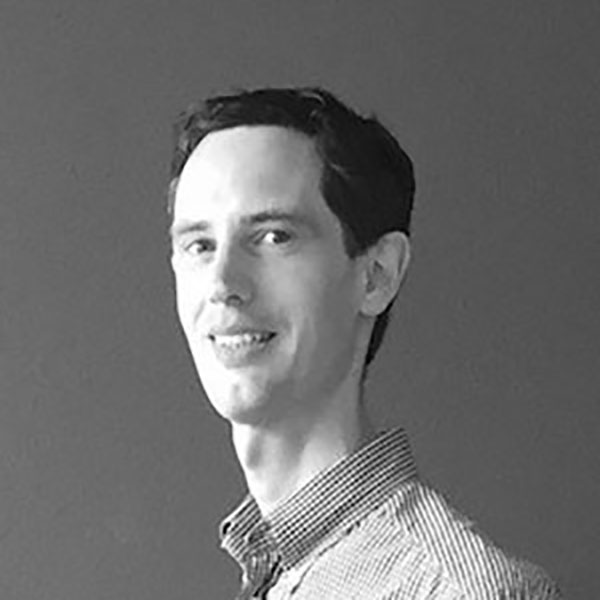
Day 2 – November 1, 2022
09:15 - 10:00
Scandic Frimurarehotellet
Artificial Intelligence, Data Sciences, and Optimization in Economics and Finance
Panos M. Pardalos, University of Florida
Abstract
Artificial Intelligence (along with data sciences and optimization) has been a fundamental component of many activities in economics and finance in recent years. In this lecture we first summarize some of the major impacts of AI tools in economics and finance and discuss future developments and limitations.
In the second part of the talk we present details on neural network embeddings on corporate annual filings for portfolio selection.
Biography
Panos Pardalos was born in Drosato (Mezilo) Argitheas in 1954 and graduated from Athens University (Department of Mathematics). He received his PhD (Computes and Information Sciences) from the University of Minnesota. He is a Distinguished Professor in the Department of Industrial and Systems Engineering at the University of Florida, and an affiliated faculty of Biomedical Engineering and Computer Science & Information & Engineering departments. He is the director of the Center for Applied Optimization. In addition, he is the academic advisor of the laboratory on networks and applications at the Higher School of Economics, Moscow (funded by a mega grant in 2011).
Panos Pardalos is a world-renowned leader in Global Optimization, Mathematical Modeling, Energy Systems, Financial applications, and Data Sciences. He is a Fellow of AAAS, AAIA, AIMBE, EUROPT, and INFORMS and was awarded the 2013 Constantin Caratheodory Prize of the International Society of Global Optimization. In addition, Panos Pardalos has been awarded the 2013 EURO Gold Medal prize bestowed by the Association for European Operational Research Societies. This medal is the preeminent European award given to Operations Research (OR) professionals for “scientific contributions that stand the test of time.”
Panos Pardalos has been awarded a prestigious Humboldt Research Award (2018-2019). The Humboldt Research Award is granted in recognition of a researcher’s entire achievements to date – fundamental discoveries, new theories, insights that have had significant impact on their discipline.
Panos Pardalos is also a Member of several Academies of Sciences, and he holds several honorary PhD degrees and affiliations. He is the Founding Editor of Optimization Letters, Energy Systems, and Co-Founder of the International Journal of Global Optimization, Computational Management Science, and Springer Nature Operations Research Forum. He has published over 500 journal papers, and edited/authored over 200 books. He is one of the most cited authors and has graduated 70 PhD students so far. Details can be found in www.ise.ufl.edu/pardalos
Panos Pardalos has lectured and given invited keynote addresses worldwide in countries including Austria, Australia, Azerbaijan, Belgium, Brazil, Canada, Chile, China, Czech Republic, Denmark, Egypt, England, France, Finland, Germany, Greece, Holland, Hong Kong, Hungary, Iceland, Ireland, Italy, Japan, Lithuania, Mexico, Mongolia, Montenegro, New Zealand, Norway, Peru, Portugal, Russia, South Korea, Singapore, Serbia, South Africa, Spain, Sweden, Switzerland, Taiwan, Turkey, Ukraine, United Arab Emirates, and the USA.
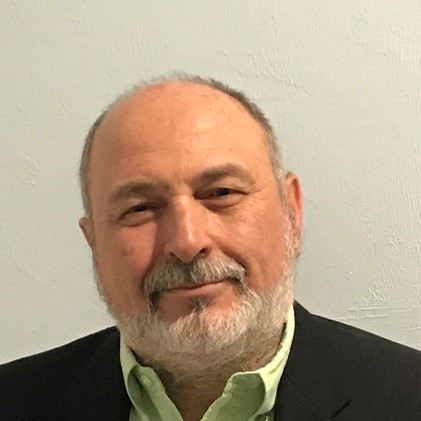
10:00 - 10:30
Coffee
10:30 - 11:15
Primal Heuristics for Mixed-Integer Programming through a Machine Learning lens
Andrea Lodi, Cornell Tech
Abstract
In this talk, we discuss how a careful use of Machine Learning (ML) concepts can have an impact in primal heuristics for Mixed-Integer Programming (MIP). More precisely, we review several forms of integration of ML in the heuristic context and then we consider two applications in details. First, we design a data-driven scheduler for running both diving and large-neighborhood search heuristics in SCIP, one of the most effective open-source MIP solvers. Second, we incorporate a major learning component into Local Branching, one of the most well-known primal heuristic paradigms. In both cases, computational results show solid improvements over the state of the art.
Biography
Andrea Lodi is an Andrew H. and Ann R. Tisch Professor at the Jacobs Technion-Cornell Institute at Cornell Tech and the Technion. He is a member of the Operations Research and Information Engineering field at Cornell University. He received his PhD in System Engineering from the University of Bologna in 2000 and he was a Herman Goldstine Fellow at the IBM Mathematical Sciences Department, NY in 2005–2006. He was a full professor of Operations Research at DEI, the University of Bologna between 2007 and 2015. Between 2015 and 2022, he has been the Canada Excellence Research Chair in “Data Science for Real-time Decision Making” at Polytechnique Montréal. His main research interests are in Mixed-Integer Linear and Nonlinear Programming and Data Science, having a significant publication record in the most prestigious journals and conferences of those fields. Andrea Lodi’s work has received several recognitions including the IBM and Google faculty awards. Andrea is the recipient of the INFORMS Optimization Society 2021 Farkas Prize. He serves in leading editorial positions, most notably, he is a co-Editor for Mathematical Programming and an Area Editor for INFORMS Journal on Computing. He has been the network coordinator and principal investigator of two large EU projects/networks, and, in the period 2006-2021, consultant of the IBM CPLEX research and development team. In the period 2017-2022, Andrea Lodi has been the co-principal investigator of the project “Data Serving Canadians: Deep Learning and Optimization for the Knowledge Revolution”, and the scientific co-director of IVADO, the Montréal Institute for Data Valorization.
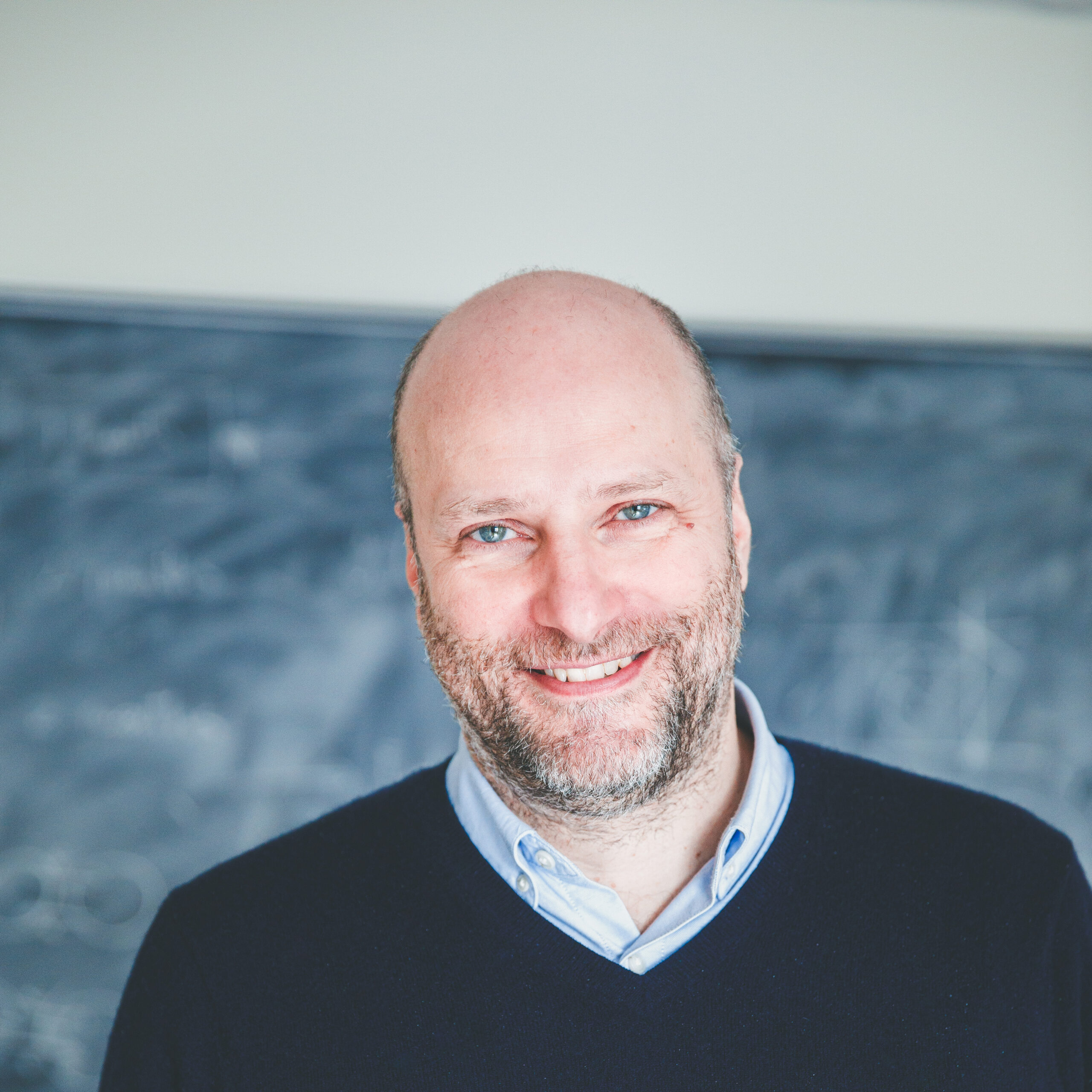
11:15 - 12:00
Stochastic and prediction-based approaches for dynamic online radiotherapy scheduling
Louis-Martin Rousseau, École Polytechnique de Montréal
Abstract
Patient scheduling is a difficult task involving stochastic factors such as the unknown arrival times of patients. Similarly, the scheduling of radiotherapy for cancer treatments needs to handle patients with different urgency levels when allocating resources. High priority patients may arrive at any time, and there must be resources available to accommodate them. A common solution is to reserve a flat percentage of treatment capacity for emergency patients. However, this solution can result in overdue treatments for urgent patients, a failure to fully exploit treatment capacity, and delayed treatments for low-priority patients. This problem is especially severe in large and crowded hospitals. We investigate stochastic programming and prediction-based approach for online dynamic radiotherapy scheduling. The objective is to dynamically adapt the present scheduling decision based on each incoming patient and the current allocation of resources. The latest approach is based on a regression model trained to recognize the links between patients’ arrival patterns, and their ideal waiting time in optimal offline solutions where all future arrivals are known in advance. When our prediction-based approach is compared to flat-reservation policies, it does a better job of preventing overdue treatments for emergency patients, while also maintaining comparable waiting times for the other patients. We also demonstrate how our proposed approach supports explainability and interpretability in scheduling decisions using SHAP values.
Biography
Louis-Martin Rousseau is a full professor of Operations Research in the Department of Mathematics and Industrial Engineering at École Polytechnique de Montréal. Professor Rousseau was one of the first to pursue research in the field of methods hybridization of classical operational research techniques (OR) and Constraint Programming (CP), which comes from Artificial Intelligence (AI). His work on combinatorial optimization problems has gained him international recognition, in the fields of hybrid decomposition methods for transportation and scheduling. Since February 2016 he holds the Canada Research Chair in Healthcare Analytics and Logistics (HANALOG.ca ), which studies complex and/or interconnected logistics problems in the field home care services, cancer treatment and operating room management. Louis-Martin was also the founder and Chief Science Officer of Planora before its acquisition by JDA in 2012, and he recently cofounded Gray Oncology Solution (www.gray-os.com) which proposes a scheduling SaaS solution to the health sector.
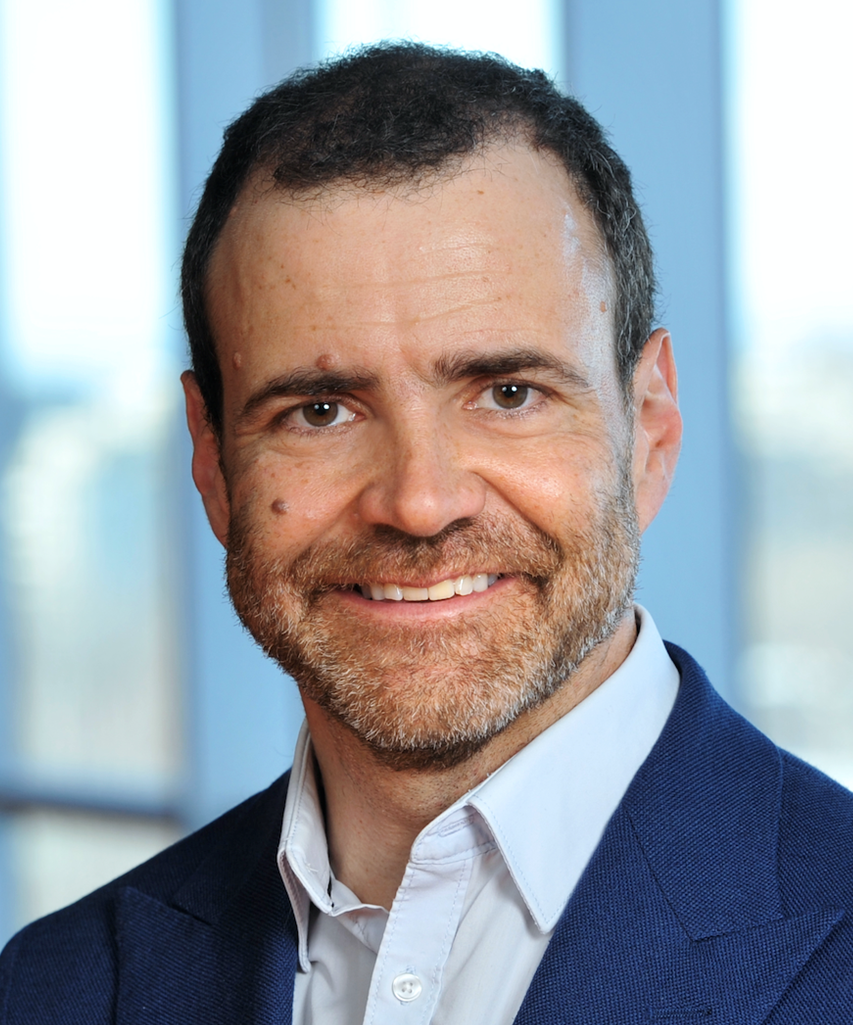
12:00 - 13:00
Lunch
13:00 - 13:45
A Hybrid Approach to Safe Learning in Automatic Control
Melanie Zeilinger, ETH Zurich
Abstract
Safety is widely recognized as one of the key challenges for the widespread success of learning-based control techniques in real-life and industrial settings.
Model-based techniques have a successful history of providing strong safety guarantees, motivating the integration of model- with learning-based techniques to generate high-performance yet safe controllers. Out of the different possible notions of safety, I will focus on the satisfaction of critical safety constraints in this talk, a common and intuitive form of specifying safety in many applications. We will then approach the question of safety for learning-based control from a constrained and optimization-based control perspective, offering a flexible framework for safe learning-based control. I will discuss two main strategies: the use of learning to improve optimization-based controllers and the use of constrained control concepts to augment learning-based controllers with constraint satisfaction properties. The results will be highlighted using examples from robotics.
Biography
Melanie Zeilinger is an Assistant Professor at the Department of Mechanical and Process Engineering at ETH Zurich, Switzerland where she leads the Intelligent Control Systems group. She received the Diploma degree in Engineering Cybernetics from the University of Stuttgart, Germany, in 2006, and the Ph.D. degree with honors in electrical engineering from ETH Zurich, Switzerland, in 2011. From 2011 to 2012 she was a Postdoctoral Fellow with the Ecole Polytechnique Federale de Lausanne (EPFL), Switzerland. She was a Postdoctoral Researcher with the Max Planck Institute for Intelligent Systems, Tübingen, Germany until 2015 and with the Department of Electrical Engineering and Computer Sciences at the University of California at Berkeley, CA, USA, from 2012 to 2014. From 2018 to 2019 she was a professor at the University of Freiburg, Germany. Her awards include the ETH medal for her PhD thesis, a Marie-Curie IO fellowship and an SNF Professorship grant. She is one of the organizers of the new Conference on Learning for Dynamics and Control (L4DC). She is currently an Associate Editor for the IEEE Control Systems Magazine and the IEEE Control Systems Letters. Her research interests include learning-based control with applications to robotics and human-in-the-loop control.
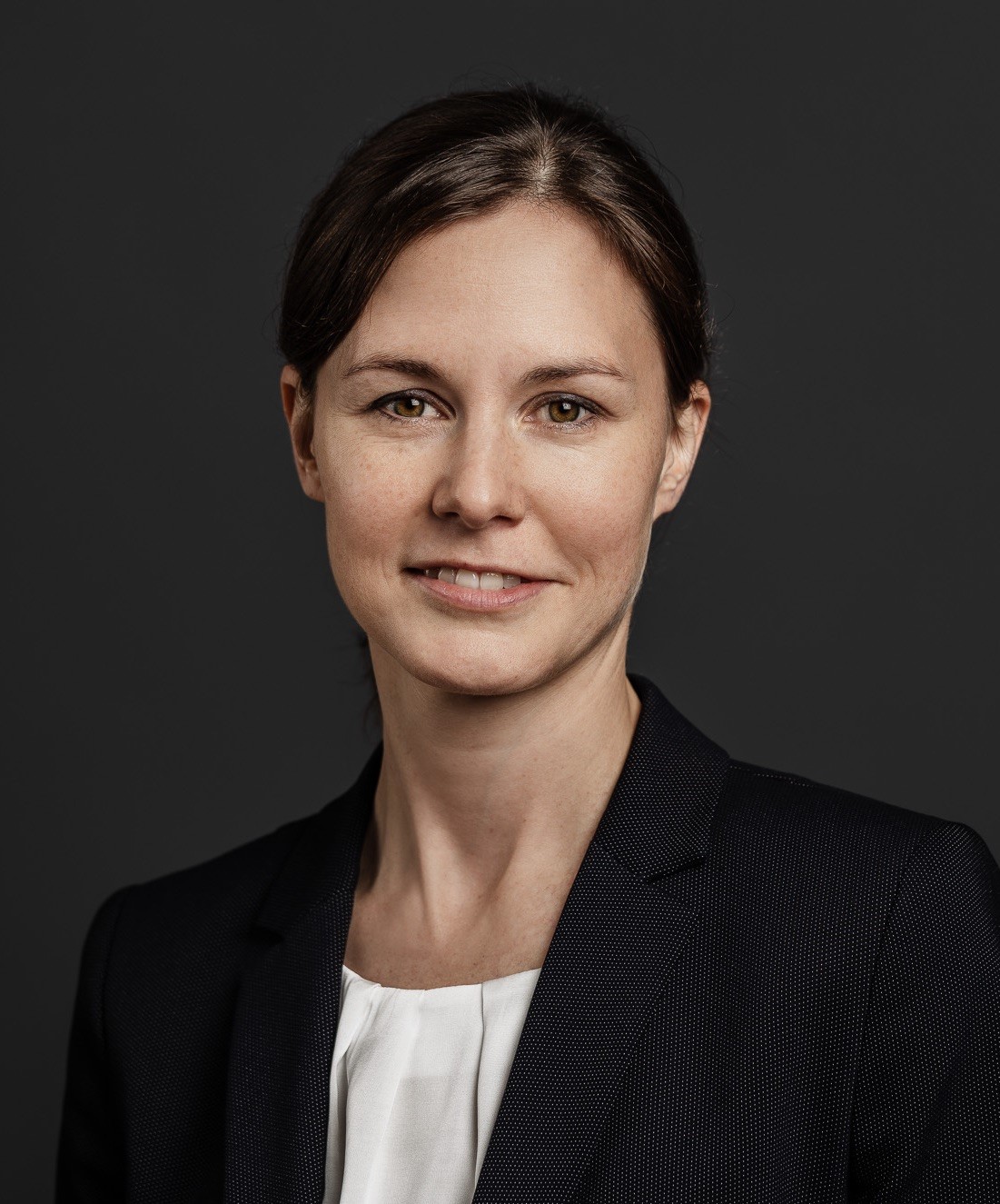
13:45 - 14:30
Graph Neural Networks for Data-driven Optimization
Christopher Morris, RWTH Aachen University
Abstract
In recent years a large set of works leveraged GNNs to replace hand-crafted heuristics in mixed integer solvers with data-driven ones. However, most of these approaches are tailored to a single heuristic, e.g., node or variable selection. Here, we propose MIP-GNN, a general framework for enhancing mixed integer solvers with data-driven insights. By encoding the variable-constraint interactions of a given mixed-integer linear program (MILP) as a bipartite graph, we leverage state-of-the-art graph neural network architectures to predict variable biases, i.e., component-wise averages of (near) optimal solutions, indicating how likely a variable will be set to 0 or 1 in (near) optimal solutions of binary MILPs. In turn, the predicted biases stemming from a single, once-trained model are used to guide the solver, replacing several heuristic components. We integrate MIP-GNN into a state-of-the-art MIP solver, applying it to tasks such as node selection and warm-starting, showing significant improvements compared to the default setting of the solver on two classes of challenging binary MILPs. Moreover, we also give an overview of GNNs’ inherent limitations for enhancing mixed integer solvers.
Biography
Christopher Morris studied computer science at TU Dortmund University, Germany. In 2019, interleaved with a short stint at Stanford University, he finished his Ph.D. studies at the same institution focusing on machine learning for graph and relational data. After that, he spent one year as a postdoctoral fellow at Polytechnique Montréal in the Department of Mathematical and Industrial Engineering, followed by another postdoc stay in the Computer Science Department of McGill University and as a member of Mila – Quebec AI Institute. He joined RWTH Aachen University, Germany, as a tenure-track assistant professor in the Computer Science department in June 2022.
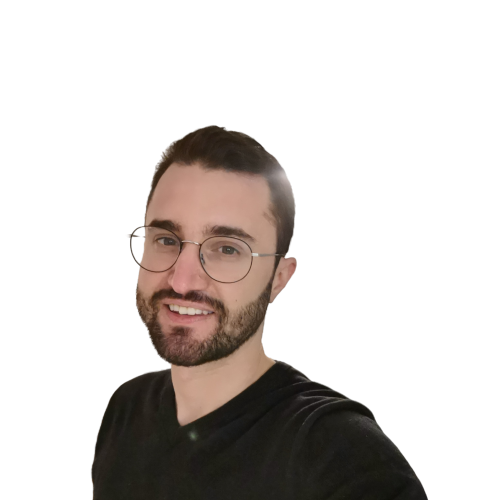
14:30 - 15:15
Learning Beam Search: Utilizing Machine Learning to Guide Beam Search for Solving Combinatorial Optimization Problems
Günther Raidl, TU Wien
Abstract
Beam search (BS) is a well-known incomplete breadth-firstsearch variant frequently used to find heuristic solutions to hard combinatorial optimization problems. Its key ingredient is a guidance heuristic that estimates the expected length (cost) to complete a partial solution. While this function is usually developed manually for a specific problem, we propose a more general Learning Beam Search (LBS) that uses a machine learning model for guidance. Learning is performed by utilizing principles of reinforcement learning: LBS generates training data on its own by performing nested BS calls on many representative randomly created problem instances. The general approach is tested on different specific problems, including the longest common subsequence problem and the constrained variant thereof. Results on established sets of benchmark instances indicate that the BS with models trained via LBS is highly competitive. On many instances new so far best solutions could be obtained, making the approach a new state-of-the-art method for these problems and documenting the high potential of this general framework.
Biography
Günther Raidl is Professor at the Institute of Logic and Computation, TU Wien, Austria, and member of the Algorithms and Complexity Group. He received his PhD in 1994 and completed his habilitation in Practical Computer Science in 2003 at TU Wien. In 2005 he received a professorship position for combinatorial optimization at TU Wien.
His research interests include algorithms and data structures in general and combinatorial optimization in particular, with a specific focus on metaheuristics, mathematical programming, intelligent search methods, and hybrid optimization approaches. His research work typically combines theory and practice for application areas such as scheduling, network design, transport optimization, logistics, and cutting and packing.
Günther Raidl is associate editor for the INFORMS Journal on Computingand the International Journal of Metaheuristics and at the editorial
board of several journals including Algorithms, Metaheuristics and the Evolutionary Computation. He is co-founder and steering committee member of the annual European Conference on Evolutionary Computation in Combinatorial Optimization (EvoCOP). Since 2016 he is also faculty member of the Vienna Graduate School on Computational Optimization.
Günther Raidl has co-authored a text book on hybrid metaheuristics and over 180 reviewed articles in scientific journals, books, and conference proceedings. Moreover, he has co-edited 13 books and co-authored one book on hybrid metaheuristics. More information can be found at http://www.ac.tuwien.ac.at/raidl.
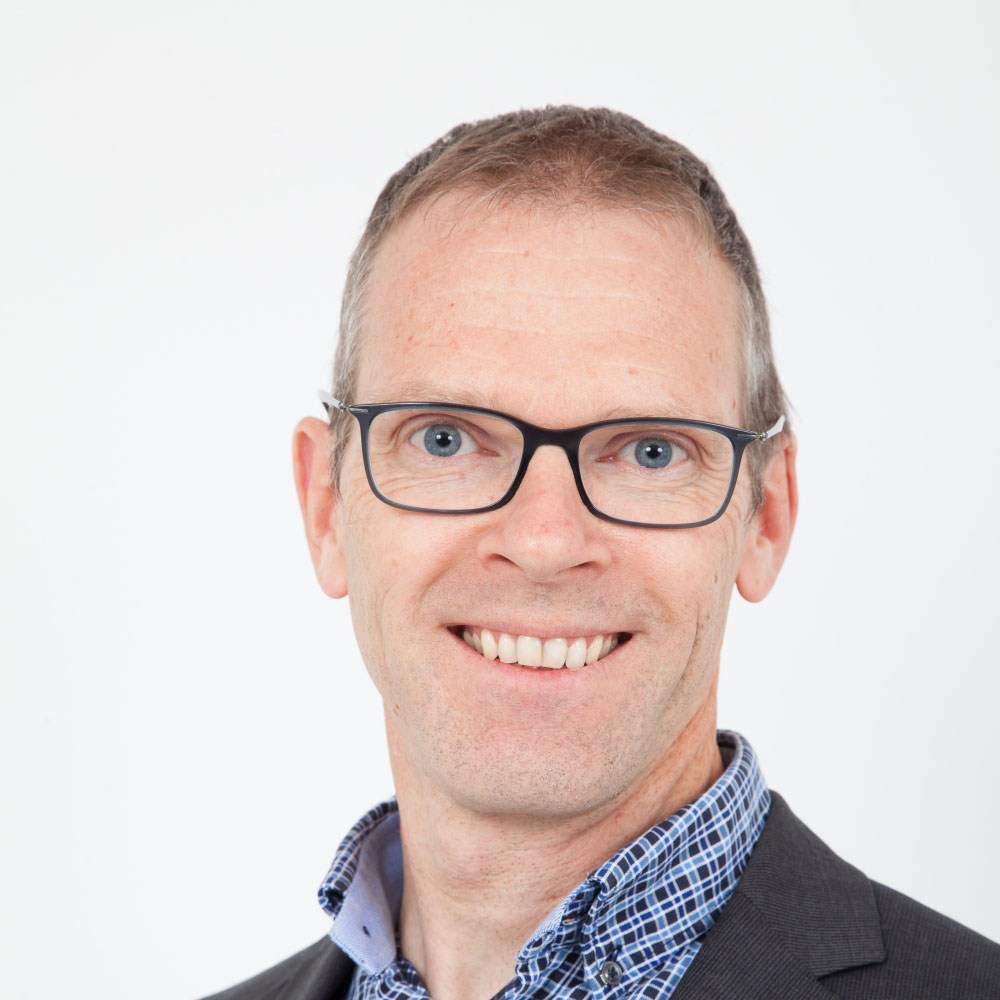
15:15 - 15:45
Coffee
15:45 - 16:30
A fast matheuristic for two-stage stochastic programs through supervised learning
Emma Frejinger, Université de Montréal
Abstract
We propose a methodology at the nexus of operations research and machine learning (ML) leveraging generic approximators available from ML to accelerate the solution of mixed-integer linear two-stage stochastic programs. We aim at solving problems where the second stage is highly demanding. Our core idea is to gain large reductions in online solution time while incurring small reductions in first-stage solution accuracy by substituting the exact second-stage solutions with fast, yet accurate supervised ML predictions. This upfront investment in ML would be justified when similar problems are solved repeatedly over time, for example, in transport planning related to fleet management, routing and container yard management.
Our numerical results focus on the problem class seminally addressed with the integer and continuous L-shaped cuts. Our extensive empirical analysis is grounded in standardized families of problems derived from stochastic server location (SSLP) and stochastic multi knapsack (SMKP) problems available in the literature. The proposed method can solve the hardest instances of SSLP in less than 9% of the time it takes the state-of-the-art exact method, and in the case of SMKP the same figure is 20%. Average optimality gaps are in most cases less than 0.1%.
The talk is based on joint work with Bernard Gendron, Eric Larsen and Andrea Lodi.
Biography
Emma Frejinger, Associate Professor at the Department of Computer Science and Operations Research at Université de Montréal, holds the Canada Research Chair in Demand Forecasting and Optimization of Transport Systems, and the CN Chair in Optimization of Railway Operations. She has been involved in numerous projects with public and private actors solving decision-making problems using methodologies from the fields of statistical learning and operations research. She is a member of CIRRELT, an associate member of Mila and she works part-time as a scientific advisor for IVADO Labs.
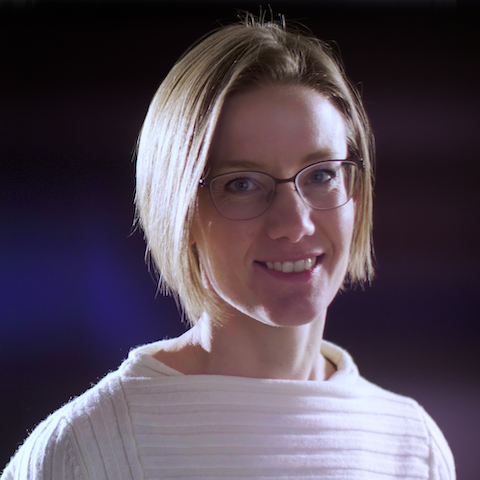
16:30 - 17:15
Seeking Transparency in Machine Learning Through Optimized Explanations
Dolores Romero Morales, Copenhagen Business School
Abstract
There is a pressing need to make Machine Learning tools more transparent. Despite excellent accuracy, state-of-the-art Machine Learning models effectively work as black boxes, which hinders model validation and may hide unfair outcomes for risk groups. Transparency is of particular importance for high-stakes decisions, is required by regulators for models aiding, for instance, credit scoring, and since 2018 the EU has extended this requirement by imposing the so-called right-to-explanation in algorithmic decision-making. From the Mathematical Optimization perspective, this means that we need to strike a balance between two objectives, namely accuracy and transparency. In this presentation, we will navigate through some novel techniques embedded in the construction of Machine Learning models to enhance their transparency. This includes the ability to provide global, local and counterfactual explanations, as well as model cost-sensitivity and fairness requirements.
Biography
Dolores Romero Morales is a Professor in Operations Research at Copenhagen Business School. Her areas of expertise include Data Science, Supply Chain Optimization and Revenue Management. In Data Science she investigates interpretability and visualization matters. In Supply Chain Optimization she works on environmental issues and robustness. In Revenue Management she works on large-scale network models. Her work has appeared in a variety of leading scholarly journals, including European Journal of Operational Research, Management Science, Mathematical Programming and Operations Research, and has received various distinctions. Currently, she is Editor-in-Chief to TOP, the Operations Research journal of the Spanish Society of Statistics and Operations Research, and an Associate Editor of Journal of the Operational Research Society, Omega and the INFORMS Journal on Data Science.
She has worked with and advised various companies on these topics, including IBM, SAS, KLM and Radisson Edwardian Hotels, as a result of which these companies managed to improve some of their practices. SAS named her an Honorary SAS Fellow and member of the SAS Academic Advisory Board. She currently leads the EU H2020-MSCA-RISE NeEDS project, which has a total of 15 participants and a budget of more than €1.000.000 for intersectoral and international mobility, with the aim to improve the state of the art in Data Driven Decision Making.
Dolores joined Copenhagen Business School in 2014. Prior to coming to Copenhagen Business School, she was a Full Professor at University of Oxford (2003-2014) and an Assistant Professor at Maastricht University (2000-2003). She has a BSc and an MSc in Mathematics from Universidad de Sevilla and a PhD in Operations Research from Erasmus University Rotterdam.
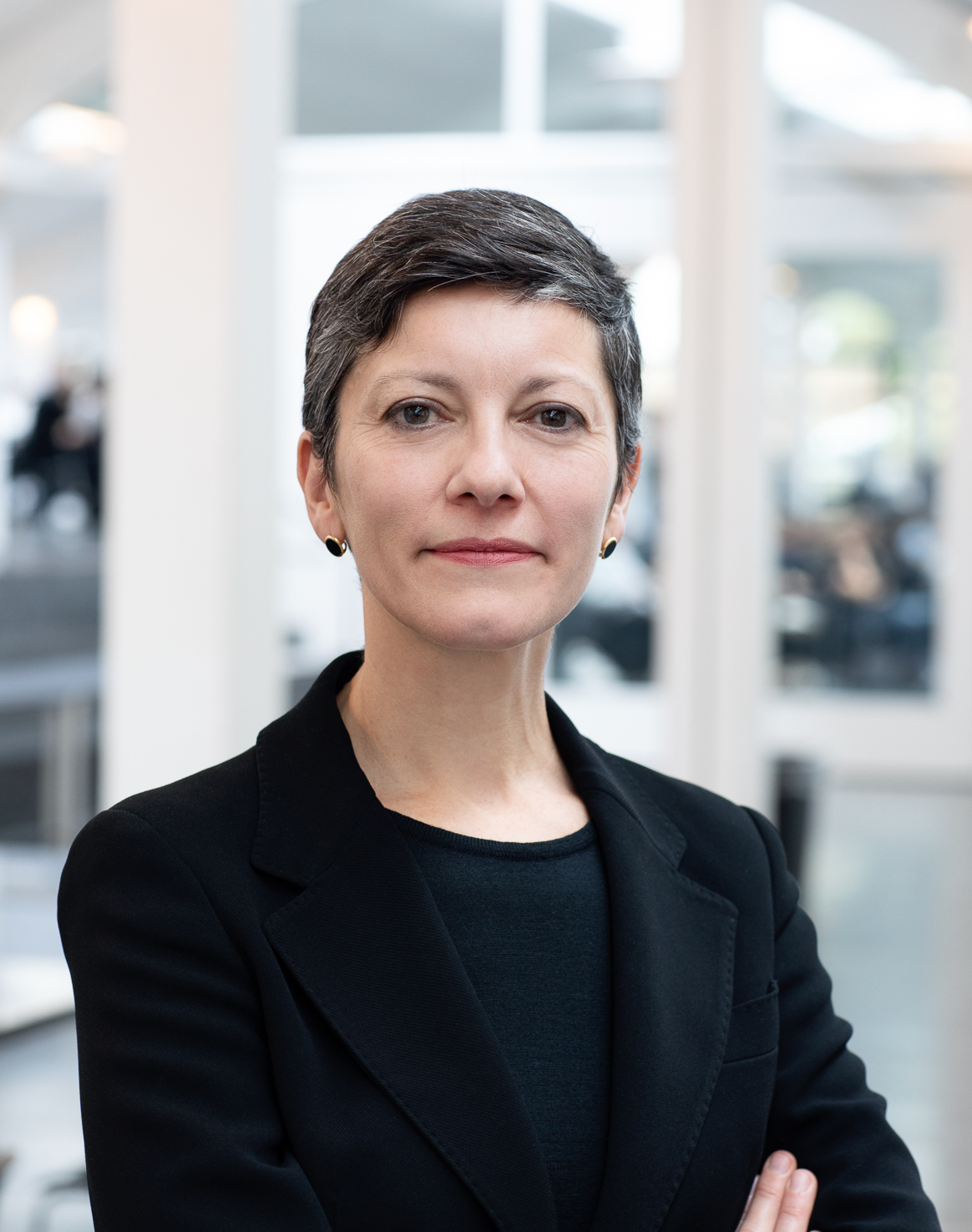
18:15
Bus from Scandic Frimurarehotellet to Flygvapenmuseum
18:30
Flygvapenmuseum, Carl Cederströms gata 2, 586 63 Linköping
Workshop Dinner
Welcome drinks will be served from 18.30.
Dinner will be served at 19.15.
Day 3 – November 2, 2022
09:15 - 10:00
Scalable Adaptive Control
Anders Rantzer, Lund University
Abstract
Classical control theory does not scale well for large systems like traffic networks, power systems and chemical reaction networks. To change this situation, new approaches need to be developed, not only for analysis and synthesis of controllers, but also for data driven modelling. In this lecture we will present some classes of networked control problems for which distributed controllers can be derived and optimised in a scalable manner. Minimax adaptive control using distributed data makes it possible to prove closed loop robustness and performance bounds for the nonlinear learning procedure.
Biography
Anders Rantzer was appointed professor of Automatic Control at Lund University, Sweden, after a PhD at KTH Stockholm in 1991 and a postdoc 1992/93 at IMA, University of Minnesota. The academic year of 2004/05 he was visiting associate faculty member at Caltech and 2015/16 he was Taylor Family Distinguished Visiting Professor at University of Minnesota.
Rantzer is a Fellow of IEEE, member of the Royal Swedish Academy of Engineering Sciences, Royal Physiographic Society in Lund and former chairman of the Swedish Scientific Council for Natural and Engineering Sciences. His research interests are in modeling, analysis and synthesis of control systems, with particular attention to scalability, adaptation and applications in energy networks.
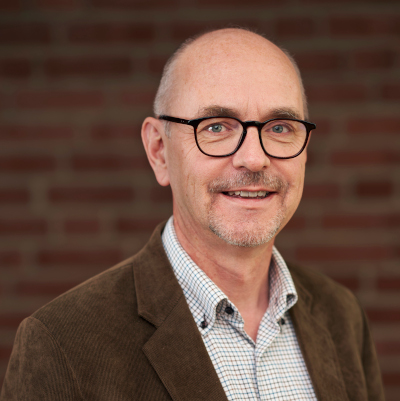
10:00 - 10:30
Coffee
10:30 - 11:15
Deep Neural Networks as Complex Networks
Giuseppe Nicosia, University of Catania
Abstract
Deep Neural Networks are graphs whose ‘links‘ and ‘vertices‘ iteratively process data and solve tasks. We use Complex Network Theory (CNT) to represents Deep Neural Networks (DNNs) as directed weighted graphs: within this framework, we introduce metrics to study DNNs as dynamical systems, with a granularity that spans from weights to layers, including artificial neurons. CNT discriminates networks that differ in the number of parameters and neurons, the type of hidden layers and activations, and the objective task. We further show that our metrics discriminate low vs. high performing networks. CNT is a comprehensive method to reason about DNNs and a complementary approach to explain a model’s behavior that is physically grounded to networks theory and goes beyond the well-studied input-output relation.
Biography
Giuseppe Nicosia is Associate Professor in Bioengineering and Artificial Intelligence at the Department of Biomedical & Biotechnological Sciences – School of Medicine, University of Catania, Italy.
Giuseppe Nicosia received the PhD degree in Computer Science and Synthetic Biology. From 2017 he is Visiting Professor at the University of Cambridge, UK. Giuseppe Nicosia has got the National Scientific Qualification for Full Professor in the area of Bioengineering and Computer Science. He is currently involved in the design and development of deep learning algorithms for systems and synthetic biology, and bioengineering. He is author and co-author of more than 175 papers in international journals and conference proceedings, book chapters and 20 edited books. He has chaired several international conferences, summer schools, advanced courses and workshops in the research areas of artificial intelligence, machine learning, data science, computational biology, synthetic biology, and bioengineering. He has founded and chaired the Advanced Course on Data Science and Machine Learning – ACDL (2018-’22), the Synthetic and Systems Biology Summer School – SSBSS (2014-’19), the Conference on machine Learning, Optimization and Data Science – LOD (2015-’22) and the International Advanced Course on Artificial Intelligence & Neuroscience – ACAIN (2021-’22). He received several research grants as PI in the area of Bioengineering, Synthetic Biology, Systems Biology, Artificial Intelligence, Machine Learning and Data Science. His research has received awards at several premier conferences and journals. Giuseppe Nicosia is regularly serving as Area Chair or Senior Program Committee member for several top Conferences. He has been visiting professor and scholar at the MIT, University of Cambridge, University of Florida, Nicolaus Copernicus University and New York University.
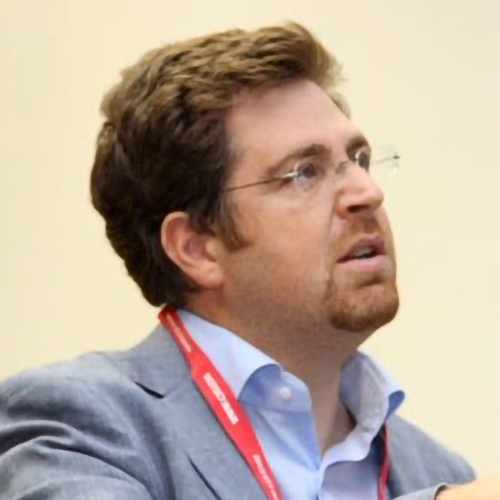
11:15 - 12:00
Sample complexity analysis of input/output model identification: representations, over-parameterization, and self-regularization
Necmiye Ozay, University of Michigan
Abstract
In this talk we will review recent results on learning linear dynamical systems from input/output data. There are many different representations for linear systems like state space models, autoregressive models, impulse response. We show, in all these different settings, the learning accuracy for the ordinary least squares (OLS) estimator scales with one over the square root of the sample size, matching the sample complexity results in the static linear estimation problems. We will also highlight how some of the classical asymptotic system identification results can be recovered as special cases of our analysis framework. As an example, we will illustrate why overparameterization in an autoregressive model with external inputs does not lead to overfitting thanks to OLS having a self-regularization type property, which allows automatic recovery of system orders.
Biography
Necmiye Ozay received her B.S. degree from Bogazici University, Istanbul in 2004, her M.S. degree from the Pennsylvania State University, University Park in 2006 and her Ph.D. degree from Northeastern University, Boston in 2010, all in electrical engineering. She was a postdoctoral scholar at the California Institute of Technology, Pasadena between 2010 and 2013. She joined the University of Michigan, Ann Arbor in 2013, where she is currently an associate professor of Electrical Engineering and Computer Science. She is also a member of the Michigan Robotics Institute. Dr. Ozay’s research interests include hybrid dynamical systems, control, optimization and formal methods with applications in cyber-physical systems, system identification, verification and validation, autonomy and dynamic data analysis. Her papers received several awards. She received the 1938E Award and a Henry Russel Award from the University of Michigan for her contributions to teaching and research, and five young investigator awards, including NSF CAREER. She is also a recipient of the 2021 Antonio Ruberti Young Researcher Prize from the IEEE Control Systems Society for her fundamental contributions to the control and identification of hybrid and cyber-physical systems.
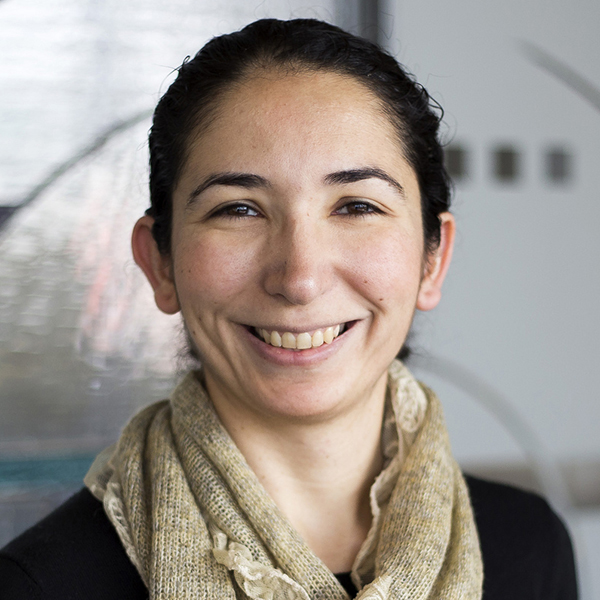
12:00 - 13:00
Lunch
13:00 - 13:45
Some elementary observations on optimal adaptive control
Håkan Hjalmarsson, KTH
Abstract
The seminal work of Lai and Wei in the mid 1980s can be seen as the first significant contribution to the problem of devising optimal adaptive control algorithms, i.e.algorithms that have performance as close as possible to an optimal controller designed using full knowledge of the system dynamics. The problem is technically challenging but thanks to intense efforts impressive progress has been made over the last decade, in particular for the LQR problem. One outcome has been the design of probing signals that balances the information gained through the resulting exploration of the system versus the regret caused by these signals upsetting the control.
In this tutorial talk we highlight some fundamental properties of the problem, in particular the role played by the Fisher information matrix and the principal structures optimal exploration strategies can have.
We discuss the difference between finite horizon and infinite horizon strategies, showing that optimal finite horizon strategies can be expected to perform a factor of square root of 2 better than existing algorithms.
We also elucidate on how the problem relates to closed loop system identification, showing that for a given model structure the information caused by the feedback of noise determines the minimal rate of the regret. We also point to the possibility of using adaptive experiment design to design optimal probing signals. Finally, we use our insights to design an adaptive control algorithm that uses feedback from the Fisher information matrix to automatically adjust the amount of exploration that needs to be done. We illustrate this approach, called Fisher Feedback Exploration (F2E), on some examples.
Biography
Håkan Hjalmarsson was born in 1962. He received the M.S. degree in Electrical Engineering in 1988, and the Licentiate degree and the Ph.D. degree in Automatic Control in 1990 and 1993, respectively, all from Linköping University, Sweden. He has held visiting research positions at California Institute of Technology, Louvain University and at the University of Newcastle, Australia. He has served as an Associate Editor for Automatica (1996-2001), and IEEE Transactions on Automatic Control (2005-2007) and been Guest Editor for European Journal of Control and Control Engineering Practice. He is Professor at the School of Electrical Engineering, KTH, Stockholm, Sweden. He is an IEEE Fellow and past Chair of the IFAC Coordinating Committee CC1 Systems and Signals. In 2001 he received the KTH award for outstanding contribution to undergraduate education. His research interests include system identification, learning of dynamical systems for control and estimation in communication networks
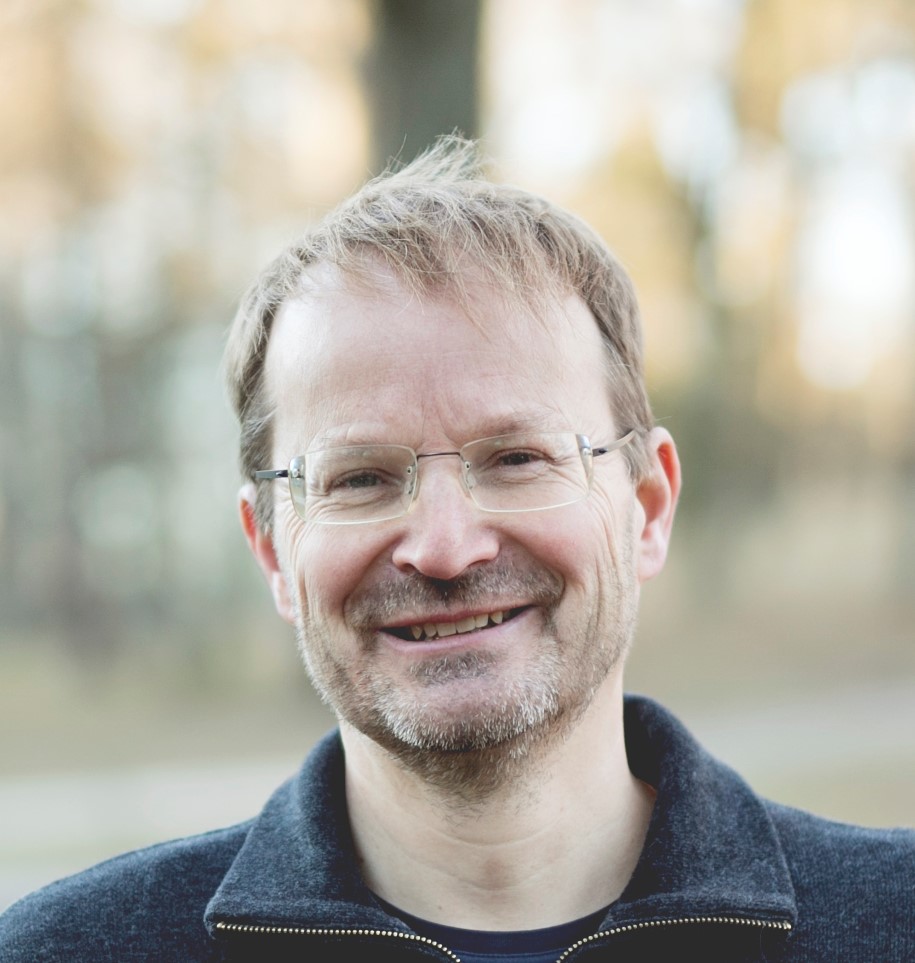
13:45 - 14:30
Hybrid AI for Trustworthy AI
Fredrik Heintz, Linköping University
Abstract
Europe has taken a clear stand that we want AI, but we do not want any AI. We want AI that we can trust. This talk will present some past and current research related to achieving the ambitious European vision of Human-Centered Trustworthy AI. Special emphasis will be placed on the need to integrate reasoning and learning to combine the power of data-driven methods with the formal guarantees and general solutions provided by reasoning-based approaches. The successful realization of Trustworthy AI will be paramount for addressing the major challenges we as a global society is facing. The talk is partly based on the ongoing work in the H2020 ICT-48 network TAILOR which has the goal of developing the scientific foundations for Trustworthy AI through integrating learning, optimisation and reasoning.
Biography
Professor of Computer Science at Linköping University, where he leads the Reasoning and Learning lab. His research focus is artificial intelligence especially Trustworthy AI and the intersection between machine reasoning and machine learning. Director of the Wallenberg AI and Transformative Technologies Education Development Program (WASP-ED), Director of the Graduate School of the Wallenberg AI, Autonomous Systems and Software Program (WASP), Coordinator of the TAILOR ICT-48 network developing the scientific foundations of Trustworthy AI, and President of the Swedish AI Society. Fellow of the Royal Swedish Academy of Engineering Sciences (IVA).


